Insists nation's fortunes will change for good in next 12 months
Deji Elumoye in Abuja
Vice President Kashim Shettima has promised Nigerians, especially those living in Russia, that the country under President
Bola Tinubu's administration will work again.
He gave the pledge late Friday evening in St Petersburg at a forum with members of the Nigerian community in Russia.
Shettima, who was addressing concerns raised by members of the community, said: “Be rest assured that in the next nine to 12 months there will be a swift change in the fortunes of
Nigeria.
“I'm talking with all sense of certainty and responsibility because I believe in the capacity and commitment of President Bola Ahmed Tinubu.”
Speaking on the efforts of the administration to reposition the economy, the vice president said: “We are here for the Africa-Russia Summit, but we are also here fundamentally to pursue the
completion of the Ajaokuta Steel and revival of the Aluminium Smelter Company of Nigeria (ALSCON).
Continued on page 5
Atiku, Governors, Others Meet ahead of PDP’s Stakeholders’ Meeting Tomorrow…
Page 6
Resident Doctors Reject 25% Salary Increase by FG, Continue Strike…
Court Won’t Overturn President’s Victory, Economist Intelligence Unit Predicts
Says Obi will emerge formidable force in 2027
Ejiofor Alike
The Economic Intelligence Unit (EIU) has predicted that the victory of President Bola Tinubu
in the February 25 presidential election will not be overturned by the court. EIU, which had projected that Tinubu would win the presidential
poll, also predicted in its latest report that the presidential candidate of the Labour Party (LP), Mr. Peter Obi would emerge a formidable force in 2027.
The Independent National Electoral Commission (INEC) had declared Tinubu, the presidential candidate of the ruling All Progressives Congress
(APC), as the winner of the last presidential election. Tinubu defeated 17 other candidates who took part in the election. He scored a total

Page 6 of 8,794,726 votes to emerge victorious.
INEC Chairman, Prof.
Continued on page 5
Tinubu Meets ECOWAS Leaders Today, Moves to Restore Democracy in Niger
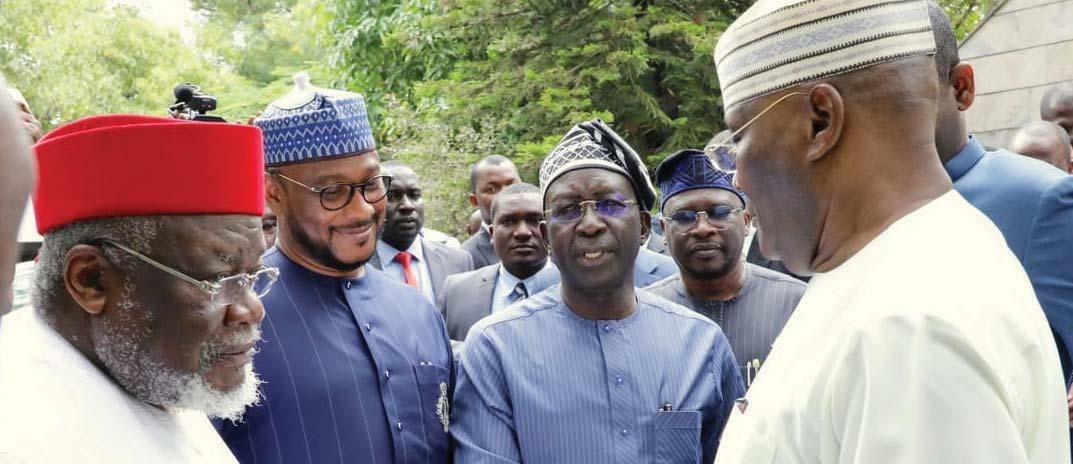
Nigerian leader weighs options UN, EU, AU tighten the noose on military leaders Russia's Wagner group signals support for coup plotters
Ejiofor Alike in Lagos and Michael Olugbode in Abuja
Chairman of the Authority of Heads of State and Government of the Economic Community of West African States (ECOWAS), President Bola Tinubu, will today in Abuja meet with the leaders of the sub-regional body on how to restore democracy in Republic of Niger just as the United Nations (UN) Security Council members have called for the immediate and unconditional release of Niger’s democratically elected President Mohammed Bazoum.
The European Union (EU) has also said it is suspending financial support and cooperation on security with Niger following this week’s military coup.
On its part, the African Union (AU) has called on the coup plotters to return to their barracks.
But while the international community, including many African states, have condemned the coup in Niger, Russian mercenary leader, Yevgeny
Continued on page 5
STRATEGISING FOR THE FUTURE…
L-R: Chieftain of the Peoples Democratic Party, Chief Tom Ikimi; Governor of Zamfara State, Mr. Dauda Lawal; former National Chairman of PDP, Dr. Iyorchia Ayu; Adamawa State Governor, Ahmadu Fintiri; and former Vice President and presidential candidate of the party in the 2023 general election, Atiku Abubakar, after a closed-door meeting of the leaders of PDP in Abuja…yesterday



GOODNIGHT TO A GREAT MAN…
TINUBU MEETS ECOWAS TODAY, MOVES TO RESTORE DEMOCRACY IN NIGER
Prigozhin, has hailed the military takeover, promising that his Wagner group could help.
In a long message posted to social media, Prigozhin blamed the situation in Niger on the legacy of colonialism and alleged that Western nations were sponsoring terrorist groups in the country.
Niger was once a French colony and, before this week’s putsch, it had been one of the few democracies in the region.
The country, one of the poorest in the world but which also holds some of its biggest uranium deposits, declared
full independence from former colonial ruler, France in 1960.
Prigozhin said that his private military company, Wagner, was capable of dealing with situations like that playing out in Niamey, the Nigerien capital.
Hundreds of Wagner contractors are in neighbouring Mali at the invitation of the country’s military junta, to confront an Islamist insurgency that is strongest in the area where the borders of Mali, Burkina Faso and Niger meet.
“What happened in Niger has been brewing for years,” Prigozhin said.
“The former colonisers are trying to keep the people of African countries in check. In order to keep them in check, the former colonisers are filling these countries with terrorists and various bandit formations. Thus, creating a colossal security crisis.”
For fear of a possible spillover of violence from neighbouring Mali, where armed groups have been gaining ground following the withdrawal of French and other European forces, about 2,000 UN/ EU troops on military mission are currently stationed in Niger. Meanwhile, President Tinubu is also said to be weighing a
number options to force the coup plotters to return power to President Bazoum.
Some of the options, it was learnt, include direct military interventions and severe sanctions, including border closure and economic blockade.
The Nigerian leader is said to be considering mobilising ECOWAS leaders to close their borders with Niger to deny the new military leaders access to weapons, food and other basic amenities, particularly neighbouring countries such as Republic of Benin, Togo and Ghana.
COURT WON’T OVERTURN PRESIDENT’S VICTORY, ECONOMIST INTELLIGENCE UNIT PREDICTS
Mahmood Yakubu, who announced the final results, said the presidential candidate of the Peoples Democratic Party (PDP), Atiku Abubakar came second with a total of 6,984,520 votes in the election.
Obi came third in the election with a total of 6,101,533 votes while Rabiu Kwankwaso of the New Nigeria’s People Party (NNPP) came fourth with 1,496,687 votes.
Both Atiku and Obi are challenging Tinubu’s victory at the Presidential Election Petitions Court.
EIU had predicted before the 2023 general election that Tinubu would win the presidential poll.
In its latest report released at the weekend, EIU noted that the presidential candidate of the LP, Obi would emerge a formidable force in 2027, pointing out that the court would not overturn Tinubu’s victory in the February
25 presidential poll.
“Bola Tinubu, the candidate of the ruling party, the All Progressives Congress, won the February presidential election with only 36.6 per cent of the vote.
The result is being contested in court, but EIU does not expect it to be overturned. Mr. Tinubu prioritised winning the Muslim north, and calls for secession from the Christian-majority south will grow louder,” EIU said in its latest report.
The report noted that Tinubu came to power in May after an election in February in which he won 37 per cent of the vote on a turnout of 27 per cent.
According to EIU, Tinubu took over from Muhammadu Buhari, his predecessor from the same party, the APC.
The report added that Tinubu has shrugged off low popularity to begin a campaign of market reform on a scale and intensity
that is virtually unparalleled in Nigerian history.
“He has deregulated the foreign-exchange market and petrol pricing -reforms that will deliver a stronger economy in the medium to long run but that mean short-term pain for consumers. The capacity to shield households from rising prices is limited owing to a tiny fiscal footprint. In a country already grappling with multiple security crises that are fuelled by high unemployment (a third of the workforce in 2020, the most recent official data) and widespread poverty, the potential for mass unrest is a major risk to both the smooth implementation of reforms and the ability of the government to survive its first term. Inflation when Mr. Tinubu came to power in May was 22.6 per cent and will rise sharply over 2023 and into 2024. As the president's low level of political capital erodes,
EIU expects his reform agenda to lose momentum,” the report explained.
“The APC won a majority in the upper house and the largest number of seats in the lower house. Nigerian politics is fluid, with party allegiances often more about political convenience than ideology. Frustration with the two-party system was made evident by support for Peter Obi of the fringe Labour Party in the presidential election. Backed by unions, he will undoubtedly build the party's profile and become a more formidable force ahead of the next election, in 2027,” EIU added.
Founded in 1946, EIU forecasts economic trends, political forces and industry developments in countries of the world.
They combine data, analysis and forecasting to guide informed decisions by businesses and policymakers.
NIGERIA WILL WORK AGAIN UNDER TINUBU, SAYS SHETTIMA
“It’s going to be a game changer. Having a vibrant steel industry is a sine qua non for the industrial take-off of any nation. I can bet you; I can promise you that the President will bring Ajaokuta to a reality.
“Be rest assured that if there is one legacy that President Tinubu would bequeath to fellow Nigerians, Ajaokuta is one. I'll come back to Russia, we are going to drive this process, and my leader, my boss, and principal, President Bola Ahmed Tinubu, is irrevocably committed to Ajaokuta and to ALSCON.
“We have begun the discussion, and we will see to it that these two companies take off, we have no option than to bring them to reality,” Shettima emphasised.
Commenting on the prospects for Nigeria’s transformation, the
vice president said the Tinubu administration would harness the vast human and material resources to put the country on the path of sustainable development and growth.
According to him, “This is the land of opportunities, we have the landmass and vibrant youth population. By 2035, there will be a 65 million talent deficit in the world, America, Russia, and Brazil will all suffer six million talent deficits. And Nigeria with a vibrant young population will be expected to fill the gap.
“So, opportunities abound in the digital space. Our target is to train 1,000,000 Nigerians on digital skills.”
Shetima expressed confidence in the capacity of President Tinubu to transform Nigeria, noting that “the President
passionately believes in the Nigeria project,” and that his emergence as leader of the nation “did not happen by chance.”
Citing examples of President Tinubu’s sterling performance as Lagos State Governor, the Vice President said the President has shown “the propensity to inspire development across all sectors, and he has also shown the zeal, passion as well as the commitment to transform Nigeria.”
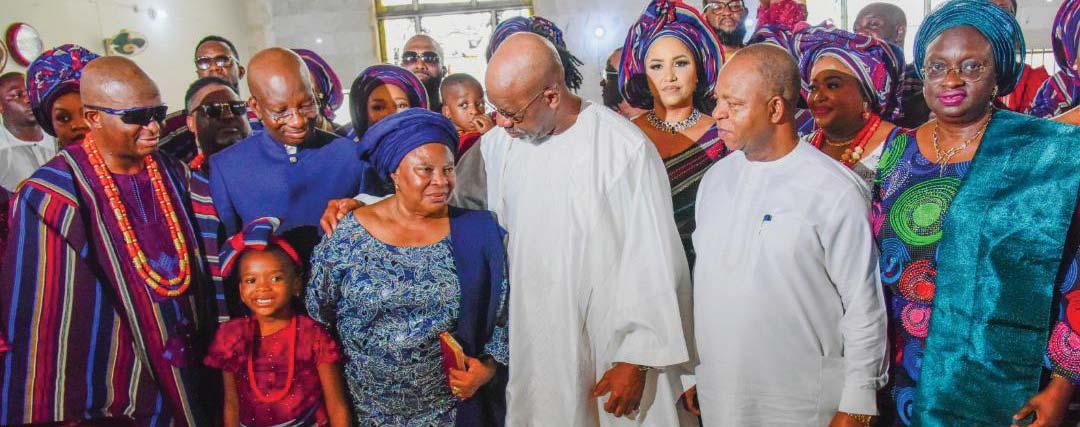
He then commended the conduct of leaders and members of the Nigerian community in Russia, stating that “the maturity exhibited by Nigerians living in Russia is an understatement, and I must confess that I am impressed by the Ambassador’s impressive achievements."
In separate remarks,
To the North, the country has borders with Libya which has been torn apart by war.
In its reaction to the military coup in Niger, the UN Security Council members, in a statement, underscored the need to protect President Bazoum, his family and members of his government.
The demand to release the President of Niger was earlier voiced by the UN SecretaryGeneral, Antonio Guterres and other UN top officials.
The Security Council members expressed concern over the negative impact of unconstitutional changes of government in the region, increase in terrorist activities and the dire socio-economic situation.
The UN Security council members also underlined their regret over the developments in Niger, which undermine efforts at consolidating the institutions of governance and peace in that country.
The Council expressed support for the efforts of the Economic Community of West African states (ECOWAS), the African Union and the United Nations. Reiterating support for efforts to reverse unconstitutional government changes, the Council backed ECOWAS and the African Union in strengthening governance and normative frameworks.
In solidarity with the people of Niger, the Council emphasised the importance of protecting civilians and providing humanitarian assistance during this challenging time.
EU also called on the coup plotters to vacate office and return government to democratically-elected representatives, insisting that the government they formed would never be recognised.
be unconditional and without delay. The EU holds the putschists responsible for his safety and that of his family.”
According to its website, the EU has allocated 503 million euros ($554million) from its budget to improve governance, education and sustainable growth in Niger over the 2021-2024 period.
“In addition to the immediate cessation of budget support, all cooperation actions in the domain of security are suspended indefinitely with immediate effect,” EU foreign policy chief Borrell said in the statement.
The EU High Representative said: “The announcement by the putschists of the suspension of the constitution and the dissolution of democratic institutions weakens the state and the people of Niger, whose peace, stability, and security must be preserved.
“The European Union reiterates its very clear calls for the complete restoration, without delay, of constitutional order and fully associates itself with the declarations of ECOWAS and its African and international partners in this regard.”
He disclosed: “In coordination with the President of the European Council, I will continue this weekend the numerous contacts already underway to achieve this result. And we stand ready to support future ECOWAS decisions, including the adoption of sanctions.”
representatives of the Nigerian community commended the initiatives of the Tinubu administration to actively engage with the Russian government to improve relations between Nigeria and Russia.
In a related development, the vice president yesterday in St. Petersburg attended the second edition of the Annual Arts Exhibition of the Nigerian Embassy entitled ‘I Imagine Nigeria,’ which showcased artworks by young Russian artists.
Besides seeing artworks exhibited at the event and presenting gift prizes to young Russian artists, Shettima in a brief remark, emphasised the importance of cultural diplomacy, noting its potential in deepening ties between Nigeria and Russia.
The EU also announced its readiness to join the Economic Community of West African States (ECOWAS) to impose severe sanctions on Niger should the coup plotters not hand back power to duly elected officials.
The EU, in a statement issued yesterday by its High Representative, Josep Borrell said: “The EU does not recognise and will not recognise the authorities resulting from the putsch in Niger. President Bazoum was democratically elected; he is and therefore remains the only legitimate President of Niger.”
Borrell asked the coup plotters to release President Bazoum and members of his family unconditionally and without delay.
“His (Bazoum) release must
He said: “This unacceptable attack on the integrity of Niger's republican institutions will not remain without consequences for the partnership and cooperation which binds the European Union and Niger, in all different aspects. In this regard, in addition to the immediate cessation of budget support, all cooperation actions in the security field are suspended sine die, with immediate effect.”
Meanwhile, the African Union also demanded the military in Niger “return to their barracks and restore constitutional authority” within 15 days since it grabbed power.
The AU’s Peace and Security Council “demands the military personnel to immediately and unconditionally return to their barracks and restore constitutional authority, within a maximum period of fifteen (15) days”, it said in a communique following a meeting at the weekend on the Niger coup.
The group said it “condemns in the strongest terms possible” the overthrow of the elected government, and expressed deep concern over the “alarming resurgence” of military coups in Africa.
FAREWELL TO FRANCA AFEGBUA…
Atiku, Governors, Others Meet ahead of PDP’s Stakeholders’ Meeting Tomorrow
Chuks Okocha in Abuja
Ahead of Monday’s meeting of the leaders of the Peoples Democratic Party (PDP), the presidential candidate of the party in the last presidential election, Atiku Abubakar, some governors elected on the party’s platform, some National Assembly members held a closed-door meeting yesterday at Chief Tom Ikimi’s Maitama, Abuja residence, to discuss the future of the party.
Present at the meeting were the former Governor of Delta State and vice presidential candidate of the party in the 2023 general election, Dr. Ifeanyi Okowa, and the incumbent governor of the state,
Sheriff Oborevwori.
Others present include Governor Ahmadu Fintiri of Adamawa State; Bauchi State Governor, Senator Bala Mohammed; Governor Godwin Obaseki of Edo State; Governors Ademola Adeleke; Caleb Muftwang of Plateau State; and Dauda Lawal of Zamfara State.
THISDAY gathered that the meeting was to take a strategic position on the future of the party ahead of the Monday meeting of PDP stakeholders.
The Acting National Chairman of the party, Ambassador Iliya Damagun, summoned a special meeting of the PDP stakeholders on Monday to discuss the party’s unity and reconciliation.
DSS Grills APC Kogi Guber Candidate, Ododo, after Arson at SDP Rival’s Office
Ibrahim Oyewale in Lokoja
The Department of State Services (DSS) has grilled the governorship candidate of the ruling All Progressives Congress (APC) in the November 11 governorship election in Kogi State, Alhaji Ahmed Ododo.
Ododo was invited for questioning over a petition filed against him by an opposition party.
It is unclear what the petition was about but the development comes a week after the campaign office of Muritala Ajaka, Ododo’s Social Democratic Party (SDP) rival, was razed.
SDP had alleged that the ruling party was behind the incident, but APC denied the allegation.
The APC standard bearer spent several hours responding to questions from the agency yesterday.
A source stated that the DSS invited Ododo based on a petition against him by some members of the opposition in order to de-escalate tension and enthrone understanding among political gladiators ahead of the election.
The APC candidate confirmed the encounter with the operatives, but said it was a normal routine.
Explaining, Ododo said he had fruitful discussions with the DSS over the issue, which he failed to disclose, stressing that as a good citizen, he and his
party members would always maintain peace in the state.
“The coming election will be free and fair. There is no tension in the state ahead of the election; I urge our party members to continue to maintain peace before, during, and after the election,” he said.
Also, the state Commissioner for Information and Communications, Kingsley Fanwo, confirmed Ododo’s encounter with the DSS, saying that as a law-abiding citizen who is aspiring to lead the state, he honoured the invitation.
“The allegations contained in the petition are frivolous and unfounded. But it was incumbent on the APC governorship candidate to respect a constituted authority such as the DSS.
“Alhaji Ododo was questioned by a team of operatives at the DSS for hours, and he gave convincing explanations to the interrogators. We commend the professionalism of the DSS and pledge our cooperation to whatever measures taken or that would be taken to ensure a peaceful Kogi and a peaceful poll in November 2023,” he said.
He added that the APC governorship candidate had since left the DSS office, adding that the party’s commitment “to peace and tranquility is iron cast.
“Every Kogite and every supporter of Alhaji Ahmed Usman Ododo should endeavour to be peaceful in all their activities towards the election.”
Atiku confirmed yesterday’s meeting on his verified Twitter handle.
"Earlier today, I joined other leaders and stakeholders of our great party, the PDP, at a meeting in Abuja. The meeting was ripe with productive discourse and collaborative energy," tweeted yesterday.
A source privy to the meeting told THISDAY that the party’s
stakeholders’ meeting will discuss various reconciliation strategies by the party.
''We will not shy away if issues of the former governor of River State, Nyesom Wike, and his romance with the APC come up as well as what implications that could befall him should he appear before the screening committee that will screen the ministerial nominees as from Monday. If it comes up, a
position will be taken," the source explained.
Another source, who told THISDAY that "Wike is not basically the agenda of the meeting," however, added that the former governor cannot be a member of PDP and as well a member of APC.
"If he appears before the ministerial screening committee, it is a fait accompli that Wike is no longer a member of PDP as he
cannot eat his cake and still have it," the source added.
The source said the meeting would focus on how to ensure reconciliation and how to move the party forward due to the perception that February 25 could be cancelled. Also in attendance at yesterday’s meeting was the former National Secretary of the party, Olagunsoye Oyinlola, and former governor of Jigawa State, Sule Lamido.
Resident Doctors Reject 25% Salary Increase by FG, Continue Strike
Onyebuchi Ezigbo in Abuja
The National Executive Council (NEC), of the National Association of Resident Doctors (NARD) yesterday, rejected the 25 per cent increment in the basic salary of doctors as well as the accoutrement allowance.
They insisted on their earlier demand for the full restoration of the Consolidated Medical Salary Structure to its right value as at the time of the approval of the structure in 2009.
The doctors also maintained that there was no going back on the ongoing nationwide total and indefinite strike until reasonable progress is made by the government to address their demands as contained in their ultimatum issued to the federal government on July 5.
Declaring this position in a communique jointly signed by the President, Dr. Orji Emeka Innocent; Secretary-General, Dr. Chikezie Kelechi, and Publicity and Social Secretary, Dr. Uma Musa, the striking doctors described the 25 per cent as ‘paltry’ and said the
strike would continue.
The communique issued at the end of its NEC meeting in Lagos, tagged: “LasGIDI 2023,” with the theme: “Bullying in Medical Practice: a matter of Perspective?” demanded the immediate release of the circular on the One-forOne policy for the replacement of exited clinical workers for implementation, adding that they cannot continue to watch their members lose their lives and break down under the weight of work overload occasioned by massive depletion of clinical staff in the hospitals on account of brain drain.
They observed that the 2023 Medical Residency Training Fund (MRTF) has not been paid even after several promises made by the government.
The communique further states: “After critical consideration, NEC resolved as: to demand the payment of all salaries and arrears including the salary arrears of 2014-2016, arrears of hazard allowance, arrears of consequential adjustment of the
minimum wage, and promotion arrears to our deserving members without further delay;
“To call on the MDCN to reverse herself on the downgrading of the membership certificate as this is an ill wind that blows no one good, adding that continuing on this path would only reduce the value placed on the postgraduate medical training in Nigeria;
“To call on the governors of Abia, Kaduna, and Enugu states as well as other states where our members’ welfare is neglected, to as a matter of urgency look into these challenges to resolve them amicably;
“For the avoidance of doubt, these governors are expected to among others, clear all salary backlogs, pay promotion arrears, adopt/review the CONMESS salary structure, review the hazard allowance, and domesticate the medical residency training act as well as pay the MRTF using the new circular issued by NSIWC in January 2023 (as was done by their counterparts in Delta, Benue
Ogun and Osun states);
“To vehemently reject the casualisation of doctors under any guise in all tertiary health institutions in Nigeria, warning that this could be a subject of industrial action shortly if not nipped in the bud now;
“To call for the immediate unconditional release of our trainer, Prof. Ekanem Philip-Ephraim of UCTH Calabar, and to call on the government to beef up security in the country to forestall such occurrences;
“To persuade the federal government to consider ways of placating Nigerians who have to grapple daily with the burden of living in the post-subsidy era, while calling on the government to ensure that savings from the subsidy removal would be prudently utilised for the common good.”
They further appealed to the federal and state governments to urgently resolve these demands to forestall the further escalation of the ongoing industrial disharmony in the health sector nationwide.
Diya Lived Patriotic, Eventful Life, Says Tinubu
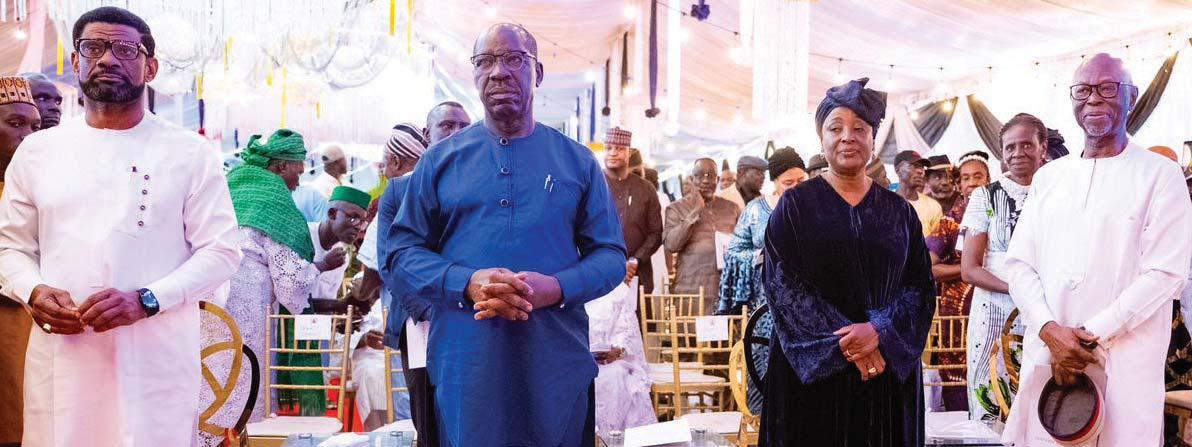
James Sowole in Abeokuta
President Bola Tinubu yesterday said the former Chief of General Staff, the late General Donaldson Oladipo Diya (rtd) lived an eventful, remarkable, and impactful life that will continue to give Nigerians satisfactory succour.
Tinubu stated this in a speech at the funeral service of the late Chief of General Staff, held at the Cathedral Church of St. Paul, Diocese of Ijebu South West, Odogbolu, headquarters of Odogbolu Local Government Area
of Ogun State.
The President in the speech, read by the Ogun State Governor, Prince Dapo Abiodun, said it was painful that Diya was lost to the cold hands of death.
The funeral service was attended by people from all walks of life from within and outside Ogun State, including the Acting Inspector General of Police, Kayode Egbetokun; the representative of the Secretary to the Government of the Federation, Morris Mbeari; Senator Ibikunle Amosun and
Senator Shuaibu Salisu.
Tinubu said: "While we deeply mourn the passing of this great Nigerian, we must not fail to consciously celebrate General Diya's life of bravery, discipline, courage, integrity, and patriotism.
"General Diya quickly rose through the ranks of the Nigerian military, thanks to his exceptional leadership skill and dedication to maintaining peace and security in Nigeria over the years.
"He held several command positions, he was once a General
Officer Commanding (GOC), 82 Division, Nigerian Army; Commandant, National War College; he was a one-time military Administrator of Ogun State; he was Chief of Defence Staff under General Ibrahim Babangida and rose to become the Chief of General Staff, effectively the Vice President under the military government of General Sani Abacha.
"He was articulate and was widely recognised for his strategic thinking and ability to make swift and effective decisions.

WITH NIGERIANS IN DIASPORA…
Bianca Wins Legal Battle over Ojukwu’s Estate
Wale Igbintade
A Lagos High Court sitting in Ikeja has resolved the long-drawn legal battle over the management and control of some of the assets of the late Ikemba of Nnewi, Chief Chukwuemeka Odumegwu
Ojukwu in Ojukwu Transport Limited (OTL) in favour of his widow, Ambassador Bianca Ojukwu and her two children.
The late Ojukwu was a director of OTL, a family company before he died in 2011.
The suit: LD/1539/2012, filed by Mrs. Bianca Ojukwu on behalf of her two sons, Afamefuna and Nwachukwu, who were infants
at the time, against OTL and seven others (brothers of the late Ojukwu, their sons and property agent) before the court, was over their alleged move to take possession of their residence at No. 29 Oyinkan Abayomi Drive, Ikoyi, Lagos, as well as some of the company’s properties in Lagos, which were under the management and control of their late father, Dim Ojukwu.
The defendants in the suit filed in 2012 are OTL, Prof. Joseph Ojukwu, Mr. Emmanuel Ojukwu, Lotanna Putalora Ojukwu, Dr. Patrick Ike Ojukwu, Mr. Edward Ojukwu, Lota Akajiora Ojukwu and Messrs Massey Udegbe (doing
Knocks as El-Rufai, Wike’s ‘I-willnot-be-a-minister’ Videos Resurface
Chuks Okocha in Abuja
The old videos of a former Governor of Rivers State, Nyesom Wike, and his counterpart in Kaduna State, Nasir El-Rufai showing each of the ex-governors boasting that they would not be ministers resurfaced at the weekend and provoked the ire of social media users.
In the video Wike, who lost the presidential ticket of the Peoples Democratic Party (PDP) to former Vice President Atiku Abubakar and supported President Bola Tinubu of the All Progressives Congress (APC) to win the poll, boasted he was not interested in becoming a minister.
“Only one person can be a minister from a state; I will not be a minister. I will not. I am not a liability; Rivers State is an asset.
So, if you don’t want to win an election, it’s your business. I’m not the one running the election. He who wears the shoes knows where it pinches him,” Wike had said in the video.
Despite the claim, Wike’s name appeared on the ministerial list sent to the National Assembly last Thursday by Tinubu for screening.
This led social media users to recycle the old video and criticise the former Rivers State governor for lobbying for a position that he boasted that they would not occupy.
On his part, El-Rufai whose name also appeared in the ministerial list, also said in an old video that it would not be fair for him to return as minister at his current age.
The former Kaduna State governor was the minister of the Federal Capital Territory (FCT) between 2003 and 2007 under the administration of former President Obasanjo.
Speaking in Hausa in an old video, El-Rufai insinuated that it would not be fair for him to occupy the ministerial position he had occupied at the age of 43 years.
“You became a minister at 43 and after 20 years then you become a minister at 63? What of your children and younger brothers? Will they not become ministers? Is the position meant for you alone? I don’t like this. Let go of this topic.
“Thank God I was lucky that I became Minister of Abuja when I was 43. Next year, I will clock 63. Then I will go back. So, nobody among my younger brothers and children is capable of becoming a minister? You fail when you fail to train those to succeed you.
I have trained a lot of people who are capable of succeeding in many areas,” El-Rufai added.
Many Nigerians are however surprised that El-Rufai’s name appeared on the ministerial list despite his earlier claim that the position should be left for the younger generation.
Both Wike and El-Rufai have come under criticism since the old videos resurfaced online with many Nigerians saying that the behaviour of the two former governors was not only shameful and hypocritical but also an indication that Nigerian politicians do not mean what they say.
business under Massey Udegbe & Company).
The claimants stated that at about August 4, 2011, while their father, Chief Ojukwu was sick and hospitalised in London, the 4th-7th defendants attempted to forcibly take possession of their home at No. 29 Oyinkan Abayomi Drive (formerly Oueens Drive), Ikoyi, Lagos.
They also claimed that after the death of their father and soon after his burial, the 2nd-7th defendants went on to appoint a property agent, the 8th defendant, to take over, not only their father’s residence at Oyinkan Abayomi Drive but also other property under the possession, management, and control of their father, namely No. 13 Hawksworth Rd (now known as 13 Ojora Road) Ikoyi; No. 32A Commercial Avenue, Yaba, Lagos, No. 30 Gerard Road, Ikoyi, Lagos and No.4 Macpherson Avenue, Ikoyi, Lagos.
Delivering judgment, the court presided over by Justice
A. M. Lawal, after considering all the evidence adduced by the parties in the course of the proceedings spanning about 10 years, ruled that the claimants being biological children of the late Chief Chukwuemeka Odumegwu Ojukwu, are entitled to the estate of their father, as well as his entitlements as a deceased director and shareholder of the Ist defendant.
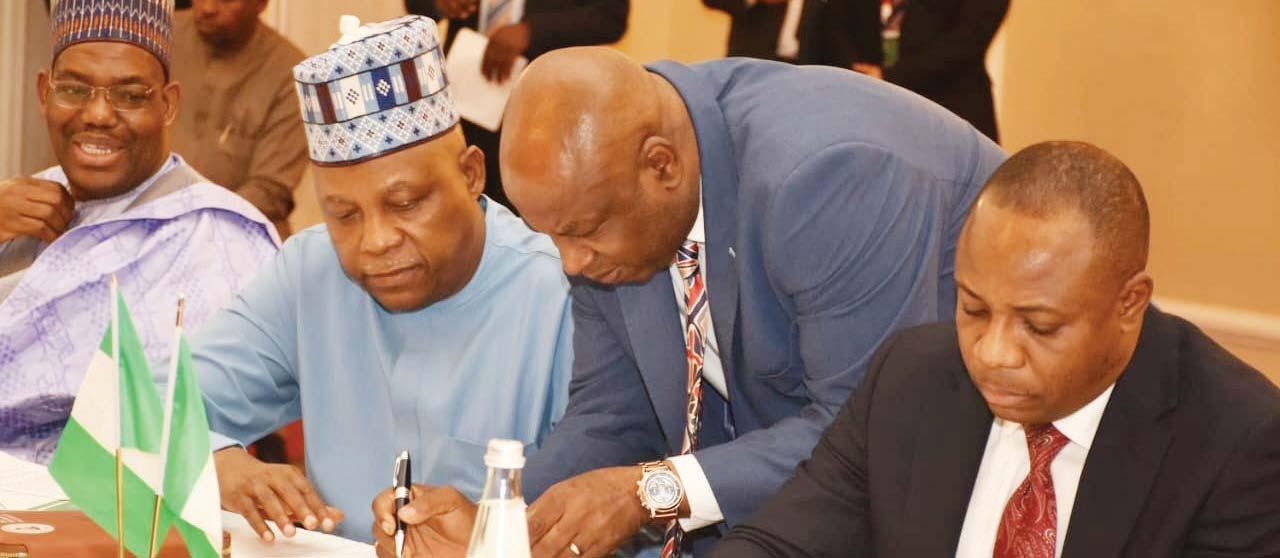
Justice Lawal in the judgment he delivered on June 24 of this year, stated that "equity is fairness and fairness is equity," adding that as a court of equity, the court would not allow the dispossession of the claimants who are children of a foundation director of the company while other directors are in hold and control of other property of the 1st defendant and deriving benefits from the same.
"Therefore, the claimants are entitled to possess and control what their late father possessed and controlled in the company, OTL, when he was alive," the judge ruled.
Justice Lawal added that the fact that the 1st defendant allowed the family of the company to live on, and derive income from the assets of the company all these years is a decision of the company by conduct.
He noted that the 2nd defendant who had refused to surrender the property under his control for joint management cannot now lead the battle of having the deceased director’s children hounded out of possession of the property that was managed by their late father.
The counterclaim instituted by the defendants was struck out for lack of competence as the court declared as follows: "That the claimants are entitled to the possession and occupation of the property known as No. 29 Oyinkan Abayomi Drive (formerly Oueens Drive), Ikoyi, Lagos, until the harmonisation of the management of the assets of the Ist defendant;
"That the threat of forceful ejection of the claimants from
No.29 Oyinkan Abayomi Drive, Ikoyi, Lagos, by the defendants is illegal;
"That the claimants are also entitled to the possession of the properties known as No 13 Hawkesworth Road, Ikoyi (now known as No 13 Ojora Road, Ikoyi), No. 32A Commercial Avenue, Yaba, Lagos, No. 30 Gerard Road, Ikoyi, Lagos and No. 4 Macpherson Ave, Ikoyi, Lagos, which were some of the properties that were under the possession of the late father of the claimants from the time the properties were released from government acquisition.
"That the 2nd-8th defendants are restrained either by themselves or through their agent or privies from interfering with the claimants’ possession and control of the five listed properties, being the subject matter of the suit."
Present as the judgment was being delivered were the 1st, 5th, and 8th defendants, with the 5th defendant, a director, representing the 1st defendant.
WAEC Alleges Plot to Discredit Body, Lists Conditions for Result Confirmation
Uche Nnaike
The West African Examinations Council (WAEC) has alerted the public of an attempt to discredit the 71-year-old examination body.
It described the allegation that it was frustrating efforts to investigate the results or certificates presented for elections by politicians as unfounded.
In a statement by its acting Head of Public Affairs, Moyosola Adesina, WAEC said it is guided by the principles of professionalism and vowed not to be “intimidated into doing the unethical.”
It alleged that there had been publications in the media against it while some of its unnamed officials have also been accused of taking bribes to obstruct investigations into results or certificates presented by politicians.
A media report from an Online medium had alleged that unnamed WAEC officials in Nigeria and Ghana were sabotaging the efforts of the International Police (INTERPOL) to investigate the WAEC records of the new
Akwa Ibom State Governor, Umo Eno.
“The reports went on to say that WAEC has been complicit in denying all litigants access to examination records in proof of their cases in court,” Adesina said in a statement, adding that: “The reports also bogusly claimed that an investigative agency had gone to Ghana and completed investigations while efforts to do so in Nigeria were blocked by some WAEC officials.”
WAEC, according to Premium Times, denied the allegations and described them as “baseless, mischievous, and malicious,” even as it argued that it has been subpoenaed on several occasions by the law courts and that it has always responded and provided all requested documents.
“WAEC is a legal entity that can sue and be sued. It is a law-abiding organisation with absolute respect for the judiciary. WAEC has been subpoenaed on several occasions to appear in court to confirm the authenticity of WAEC results, certificates, or documents tendered by some litigants, and we have always
done so,” he said.
The statement further added that WAEC offices in Ghana and Nigeria operate independently.
The statement further said: “WAEC Ghana has nothing to do with the results of Nigerian candidates, just as Nigeria does not have anything to do with the results of Ghanaian candidates, even though we administer the same international examinations.”
“Therefore, saying that some investigating agency had gone to Ghana and had concluded investigations on a matter, only to be blocked on the same matter in Nigeria, is a lie from the pit of hell. “How can the Ghana office, or even the headquarters, speak on a matter they know nothing about? No member country has other member countries’ results, records, and documents.”
She said WAEC would continue to cooperate with law enforcement and security agencies whenever it is called upon to provide documents and records to aid their investigations on matters.
“We do not respond to inquiries by private individuals, non-government agencies, and
law firms not authorised by courts. Bonafide candidates’ requests are also attended to,” she added.
Adesina added that the body has the legal right to ask for a variation of court orders when it considers particular demands impossible. “We speak no more on that, but WAEC has and will always explain why such requests cannot be granted to petitioners,” she said.
She also clarified the difference between certificates and results.
According to her, the result is the grades of a candidate, while the certificate is a statement containing the same records but “in a given format”.
She said a candidate can have a result without a certificate due to loss, destruction, or theft. But a candidate can never have a certificate without a result, she added.
“Some people tend to separate results from certificates, whereas they bear the same records and convey the same information,” she said.
“A certificate represents a candidate’s result in a given format,” she added.
SIGNED AND SEALED…
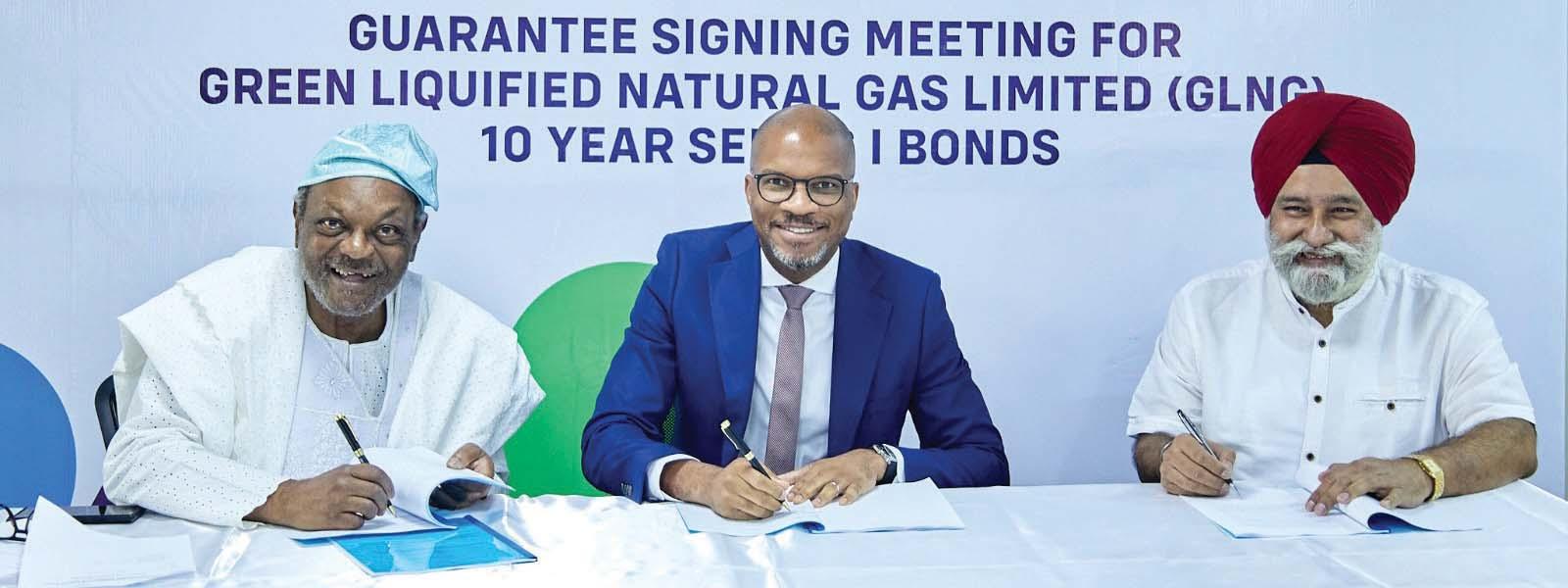
Bandits Kill Muslim Cleric, Farmers, Kidnap 50 in Kaduna
The Birnin-Gwari Emirate Progressives Union (BEPU) in Kaduna State has disclosed the death of the Vice-Chairman of Jama’atul Izalatul Bid’ah Wa Iqamatus-Sunnah (JIBWIS), Birnin-Gwari Branch, Mal. Yakubu Muhammad Bugai and three other farmers who were killed by rampaging bandits who also kidnapped over 50 persons in July alone.
The JIBWIS leader was shot at his farm located around the Rema area and was later taken to Jibril Mai-Gwari General Hospital after sustaining gunshot wounds on his abdomen and arm but passed on by 7:30am on Thursday.
Until his murder, Bugai was a strong pillar, pioneer member and also the Vice-Chairman of the Birnin-Gwari Orphans Foundation, which is an organisation devoted to taking care of thousands of Orphans left behind by mostly victims of banditry in the security ravaged local government.
A statement issued by the
BEPU Chairman, Ishaq Usman
Kasai further disclosed that in another sad development, around Sabon-Layi, Kurgi, Yelwa, Tashan-Keji, Shiwaka, Unguwan Danfulani and many more rural communities in western part of Birnin-Gwari who are sharing boundaries with Kamuku and Kuyambana Forests, which are serving as hideouts of the Bandits, large number of locals were also kidnapped on their farms.
“The bandits also herd over people’s farms in those areas where in the Sabon-layi Community alone, more than 10 farms (especially those with grown up maize) have been cleared deliberately by the bandits’ cattle. In fact, the bandits told the farmers to stop wasting their time going to farm in the area because even if they do, they will not allow them to harvest and may end up being killed or abducted.
“On Friday 21/7/2023, the bandits invaded Ung. Bawa in Randagi Ward and kidnapped 28 persons including women and children and also killed 1 and
shot 4 who are currently receiving medical attention at various health facilities. However, 13 out of the captives have managed to escape from the den.
“On Tuesday, bandits attacked Rafin Zango, around Eka Farm, and kidnapped two persons who were on their way coming back from Birnin-Gwari town heading to Gagumi Community. Also, on Wednesday, they invaded Unguwan Roka of Kakangi Ward, killed 1 person and kidnapped 9. On Thursday night, bandits came back to a nearby Community, Unguwan Danfulani, killed one person and kidnapped seven from one family.
“Earlier on the same Thursday, the bandits blocked traders and grain suppliers who were on their way from the western part to the Birnin-Gwari weekly Market. The bandits operated for about an hour and kidnapped six persons.
“We are deeply concerned that farmers continue to be attacked whenever they go to their farms. This poses serious danger to this year's targeted farming outputs as
about 70 per cent of farmlands are yet to be accessible. On Wednesday, four locals were kidnapped at their farms at Yelwa Community in Sabon-Layi axis.
“In fact, kidnapping and killing of locals at farms have become rampant in the entire Birnin-Gwari general area. Even today, Saturday, bandits abducted two farmers at Maraban Agyaro area of Gagumi axis. These incidents are just to mention but few”.
He said BEPU is deeply concerned that the killings and abductions of farmers in the Birnin-Gwari general area as it escalates on a daily basis, unchallenged and mostly unreported.
“In view of the situation, BEPU appreciates the determination of the new administration and the effort of the security agencies towards addressing the problem. The Union, however, appeal to the Federal Government to facilitate establishment of military detachments in Katakaki, Gagumi, Tashar-Keji and Bugai axis of the Western part of Birnin-Gwari
WHO: Over 82m Nigerians, Other Africans Untreated for Hepatitis
Onyebuchi Ezigbo in Abuja
Over 82 million people living with hepatitis in Nigeria and other African countries do not receive the care they need for testing and treatment, the World Health Organisation (WHO) has said.
WHO Regional Director for Africa, Dr. Matshidiso Moeti, in a message to commemorate this year’s World Hepatitis Day 2023, said infection with the hepatitis B virus is preventable by vaccination, while doctors can now successfully treat hepatitis C, caused by the hepatitis C virus, with antiviral drugs. She further disclosed that hepatitis causes the breakdown of the liver’s normal structure, which prevents the liver from working correctly.
Moeti, therefore, called on
countries and critical stakeholders to work towards scaling up hepatitis B immunisation coverage to reach the globally agreed target of 90 per cent, particularly by introducing the hepatitis birth dose.
She said: “The theme for this year’s World Hepatitis Day, “One Life, One Liver” seeks to emphasise the link between viral hepatitis infection and liver inflammation - that is, liver injury and damage - and the broader issues of liver health and primary health care.
“Hepatitis B is commonly transmitted from mother to child during birth and delivery. Hepatitis B is also spread through contact with blood or other body fluids during sex with an infected partner, unsafe injections, or exposure to sharp instruments.
“Hepatitis C is spread through contact with the blood of an
infected person by unscreened blood transfusions, sharing needles, and unsafe sexual practices that lead to direct exposure to blood.
“More than 91 million Africans are living with hepatitis. In 2019, an estimated 1.2 million new hepatitis infections and 125,000 hepatitis-related deaths occurred in the African Region. Deaths occur mostly among the young and productive segments of the population.
“WHO’s global hepatitis strategy, endorsed by all WHO Member States, and the Framework for an Integrated Multisectoral Response to TB, HIV, STIs, and Hepatitis in the WHO African Region aims to reduce new hepatitis infections by 90 percent and deaths by 65 percent by 2030.
“WHO supports regional and national efforts to eliminate viral hepatitis by 2030 by providing
clear guidance for decentralised and simplified person-centered prevention, testing, and treatment of viral hepatitis, including eliminating hepatitis B through birth dose vaccination (the day of birth or the day after).
“A lot still needs to be done to reduce hepatitis-related deaths and infections. Despite the availability of diagnostic tools and effective treatment, more than 90 per cent of people living with hepatitis in Africa do not receive the care they need, and less than 10 per cent of the population has access to testing and treatment. This leads to progressive advanced liver disease, devastating financial burden, emotional distress, and stigma. Testing and treatment, as a public health approach, remains the most neglected aspect of the response.”
where the Bandits Warloads are now using as their operational basis and continuously terrorising the Birnin-Gwari general area”.
Equally important, he said is the need for restoration of the Mobile Police Unit in Damari Community of the eastern part of the local government where bandits are using as a route in attacking many communities in the area.
“The victims of banditry continue to die due to poor medical attention as a result of
inadequate staffing and equipment in the Jibril Mai-Gwari General Hospital. Only one medical doctor in the entire hospital. This is by far not proportionate to the population,” he explained.
“On this note, BEPU appeals to the Kaduna State Government to post more health personnel or recruit indigenous medical doctors who would be managing the Hospital as victims of banditry continue to die due to insufficient primary medical attention” he added.
Insecurity, Sit-at-home Damaging Livelihoods, CSOs Cry Out
David-Chuddy Eleke in Awka
A civil rights advocacy group, Rule of Law and Accountability Advocacy Centre (RULAAC), and various critical stakeholders have expressed fears that incessant killings, destructions of property, and sacking of communities have caused a devastating impact on socio-economic and political development, as well as livelihoods and civic freedoms in the South-east.
In his opening remarks while addressing participants, victims, and stakeholders during a twoday summit on ‘Peace and public hearing for victims of insecurity/ crime and human rights violation in the South-East zone’ held in Awka yesterday, the Executive Director, RULAAC, Okechukwu Nwanguma, said the dimensions and manifestations of insecurity in the South-east calls for serious concern, careful examination and urgent action.
Nwanguma also pointed out that the insecurity in the region has had deleterious and devastating impacts on socio-economic and political development, livelihoods, well-being, and civic freedoms.
He also lamented that the weekly sit-at-home has ruined the economy of the South-east and worsened the plight of the toiling people most of whom depend on daily earnings, thereby increasing rural poverty and misery.
According to him, the summit, in partnership with Action Group on Free Civil Space, was convened for critical stakeholders to have
some conversation about unabated insecurity in the Southeast to gain deeper insight into the root of insecurity and the risk factors for its persistence.
He added that the summit was aimed at jointly proposing workable recommendations for ending insecurity and addressing human rights violations and shrinking civic space in the region.
He blamed the federal government’s mismanagement of the Indigenous People of Biafra (IPOB) agitation, describing it as a major cause for the escalation of violence in the region.
He said: “No doubt, insecurity has had deleterious and devastating impacts on socio-economic and political development, livelihoods, well-being, and civic freedoms.
“We also intend to build evidence through the testimonies by victims and witnesses with which we can advocate and push for urgent action to pull the zone out of the quagmire.
“With the information and evidence from testimonies, we also intend to assist the most vulnerable and most affected victims to seek legal redress.
“Although insecurity assumed more serious dimensions and has remained a top national challenge throughout Nigeria, since 2009 with the emergence of Boko Haram and its mismanagement by the Federal Government, the dimensions and manifestations of insecurity in the South-East call for serious concern, careful examination and urgent action.
John Shiklam in Kaduna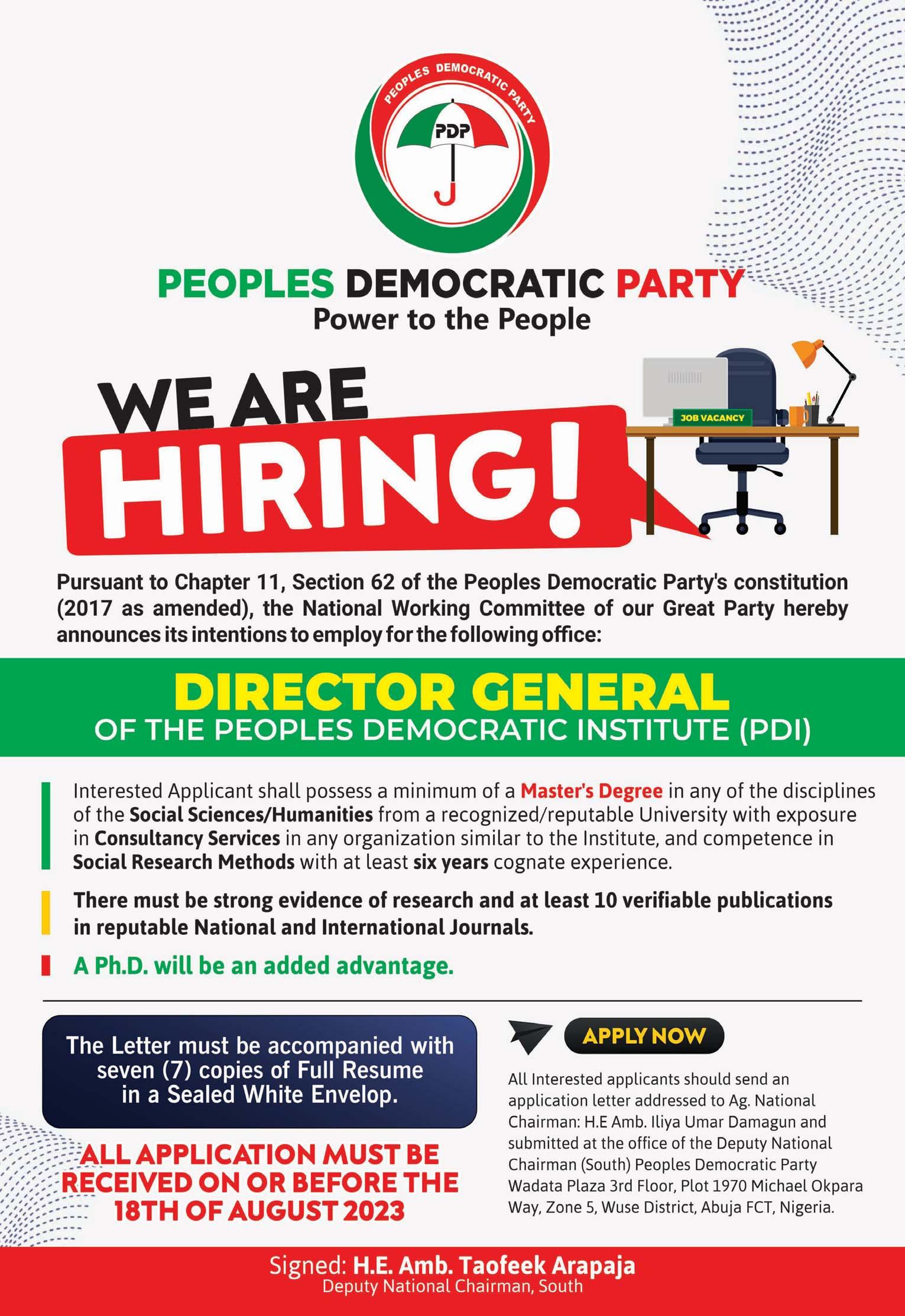

Survival Guides For A Life In The Valley
Without a doubt, the growing economic hardship in the country has left so many casualties in its trail. Here and there you read stories of individuals who were once at commanding heights in their careers or businesses, losing control and finding themselves in conditions they consider beneath their status. What do you do when you have built a reputation for integrity over the years, but without warning, everything comes crashing like a pack of cards? How should you react when friends and dignitaries who thronged your home and office when you were in command vanish into thin air when the wind goes against you? How should you respond when those who have seen you as a role model are shattered by the reversal of the situation? It may be difficult to give correct answers to those questions unless you have experienced it personally. For those who may have unexpectedly landed in situations where they did not bargain and are wondering what to do; here we present again what could be regarded as survival guides for a life in the valley. Mr Olu Abosede shared these seven lessons below with me and they were first published in THISDAY in 2017. They can be regarded as evergreen survival guides for coping with life in the valley. Please read slowly and meditatively.
Mr Abosede was the founder and managing director of a wholly indigenous quoted company, Aboseldehyde Plc. The company was once used as a reference point for other local entrepreneurs who would want their companies listed on The Nigerian Stock Exchange (NSE). Within a period of 14 years, the company had become a very strong brand in the country in its niche area. It had moved from a rented apartment to a multi-million-naira head office complex that was declared open with fanfare.
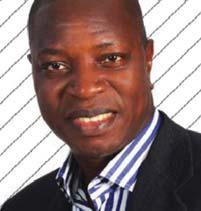
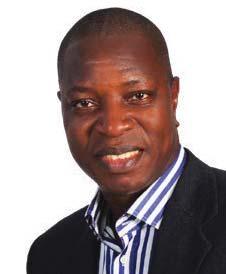
Things were also pretty good for the man who built his first personal multi-million-naira house at the age of 28 and the second at the age of 32. His children were in choice schools locally and abroad. In those days, his name was enough to secure a credit line from the banks. Top executives of banks ran after him to get his accounts. His house was always a beehive of activities as his close friends and associates could easily walk in and treat themselves to any choice of drinks in his lavishly stocked bar. Life was, indeed, very good.
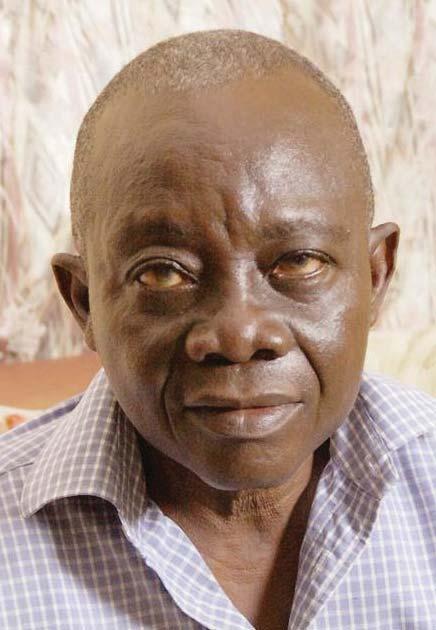
Then in a sudden twist, in 2000, there was a gradual reversal of fortune. First, the banks slammed a receivership on his company which was unable to repay the loans it took. The company was eventually taken over by the creditors. Mr Abosede tried a few options, including liquidating some of his personal investments to salvage the situation. It did not work. While still trying to salvage the situation, one of his houses went up in flames in the night while he and one of his visiting children were asleep. They managed to escape unhurt.
After more futile attempts at stopping the tide, he took what he considered to be the last logical option. He sold his second house and made a water-tight arrangement to relocate abroad. At Heathrow Airport, during his trip to the United Kingdom to perfect the relocation arrangement, he was denied entry on the basis of the fact that he was not the same person as the one on the photograph affixed to the passport. His explanation that he had been a regular visitor to the place and the fact that he had just been to Britain recently with few associates to attend his son’s wedding did not work. He returned to Nigeria the same day with the plane that he boarded to the United Kingdom. The money from the sale of the house also vanished under strange circumstances.
Back in Nigeria, with all the houses gone, things got worse. Our guest had to move into a rented apartment which incidentally was owned by his account officer in one of the banks being used by his company when it was still operational. Four times he attempted to commit suicide. On one of the occasions, he had prepared some chemicals he wanted to swallow before a friend’s timely intervention saved the situation. In our first meeting, he recollected:
“All my life until I was 54 when that crisis started, I had never known poverty. I had to withdraw my children from the choice schools they were attending to less-expensive schools. I could see my dream of building a world-class company disappearing. Everything I built and relied on suddenly gave way. When you
are in afflictions, what you never imagined you would do, you would just come into it.”
How did Mr Abosede handle those lonely moments of about 10 years when everything appeared to have fallen apart? What were the lessons he learnt during those trying moments? What nuggets does he have for those going through tough times? What suggestions does he have for those who are currently in top positions in their businesses and careers? He graciously agreed to pour out his mind to us undiluted.
NUGGET # 1
There are spiritual forces we cannot see that shape our lives.
A few years back I would have argued that there was nothing like God or any external forces that get involved in the affairs of men regardless of whether you are ignorant of it or not. Let me put it this way. I had it very good early in life. I graduated at the age of 25 as a chemist with multiple jobs waiting for me. I eventually picked up a job in one of the conglomerates then as a laboratory chemist and within a short span of time moved steadily to the top. I had a car with a driver attached to me for 24 hours. From being a lab chemist, I moved to the position of assistant production manager, then to the position of factory manager and ultimately, I was promoted to general manager and director of the company. I never used one car for more than two years.
NOTHING IS PERMANENT
I was exposed to a lot of training locally and abroad. In my own calculation, I had thought that my rapid rise was a result of my own ability, personal intelligence and intellectual capacity.
It was after I had run out of options and I decided to reflect more that I started to discover a startling fact: the universe is governed by natural or spiritual laws which would work for you when you align yourself with those laws and would work against you if you contravene them. God is ever-present in every little thing you do. He wants to help you. He wants you to achieve the purpose for which he created you but He needs your cooperation.
Upon reflection, that was where the seed of disaster was sown. Failure signals do knock at people’s doors, but in most cases, we don’t usually recognise them. One lesson I have learnt is that there is a superior force that shapes things in the physical realm, and it is to one’s advantage to believe this.
NUGGET # 2
Never lose confidence in yourself.
“One other key principle I learnt from my life experience is that whatever happens and whatever the circumstances you are facing, you should refuse to lose faith and confidence in yourself. Once this is intact and you believe there is God who is always ready to work with you, you’d find that things become a lot easier. When you lose faith in yourself, ultimately, depression sets in and when depression sets in and there is a loss of confidence, you just discover that even what you knew you could do, you start to find it difficult you can actually do them.”
“We tend to underrate our abilities during crisis times; and once you do that, you would lose a lot of ground which may take a considerable effort to bring back. You must really work on your confidence and wrap it with the grace of God which makes it impregnable during assaults of life. With that in place, you can continue to seek, ask and knock.”
“You would be astonished as to what you can do in times of crisis once you don’t lose faith in yourself. “Believing in yourself is a crucial step in coming out of failure. For instance, I went into a product of which I had no knowledge. Going into it was a challenge to my professional background as a chemist. But I plunged into it headlong and you would not believe it, that product has turned out incredibly great.
NUGGET $ 3
Use crisis time to reinvent yourself.
“Every single day I wake up, I gain more understanding about life that I could not have gotten without a crisis. In times of crisis, usually, every hope appears lost. This is usually the situation when you focus on the challenge you are facing instead of the opportunities that abound around you in spite of the problem. But when you reinvent yourself and refocus, you will discover that there is always a little opening which if you recognise is usually planted by the Higher Power to take you out of that situation. This comes when you spend time reflecting. I must say that my challenges were so overwhelming that I could not see any ray of hope anywhere.”
“My advice is this: It is important that in tribulation, you should put yourself in a position to look for that little opening. This may be tough but keep looking and searching. With re-introspection, there will always be one. Once you find that little opening, don’t let it go, cling to it with all your might and you will soon discover that with focus, that little opening will take you out of that crisis. From my own little opening, I moved into a few other things I would share with you later even though they were a surprise to me.”
NUGGET # 4
Take responsibility for any situation you find yourself in and the way out of that problem.
“When my ordeal started, I threw the responsibility on everyone else except myself. I blamed the banks who did not give me enough time to restructure the company and meet my outstanding obligations to them. I blamed friends who refused to sympathise with me and lend me helping hands when I needed them most. I blamed
relatives who trooped in when the going was good but disappeared at the slightest appearance of a challenge. I blamed the press whom I thought did not give me fair hearing. I blamed everyone else except myself.”
“But do you know what I discovered? The more people I blamed the more depressed and miserable I became. For more than four years I was angry with everybody and myself. I was even developing health problems in the process. Every day as I blamed other people, I got the problem on the ground magnified.”
“While in that situation, I just reflected on a statement made by Dr Christopher Kolade when I invited him to be on the board of my company. I felt that with his goodwill bringing him on board would make a lot of difference to the company. But in our first meeting, he said: ‘I know what you want to do; you want me to take responsibility for the success of the company. But you are responsible for the success of your company’. I continued to echo that statement.”
“I later realised that placing responsibility for whatever happens to you would invariably mean you have lost your personal power which the Higher Power has given to everyone. You are in this world for a purpose and that purpose can only be realised by you, and the Higher Power. It means that any action you take is your own action.
NUGGET $ 5
There is no odd job in crisis.
“My brother, you don’t have wisdom and experience if you don’t have crises. I am talking of a situation where you are left with absolutely nothing - no influence, no privilege, no position and your name counts for little.”
“And things can turn bad very rapidly. I remember a time when things were still very good, a finance leasing company invited me to be on its board. I offered to nominate someone to represent me, but they insisted that they wanted me because of my name and the goodwill I had built. That was gone during the crisis and my name really meant very little.”
“I learnt this truth the hard way. To get out of a crisis, especially when your back is on the wall, survival is the name of the game. No job can be considered odd in crisis times and you will multiply your sorrow if you sit down brooding over your former position and privileges.”
“You cannot get out of a crisis quickly if you start to look at your former position and privileges or start to compare yourself with other people. To get out of the hole, the wisdom is in looking at your current position and seeing what you can do gradually to build up from that ground floor. Come to terms with the fact that you are on the floor. You must flush out anger, bitterness, envy and jealousy.”
NUGGET # 6
Nothing is permanent.
“When I was the CEO, it never occurred to me that a time would come when I would not be able to do anything I felt like doing. I was hit by stroke some two years ago and with it all the dreams I had carried in my end are becoming a mirage. I have many things I want to do; many dreams I want to accomplish but I do not have the energy and the health to make it happen. The lesson is this, seize every opportunity to make things happen when you have the energy; you cannot guarantee you will be able to keep it for ever.”
NUGGET # 7
Don’t be bitter with people.
“This may be hard to understand but one lesson I am learning late is that when I am bitter with any human being, I am actually working against myself. When things were okay with me, my house was a beehive of activities. I had gone out of my way to help other people. I sponsored some to schools. But when things went bad, it was those people I had helped who deserted me first. I was bitter and I still have a bit of bitterness towards those people but I am learning that bitterness erodes health.
When I was the CEO, it never occurred to me that a time would come when I would not be able to do anything I felt like doing. I was hit by stroke some two years ago and with it all the dreams I had carried in my end are becoming a mirage. I have many things I want to do; many dreams I want to accomplish but I do not have the energy and the health to make it happen. The lesson is this, seize every opportunity to make things happen when you have the energy; you cannot guarantee you will be able to keep it for ever.
Politics and Economics of Palliatives
The
States Roll out Palliative Measures
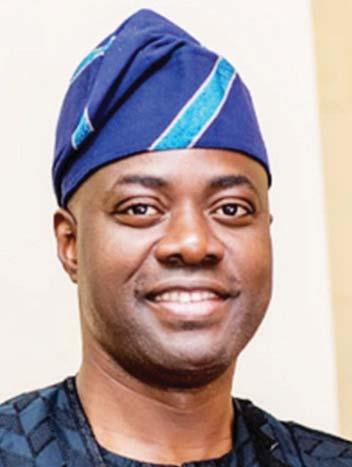
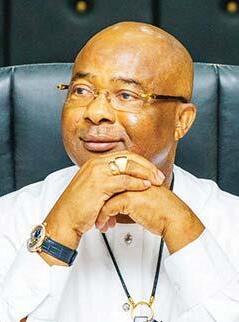
transportation scheme to help the resi promising to announce more palliatives billion naira’ palliatives to alleviate the
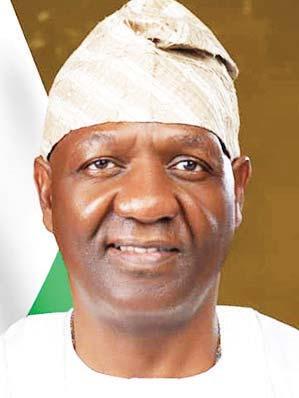
Trust Issues
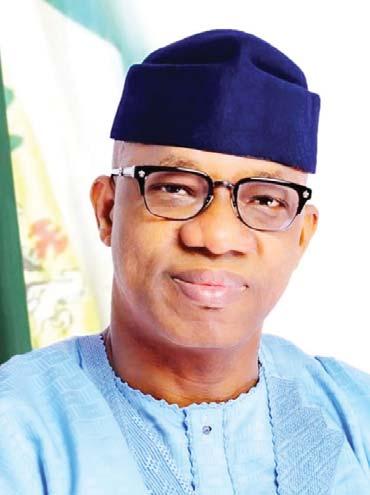
INTERVIEW
Renewable Energy will Empower Businesses, Create Jobs for Nigerians
Former Vice President Yemi Osinbajo was recently appointed as Global Advisor to Global Energy Alliance for People and Planet. In this interview with Emma Okonji, Osibanjo unveils his strategies to promote renewable energy in Nigeria and Africa with a view to enhancing businesses and job creation. Excerpts:
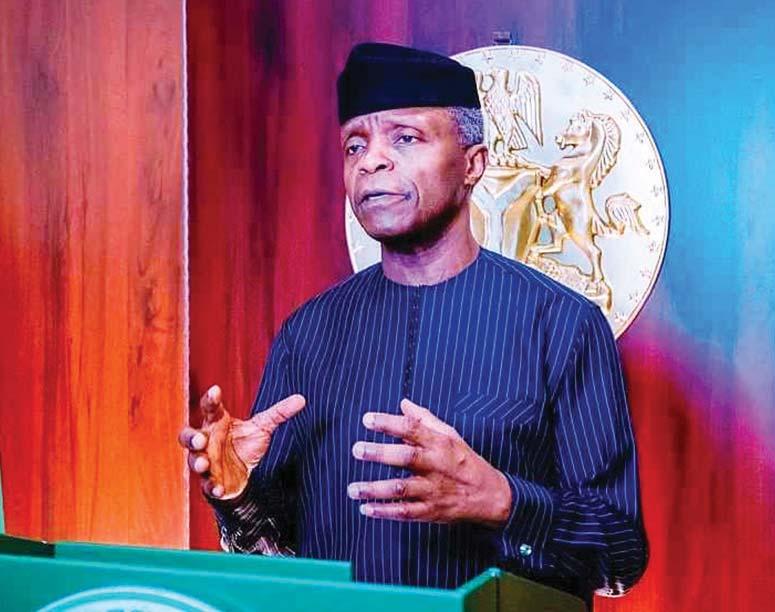
YourecentlyjoinedtheGlobal EnergyAllianceforPeople and Planet (GEAPP), as Global Advisor. What motivatedyoutojoinand GlobalAdvisor?
Yes, I have joined GEAPP as Global Advisor on May 29, 2023, as Vice President of the Federal followed the activities of GEAP in Africa and I was pleased with their operations, which focused on universal energy access and climate change. I was motivated by the partnerships they have including the partnership with the Nigerian government on clean energy and climate change. The truth is that the issues we are facing with climate change cannot be addressed without focused partnerships, and that is exactly what GEAPP is doing in Nigeria and in other African countries. GEAPP has done an excellent job in building those partnerships across the African continent to address climate change and provide access to clean energy.
As Global Advisor, I will support GEAPP’s partnership with governments to enhance the clean energy sector. I will be a leading advocate for Just Energy Transitions in Africa including scaling up Africa’s share of the global carbon market via the Africa Carbon Markets Initiative (ACMI).
Myroleisalsotochampionaccesstoclean energyinNigeriaandtherestofAfrica.
I am particularly happy that I will be working with GEAPP to drive clean energy in Nigeria and Africa. I am fascinated by the level of partnerships that GEAPP is building with the Nigerian government to promote clean energy in the country. Nigeria needs access to clean energy and energy access is central for us as a country, because it is at the centre of our development. If energy that is required for development, it will set us back as a country. Our emphasis at GEAPP is about providing access to electricity that will drive economic growth and job creation, and help Nigerians and the rest of Africa to conquer poverty and diseases.
CanyoutellusmoreaboutGEAPPandthe impactofitsoperationsonNigeriaandAfrica?
The Global Energy Alliance for People and Planet (GEAPP) is an alliance of philanthropy, governments in emerging and developeding partners. Our common mission is to enable emerging economies to shift to a clean energy, pro-growth model that accelerates universal energy access and inclusive economic growth, while supporting the global community to meet critical climate goals during the next decade. As an alliance, we aim to reduce four gigatonnes of future carbon emissions, expand clean energy access to one billion people, and enable 150 million new jobs. With philanthropic partners like IKEA Foundation, The Rockefeller Foundation, and Bezos Earth Fund, GEAPP works to build the enabling environment, capacity, and market conditions for private sector solutions, catalyse new business models through innovation and entrepreneurship, and deploy high-risk capital to encourage private sector solutions and assist just transition solutions.
As for the impact on Nigeria and Africa, I will
Osinbajo
say that I do not need to reinvent the wheel, being the Global Advisor to GEAPP, because there is a lot already put in place to drive GEAPP’s initiative. GEAPP has several philanthropists and multilateral institutions that are helping to drive its initiatives. Basically the objectives of GEAPP are the same, and the objectives are geared towards transition. What we will be working on to achieve our objectives, will be countries, and that of course is not a one-size-
already have their developmental plans. Once
the GEAPP initiative. In Nigeria, GEAPP has developed an energy transition plan that is one of the best in the world and the plan is helping the Nigerian government to focus on what the critical issues are in the transition process and to identify the important economic value chain. It is also helping to identify the kind of support and the kind of funds that will be required from the private sector and donor foundations. We are working towards reducing the cost of access to renewable energy to enable more Nigerians to have access to renewable energy. The cheaper renewable energy is, the better it will be for Nigerian businesses and for job opportunities.
HowdoesGEAPPintendtofundtherenew-
ableenergyinitiativeinNigeria?
In terms of funding, what is important to the energy is about how the GEAPP’s funding will catalyse other funding. So it is not about the quantity of our funding, but the nature of our to co-invest over $10 billion, alongside $1 billion Our ultimate goal is to unlock private sector capital, because that is where the greatest size of money comes from. In South Africa, GEAPP is
working in partnership with the World Bank and has invested $7 million to enable $450 million of World Bank money to move the scale up of the commissioning plans. So $7 million of GEAPP’s capital has catalysed $450 million from World Bank, to drive renewable energy project in South Africa. In Nigeria, GEAPP is trying to unlock pension fund money and bank lending into the renewable energy space. GEAPP has put in $10 million in the pilot stage that will unlock several multiple of dollars of similar lending from the Nigerian Pension Fund industry. So the GEAPP funding model is to invest in such a way that it would catalyse several millions of commercial capital to support our renewable energy initiative for Africa.
WhatisyourviewaboutNigeriaandthe restofAfricainmakingadequatepreparation toaddressclimatechange?
It is evident that if we do not take serious action to address climate change, we may cease to exist one day as a continent. Countries of the world are developing their infrastructure to address climate change and Africa must not be left out. The Nigerian economy is still very fragile and we need to strengthen it by putting the right infrastructure in place to address climate change. There is a lot for us to do and to do quickly as a country and as a continent in order to reverse what we are seeing and experiencing today in the area of climate change.
It is not only about addressing climate change, it also entails access to clean energy at the same time. So as we try to resolve the climate change issues, we must also try to resolve the energy access issues.
Energy access issue is central to us as a nation because it is at the heart of development. No matter how we put it, if we do not deal with energy access issues, we may not have the energy that is required for development.
HowwillGEAPPaddresstheissueofpoor infrastructureinNigeriaandAfricainachieving
itsrenewableenergydrive?
Nigeria and the rest ofAfrica is the opportunity to leapfrog. In Nigeria, the government is beginning to see the need to decentralise our energy supply and the policy is already addressing some of the Nigerian electricity challenges. So rather than have a single grid system, we now have mini-grid systems that have increased energy capacity across the country. This of course is addressing Nigeria’s energy infrastructure improvement in our energy infrastructure.
TellusaboutGEAPP’scampaignstrategy toprovideaccesstocleanenergyinNigeria?
The ambition of GEAPP is to provide access to electricity to all Nigerians that do not have access to electricity. The campaign for access to electricity, which started from Lagos in Nigeria, is expected to cover other African countries, and it is designed to empower individuals and small businesses with electricity that comes from renewable energy.
The campaign actually started from Ikorodu market in Lagos, where traders were provided with roof-top solar panels that generated electricity 24/7 to power their businesses.
Over 700 million people globally have no access to electricity, including Nigeria, while half of the global population lacks access to aftheir lives and businesses. GEAPP is therefore determined to provide access to clean energy to people globally, including Nigeria. The roof-top solar energy that we installed in the Ikorodu as traders have now grown their customer base and daily sales, due to the constant electricity supply from our roof-top solar panel. We are determined to cover the entire Nigeria with clean energy
With the supply of clean energy in an Ikorodu market in Lagos, GEAPP has helped businesses in the market to quickly transform. The lives of traders and customers were also transformed and that is the core of what GEAPP is trying to achieve in Nigeria and the rest of Africa and the world at large. So the emphasis for us at GEAPP is how to provide access to clean energy to so many Nigerians and Africans who do not have access to clean energy to power their homes and businesses. The statistics of the number of those without access to electricity in sub-SaharanAfrica are quite worrisome. So I think as a nation and continent, we really have to deal with the issue of energy access, and it is one of the critical things that GEAPP must pay attention to.
WhatmustAfricansdotokeyintothevision ofGEAPPinprovidingaccesstogreenenergy?
As a matter of fact, Africa can be a solution to a number of issues about climate change and access to green energy. I say this because Africa has abundant nuclear energy, with natural resources from the sun. What we need to do is to invest in solar panels and batteries. In Nigeria, we have a large youth population and Nigeria’s carbon is one of the largest in the world. So it is possible to make Africa the solution to energy issues. Africa can create millions of job opportunities for its youth population, using renewable energy. That is possible if we are able to build the right infrastructure and align with the countries and organisations like GEAPP that are committed to addressing the issues of climate change and clean energy.
Read
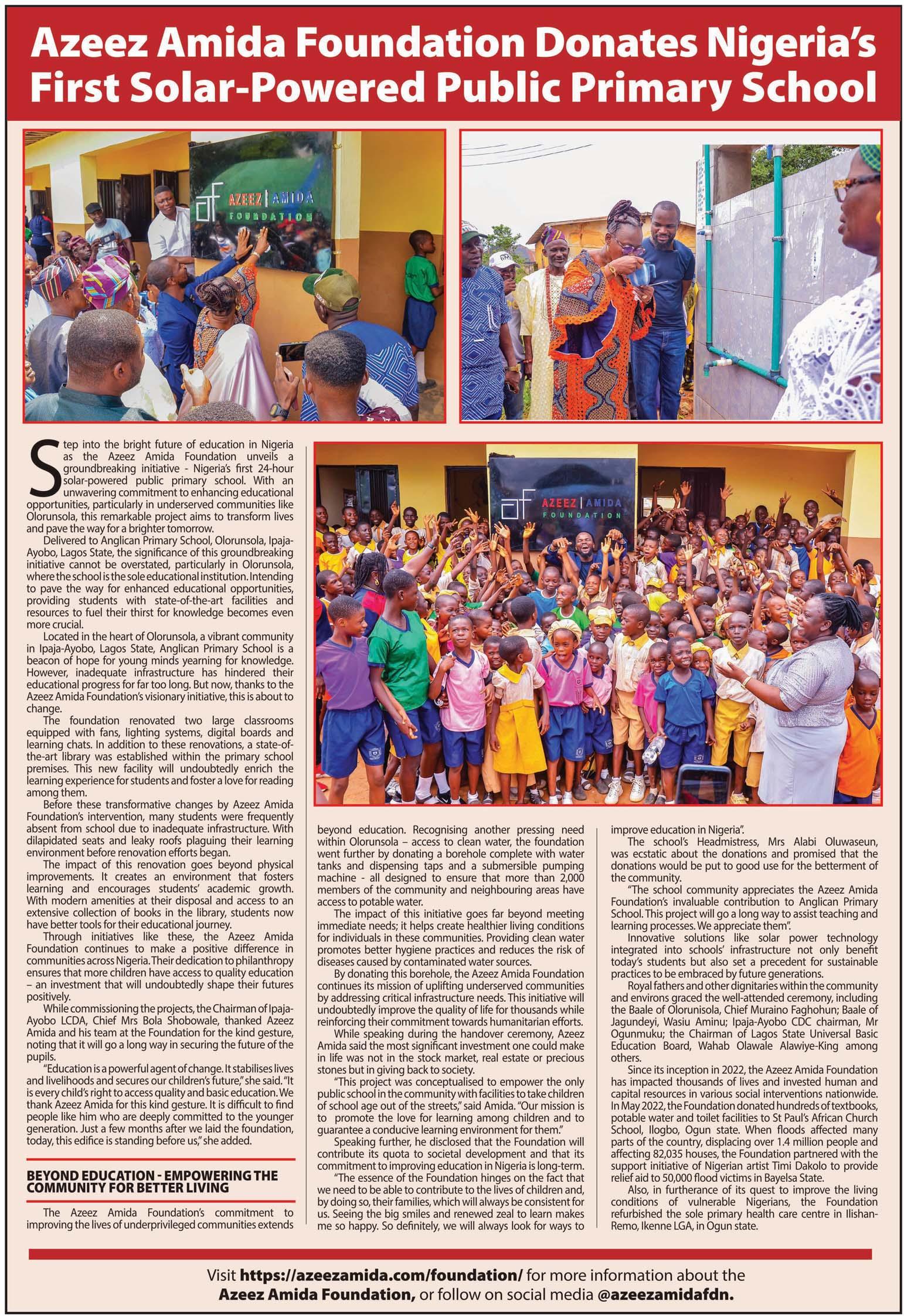
NIGERIA’S CULTURE OF POLITICAL APPOINTMENTS
NASIRU USMAN MASSALLACHI argues the need for leaders to go for the best
TRIAL AND TEMPTATION OF SIERRA LEONE’S DEMOCRACY
The 2023 general election in Nigeria has come and gone. Candidates from different political parties contested for the elections and some that eventually emerged victorious are now the only hopes for ordinary citizens. One of the vital factors for the success or failure of an administration is mostly determined by the set of people that surrounds leaders. The cabinets usually range from ministers and heads of agencies at federal levels, commissioners and advisers to governors at state levels as well as members of local councils in local governments.
Indubitably, appointees are the eyes of leaders. Appointing quacks is like giving a farmer tools to conduct surgery. However, those in the cabinet are usually appointed; some appointments are based on track records of professional contributions. Others get theirs because of their loyalty while supports during campaigns. Administering the affairs of ministry, agency or department of governments require people that have vast experiences, bureaucratic skills, and ability to work under pressure.
But I must say that political God-fatherism is what has been dragging Nigeria back. Many men before election, and which come with conditions. Some of the conditions include giving them freewill to appoint whoever they
or annual basis. These and more are what lead to the emergence of heartless leaders who mostly use idle youths as thugs while sending their wards abroad to some of the best institutions that money can buy.
square holes. Many of the people they employ or give appointments are incompetent individuals who specialize in diverting public funds. Some of these leaders commercialize government jobs to the extent that only those with deep pockets and who have strong political ties get appointments. Most of the time if they do not get what they want they are wont to cause unrest in their immediate communities.
There is evidence to indicate that after approval for the construction and provision of social amenities such as roads, schools and hospitals, they give less priority to follow up visits to these projects to carry out performance checks. This is because some of these contracts were given to bogus contractors who carry out construction with substandard materials. It is usually the ‘Who You Know or Who Knows You’ syndrome that takes precedence over quality and competence.
And that’s why many projects duly paid for are abandoned.
Nigeria as epicenter for Africa’s democracy should do what is right. Our leaders need to be wary of who they carry along as cabinet members. There are many incompetent people lurking around and it is therefore necessary to carry out thorough investigations on these people before they are approved to man sensitive positions in government. Besides, there is need to make provision for independent candidacy as it is done in developed countries; this would help in putting an end to the politics of God-fatherism.
In conclusion, leaders at all levels should arrange for some kind of ombudsmen to look into

this would assist in identifying
I ascribe the extremely high rates of poverty and unemployment in Nigeria today to the inability of our leaders to appoint square pegs in Massallachi writes from Gombe
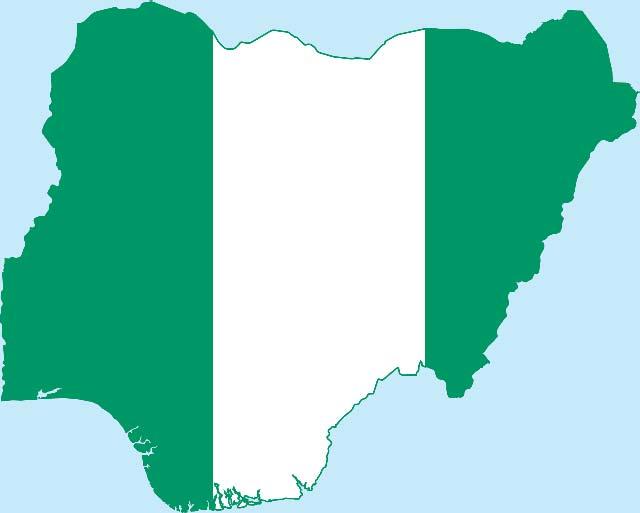
Sierra Leone’s recent election has brought to the forefront the challenges facing democratic governance in Africa. The electoral process was marred by violence, lack of transparency, allegations of malpractice, brutality by security agents, and hate campaigns. These issues have had significant repercussions, including loss of life, damage to property, threats to peace and national stability, and setbacks in the nation’s years-long investment in national reconciliation.
On June 24, Sierra Leoneans participated in the general elections for the presidency, parliament, and local council positions. These elections marked the fifth consecutive election since the country’s civil war ended in 2002 and the second since the completion of the United Nations Integrated Peacebuilding Office in Sierra Leone (UNIPSIL) mandate in 2014.
The incumbent President, Julius Maada Bio of the Sierra Leone People’s Party (SLPP), was declared the winner of the presidential election by the Electoral Commission of Sierra Leone (ECSL) on June 27. President Bio secured 1,566,932 votes. His closest rival, Samura Kamara of the All Peoples Congress (APC), received 1,148,262 votes. President Bio was inaugurated for his second and final five-year term shortly after the announcement of results. However, Samura Kamara and the APC have vehemently rejected the results, alleging an attack on democracy and refusing to accept the outcome declared by the electoral commission.
According to the ECSL, the SLPP won 60% of the parliamentary seats, securing 81 out of 135, while the APC won the remaining 54 seats. Additionally, the SLPP gained control of 14 out of the 22 local councils, with the remaining eight going to the APC.
Public opinion is divided, with APC supporters criticizing the electoral body for failing to uphold its role as an independent commission and accusing it Conversely, SLPP supporters believe their victory is legitimate, attributing the and asserting that the opposition had slim chances of winning.
The announced election results have triggered a wave of distrust, discontent, and resentment among political actors. The opposition parties have strongly rejected the results declared by the ECSL. The APC referred to the announcement of results by ECSL Chairman Mohamed Konneh as a “rogue announcement of fraudulent election results,” claiming that it poses the greatest threat to the country’s democracy. The National Election Watch (NEW), a coalition of civil society groups in Sierra Leone, has raised concerns about result tabulation, arguing that the announced results do not align with the reality. Despite calling for transparency and the publication of detailed results, the electoral commission has disregarded these demands. International stakeholders who observed the elections acknowledged the presence of violence, and a lack of transparency. The lack of transparency in the announcement of results
by the ECSL has significantly contributed to the contestations, as the opposition party continues to assert that the declared results do not reflect the will of the people. The APC has called for a rerun within six months, urging the involvement of credible individuals and institutions to oversee a fair and transparent election. The party declared its non-participation in any level of governance, including the legislature and local councils, claiming that the results have already been tampered with to grant an unjust majority to the SLPP.
The recent election in Sierra Leone has put the country’s democracy to test. It will require deliberate action to address these challenges and prevent them from escalating into a full-fledged democratic crisis. Analysts warn that the APC’s decision to boycott governance in the parliament and local councils could lead to a constitutional crisis, as the SLPP lacks the required two-thirds majority to pass legislation. Furthermore, this action exacerbates divisions among citizens and deprives a segment of the country of representation and participation in daily governance.

The lack of transparency observed during the recent election has eroded citizens’ trust in the democratic process and widened the legitimacy gap between certain sections of the country and the government. This situation has the potential to disrupt social cohesion and revive sentiments of the civil war era. The concluded elections have disrupted the country’s peace and undermined the faith and hope of many citizens. These developments are counterproductive to democracy, as elections should be an opportunity to foster civic engagement, unite the nation, and mobilize toward nation-building.
Instances of contestation arising from electoral outcomes have previously led to unrest and setbacks to democracy in Africa. The lack of transparency displayed by the electoral management body in Sierra Leone when announcing the results should be a cause for concern among democratic stakeholders. Election manipulation and violence undermine the essence of democracy. The government of Sierra Leone and other stakeholders in the region must engage with opposition parties and members of civil society to seek political solutions and address the grievances expressed by various stakeholders. Justice, freedom, and fairness are fundamental requirements for democracy. The absence of these elements compels citizens to take matters into their own hands. Access to justice is crucial for the stability of a state. Unfortunately, justice is often sacrificed for the sake of peace and stability. Peace and national stability are outcomes of justice, fairness, transparency, and accountable leadership.
Lack of transparency in the recent election has eroded citizens’ trust in the democratic process, writes WEALTH DICKSON OMINABOOminabo is the communications Officer at the Goodluck Jonathan Foundation Editor, Editorial Page PETER ISHAKA
EDITORIAL
ECOWAS AND THE COUP IN NIGER
Democracy in the subregion is increasingly being threatened. The authorities must stem the ominous trend
While the Economic Community of West African States (ECOWAS), the United Nations (UN), the African Union (AU), the European Union (EU) have made the usual statements, the military usurpers in Niger Republic are digging in and consolidating powers. Yet, the reasons for the latest coup by soldiers who seized control in the country last Wednesday morning sound all too familiar. They range from insecurity to worsening social and economic conditions. While President Mohamed Bazoum remains in captivity, head of the presidential guard, General Abdourahmane Tchiani has declared himself the new leader of the country.
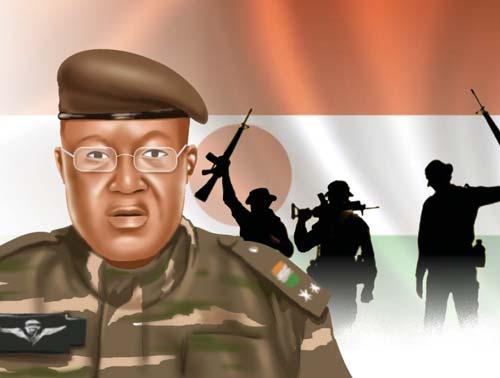
It is noteworthy that the putsch in Niger Republic is coming on the heels of similar military coups in Burkina Faso, Mali, Guinea, Chad, and Sudan. Except perhaps in Sudan where the coup resulted from long standing internal political quarrels, deteriorating economic and security situation has become a standard excuse for the military takeover in these West African countries. The more frightening feature of these recent political disruptions is the recurrence of Jihadist insurgency in the Sahel and the instability that could easily be exploited by ambitious soldiers. This is what should concern authorities within the ECOWAS now being led by Nigeria’s President Bola Tinubu.
For us in Nigeria, the embarrassing development in the neighbouring Niger Republic should send a signal. The Nigerian condition is not different from that of Niger, Mali, Guinea, Chad, and Burkina Faso, where insurgencies have caused severe economic hardship by constricting agricultural land space and forcing population movements and severe humanitarian crises. These have been exacerbated by climate change and the southward expansion of the Sahara Desert. Perhaps a more disturbing feature of the recent coups is that in most African countries, democracy remains so fragile that military opportunists seize power.
In Niamey, for instance, there were jubilant crowds on the streets in support of the coup.
SUNDAY NEWSPAPER
EDITOR DAVIDSON IRIEKPEN
DEPUTY EDITORS FESTUS AKANBI, EJIOFOR ALIKE MANAGING DIRECTOR ENIOLA BELLO DEPUTY MANAGING DIRECTOR ISRAEL IWEGBU CHAIRMAN EDITORIAL BOARD OLUSEGUN ADENIYI EDITOR NATION’S CAPITAL IYOBOSA UWUGIAREN THE OMBUDSMAN KAYODE KOMOLAFE
THISDAY NEWSPAPERS LIMITED
EDITOR-IN-CHIEF/CHAIRMAN NDUKA OBAIGBENA GROUP EXECUTIVE DIRECTORS ENIOLA BELLO, KAYODE KOMOLAFE, ISRAEL IWEGBU, EMMANUEL EFENI
DIVISIONAL DIRECTORS SHAKA MOMODU, PETER IWEGBU, ANTHONY OGEDENGBE
DEPUTY DIVISIONAL DIRECTOR OJOGUN VICTOR DANBOYI
SNR. ASSOCIATE DIRECTOR ERIC OJEH ASSOCIATE DIRECTOR PATRICK EIMIUHI CONTROLLERS ABIMBOLA TAIWO, UCHENNA DIBIAGWU, NDUKA MOSERI DIRECTOR, PRINTING PRODUCTION CHUKS ONWUDINJO
TO SEND EMAIL: first name.surname@thisdaylive.com
Letters to the Editor

Some attacked the headquarters of the ousted burning cars outside. Hundreds of people also gathered outside the National Assembly with some waving signs saying: “Down with France” and “Foreign bases out”. It is recalled that the crowds which trooped out in Ouagadougou to welcome the coupists in Burkina denouncing France.
We do not know whether any foreign interest was involved in the Niger coup but as we stated Wagner Group in Africa remains a threat to fragile democracies. This is why authorities in our country must pay attention to what is happening in neighbouring countries. With violent banditry in the Northwest ending insurgency in the Northeast, the federal government must be very concerned about these recent coup destinations, especially at a period we are involving the military extensively and for too long in internal security operations. We must guard against the mistakes of commission that could tempt dark thoughts from an ugly past.
ECOWAS now under the chairmanship of President Tinubu is even more severely tasked by diplomatic sanctions has become routine. The international community must maintain the out of power with a combination of economic
Following his election as ECOWAS chairman two weeks ago, Tinubu urged his colleagues to “stand coup after coup in West Africa again. Democracy government.” Today in Abuja, he will host a special meeting of the regional leaders.
As they seek a solution to the logjam in Niger, what President Tinubu and other leaders within the subregion must understand is that even the very unity and integrity of ECOWAS is threatened by these rampant coups.
Letters in response to specific publications in THISDAY should be brief(150-200 words) and straight to the point. Interested readers may send such letters along with their contact details to opinion@thisdaylive.com. We also welcome comments and opinions on topical local, national and international issues provided they are well-written and should also not be longer than (950- 1000 words). They should be sent to opinion@thisdaylive. com along with the email address and phone numbers of the writer
LETTERS
WAGNER GROUP AND COUPS IN WEST AFRICA
The recent military coup in Niger Republic is a threat to Nigerian democracy. The political landscape in the Sahel started changing dramatically in 2020 with the return of the military. It took a dramatic turn in Chad with the death of President Idris Derby in combat, followed by the takeover of his son in April 2021. In August 2020, Assimi Goitre carried out the first phase of a coup in Mali. The Guinea regime fell to the military in September 2021 and a coup took place in Burkina Faso in September 2022. Niger Republic coup is the seventh in West Africa in less than three years. Niger Republic is strategic in the fight against jihadists in the Sahel. Wagner Group is now influencing military coups in Africa. Wagner’s role in Africa poses a severe threat to the security and stability of African states as well as the strategic interests of the United States and allied nations. Nigerien coup is a threat to Nigerian democracy because of the closeness of Niger to Nigeria.
In West Africa, fragile democratic governments are being systematically overthrown by ambitious military adventurists
through the influence of Wagner Group. The military in countries that have witnessed coup in Africa are exploiting the mineral resources with Wagner Group. In quick succession, Mali, Guinea, Burkina Faso and Chad have all recently witnessed coups. In each case, the justifications by coup makers have included the bad handling of jihadist insurgency and terrorist pressure by elected governments. As the driving force behind Russian expansion, the mercenary company led by Yevgeny Prigozhin actively supports authoritarian regimes in efforts to secure their political survival, while exploiting natural resources. Wagner group plays destabilizing role
Senegal to Sudan. The group has had a mixed record in these operations. While maintaining a low profile in Mali, it has been more visible in the Central African Republic. Its presence is expected in Burkina Faso, but has been reduced in Libya and Syria. The group is known for its opportunistic approach and closely follows the interests of
Russian diplomacy. It entered Serbia quickly but left just as fast, showcasing its adaptability to changing circumstances.
The Wagner Group has established operations in several African countries, where many of its operations focus on security issues. It has often provided security services and paramilitary assistance and launched disinformation campaigns for troubled regimes in exchange for resource concessions and diplomatic support. Wagner is most active in the Central African Republic (CAR), Libya, Mali, and Sudan, all of which have a tenuous relationship with the West due to colonial legacies and inherent political differences.
military force, has in recent years become one of Russia’s most influential foreign policy tools. It has played a significant role in the battlefields of Syria and Ukraine and, recently, has worked to expand its footprint in Africa.
In the Central African Republic, for example, government troops in the ongoing civil war, according to the Russian ambassador. In Libya,
up to 1,200 Wagner mercenaries are believed to be fighting on the side of rebel leader Khalifa military junta has also brought hundreds of Wagner fighters into the country. There, they have been accused of committing serious human rights violations.
But the Wagner Group’s presence in Africa extends much further, experts say. “Wagner itself has developed over time as an organization that’s gone from being a purely private military contracting entity into a multiplicity of business alliances and relations, and a network of companies. Some of them front companies across the countries in which they operate on the African continent,” Julian Rademeyer told DW recently at the Munich Security Conference. “It operates in this legal gray zone between illicit activities and more legal illicit activities. And it straddled those quite, quite effectively.”
Inwalomhe Donald, Dole-Kaina, Kebbi State
The international community must maintain the resolve to stifle the military junta in Niger Republic out of power with a combination of economic sanctions and political/diplomatic arm-twisting
SENATOR IBRAHIM OLORIEGBE A Physician-turned
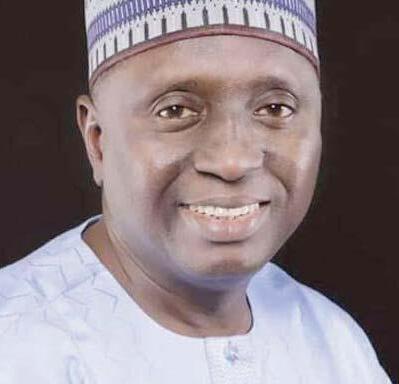
Politician
Armed with a personality of immense brilliance, Senator Ibrahim Oloriegbe strikes as a genius. From his groundbreaking academic laurels at secondary school, where he had seven distinctions, to his trailblazing career first as a medical doctor and later as a politician, the APC chieftain and immediate past Chairman Senate Committee on Health has continued to tilt his direction towards the path of excellence. In a rare encounter with Funke Olaode, the Kwara State-born politician shared his life chronicles from medical practice to politics
Politics is Service to the Nation; I’m Still Available to Serve When the Need Arises
will continue to strive until death. It is only after death you can say okay- you have done your own bit, and whatever you have achieved can now be assessed. Human life is an ongoing project. What I want to do is ongoing. I can’t say I have achieved everything I want to; it is not possible.
“Much has been achieved, starting from when I was at the house of assembly. I was able to do what I wanted to do. Then I left that and went back to my professional practice, and I was still serving in this country and outside this country. And then I came to the senate, but coming to senate, I did set up a certain agenda. To God be the glory, most of it has been accomplished. I give a lot of gratitude and thanks to Almighty God for granting me that favour.”
Commenting on the state of the healthcare system, he said the government needs to jack up the budget.
“In terms of resource allocation to health, yes, it is inadequate. Nigeria had committed in 2001 that it would contribute 15% of its budget to health. And I want to talk about the budget in Nigeria. Mind you, we should not be looking only at the federal budget. We should look at the 36 states, considering the capital budget. Because health is a concurrent issue, the state has responsibility; the federal has responsibility. So, both the federal and state have not been allocating that 15%, in which case we don’t have enough resources. The federal maximum they have done is 7%, and that was in 2006/07 or so. Currently, we are roving between 4.5%, 5% or 6%. Now, to what you are talking about, these resources are being allocated, I must tell you that.” Another problem he identified is inefficiency in the system.
“We have inefficiency in the system because there is duplication of effort here and there, and we don’t put resources where we should put them. One, the resources are not adequate and what we have is not being efficiently used. And of course, like any other sector in the country, there are challenges of wastage. That is why you have the condition we have now. There was a national para-healthcare emergency that was set up. And through that, the federal government is doing intervention, but this intervention has not been able to address the issue. The solution we are proposing is that there is a need for improved collaboration between the federal and state to get primary healthcare to function. I was privileged to be part of those that drafted the national health Act in 2004. As at that time, I wasn’t in the parliament then. And we tried to reinvest federal resources, to say 1% of the consolidated revenue fund of the federal government will be put into primary healthcare. The law was passed in 2014, and the implementation of that, which is in section 11 of that Act, started in 2018. But 1% of the federal government is very small. The maximum we have had from it is about 55 billion naira. That is a drop if you look at the quantum of what has to be done.
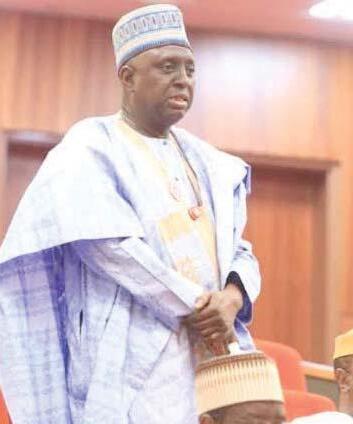
On the issues of brain drain within the system, he voiced his concern.
Oloriegbe
He walked briskly to catch up with his appointment. That day, he was a guest speaker at a roundtable media discussion on food fortification and implementation policy organised by an Abuja-based not-for-profit organisation at Sheraton Hotel, Ikeja, Lagos. Senator Ibrahim Oloriegbe, the immediate Senate Chairman Committee on Health, cuts the image of a contented yet self-assured man. From his groundbreaking academic laurels at secondary school, where he had seven distinctions, to his trailblazing career first as a medical doctor and later as a politician, the APC Chieftain and immediate Chairman Senate Committee on Health has continued to tilt his direction towards the path of excellence.
The inauguration of the 10th assembly was a few days away when my path crossed with the Kwara State-born medical doctor turned politician at the lobby of Sheraton. Unperturbed by the fact that he was ending his 9th Assembly in a matter of days, he said casually: “I have been a successful medical doctor before I became a politician. I will go back to practice. Politics is service to the nation; I am still available to serve when the need arises.”
Despite his achievements, Oloriegbe has maintained a simple disposition. “It is a reflection of who I am. So, I like being myself. In whatever position that I have found myself in, it is about service; it is not about myself, and it is not about showing off. Mind you,
I am a very vocal person. I speak out my views when necessary and when I have to speak. But when I speak, I speak from the perspective of the fact and the evidence and the intellectual perspective of the issue at hand.”
As a child, Oloriegbe was enrolled in Quranic School, where the ray of intellect shone. At age eight, he was a ‘small teacher’ teaching other students, having assimilated fast and covered five years of Quran 60 Chapters in a few months. He would later move to Alore Local Education Authority School, LEA School, for his primary education.
By the time he got to secondary school, Oloriegbe was exceptional, winning laurels and awards. At Ansar Islam Secondary School, Ilorin, Kwara, he was the best overall in the Mock Examination, having seven Distinctions out of eight subjects. “With modesty, I thank God for His grace. I was the overall best student in my secondary and won overall best awards. That was in 1979. At the end of my secondary school, I had distinctions in all the science subjects. My WAEC results remained unbroken in that school for three decades.”
With the best results in science subjects, Oloriegbe’s journey into tertiary education in search of career destiny was a rollercoaster. He wanted to study engineering. He encountered a mentor who was a director at the Power Holding Corporation of Nigeria (PHCN) who saw his excellent performance in science subjects and persuaded him to embrace
medicine.
“I listened to him while applying for medicine at Ahmadu Bello University, Zaria. And, of course, I had God’s grace and favour and privilege; despite the fact that it was very challenging and intensive, I had no challenge. I had distinctions in a couple of courses during my undergraduate days.”
Oloriegbe left ABU in 1985 and went for his housemanship, first in Ilorin and later in Kaduna. He would later move to Kano for the mandatory Youth Service and stayed in Kano for the next 10 years practising medicine. He joined partisan politics in 1996 and contested first in 1997 under the Abacha transition programme. He won, but Abacha died, and the program was cancelled. The advent of democracy in 1999 ushered in new entrants into politics, and he joined the train. He would later win elections to the House of Assembly.
“I wanted to contest for the Senate in 2015, but my name wasn’t on the ballot. I only participated in the primary, and then the party decided that I should step down. I stepped down for the current governor and had to drop my ambition. In 2019, I was on the ballot in a different party this time around. And God granted my ambition, and I won.”
Enumerating his achievements since his foray into politics, Oloriegbe said politics is about service.
“Well, to God be the glory, much has been achieved, but as human beings, one
“I am worried just as many other stakeholders and Nigerians in the health sector. As you said, it is not only the sector that is affected by brain drain, but the health sector is particularly more affected because of global issues. There is a global shortage of health workers not only in developing countries but both the developed countries because production is short.
“But in our own situation, we are not producing enough. And with the little we are producing, we are losing much more than we are producing. Of course, it is a source of worry for everybody, and it means it requires a lot of action. The proposed actions that we are looking at are one, we have to increase our production. No matter what you do, you cannot stop people from migrating or moving; it is a fundamental right. But then you need to retain what you have more, and to retain more, there are many issues. We have to find out why people are going. One of the basic fundamental reasons why they leave is remuneration. They should be well enumerated.”
For him, there is so much he could do after his senatorial role.
“Well, one, I am available for further service to the country. I belong to APC and I work for the APC in the administration that entered. I delivered my polling unit, my ward, and my local government for APC. I was part of the campaign for the president and even in my state. I am a professional; I was consulting in health before I went to the Senate. So, I have my professional consulting firm. But if the government provides me with a platform to serve, I will definitely take it up because it is all about service.”
HighLife
with KAYODE ALFRED 08116759807, E-mail: kayflex2@yahoo.com
...Amazing lifestyles of Nigeria’s rich and famous
Amazing World of Julian Osula, the King of Luxury, at 57
Many things can be said about the King of Luxury, Julian Osula. Everybody that pays attention to the goings-on in affluent circles knows that he is a contradiction of positions. He is very wealthy but also very humble. He makes friends with all people but has strong personal ideals. In fact, the man is something of a legend. Thus, upon clocking 57, one can say that Osula’s prestige is at an all-time high.
Very few individuals have been able to accomplish what Osula has. For the average person, there is a strong division in society among those with goodwill towards the individual and those with bad
Runsewe’s Love for Nigeria
Words are only capsules for expressing intentions. At the end of the day, the actions that follow these capsules demonstrate their effectiveness and the genuineness of their intentions. With this rule as the measure of intentions, even the most obstinate critic of Olusegun Runsewe must agree that the love that the Director-General of the National Council of Arts and Culture (NCAC) has for Nigeria is pure and true.
Runsewe is likely the most outspoken patriot in the country. Even before taking up the duties of the NCAC DG, Runsewe’s sheer passion for all things Nigeria was recognized by his countrymen. This is why he has been so successful in calling Nigerians to unity as many people know that he wants what is best for the country.
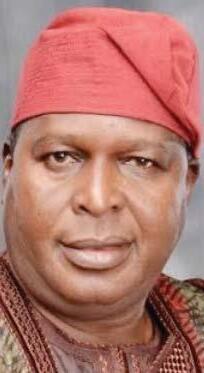
The most recent effort of Runsewe at his grand goal of internal unification and external effectiveness is the ‘Putting Nigeria First’ event that was held on Wednesday, July 19, 2023, at the Kapital Club in Asokoro, Abuja. From the event, Runsewe capably drew out some of the most engaging challenges to Nigeria’s welfare and prospects.
Runsewe took his time to point out some of the urgent challenges to social conditions in the country. According to him, although these issues are deadly and can consume Nigeria and Nigerians, there is very little that unity cannot accomplish.
Runsewe went on to emphasise Nigeria’s prospects. According to him, when Nigerians look beyond their differences and band up, the country will reach a new height and its peers would only catch a shadow of its progress, wishing to reach the same height.
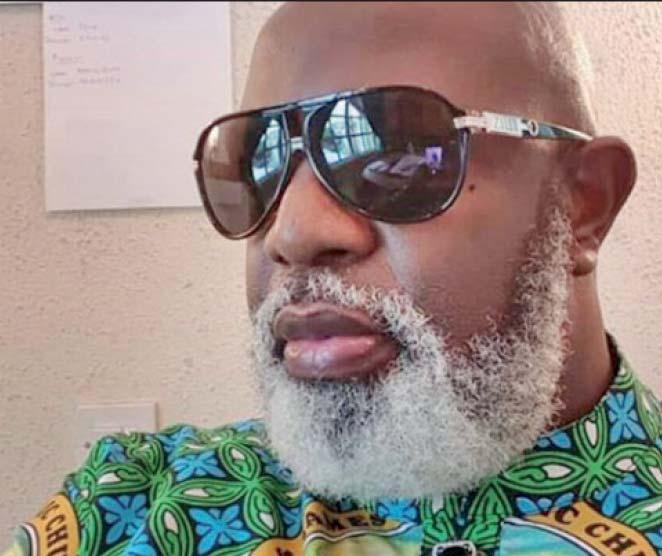
Runsewe said many other things, all of which touched the heart of his hearers. Given this alone, one can expect some changes in the years to come.
Igho Sanomi Serenades Mum at 80
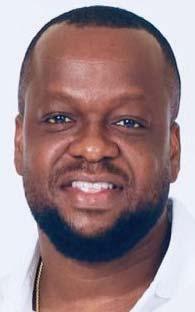
Good deeds or bad deeds, all deeds follow the doer and leave their fragrance or stench at the door of their generations. For the Sanomis, it is not strange to see good things following them, especially with the recent birthday of the 80-year-old matriarch, Chief Iyabode Sanomi as a reference. Indeed, one suddenly realises from where Igho Sanomi obtained his sense of right and goodness.
Where the average person might have expected the Sanomi matriarch to be tired from the accumulated years and unwilling to be present for the celebrations, those that knew her closely understood her best. She was visible for all the celebrations and helped people see why Sanomi is such a peculiar person.
Outside the beautiful appearance of the matriarch, one other distinct observation that people made was her closeness with her son. Igho is not a strange
face to the public, but there is some reservedness to him. No such reservedness was evident to onlookers during the celebration. There was only joy and delight.
During the birthday party, even with the sensational acts performed by 2Baba and Flavour, guests could not help their eyes straying to the table occupied by the Sanomis. Such a tight-knit family was borne through the efforts of the grand matriarch and her late husband, Dickens Sanomi. Although it has been over two decades since he left, the family has only grown closer and more influential.
Of course, with a son like Igho, none of this is out of place. Even so, onlookers can only admit that Igho’s sensitivity to the suffering of others, which birthed his philanthropic spirit and has become the hallmark of the Sanomi name, came from his mother. Thus, his grand celebration of her 80th birthday is completely justified.
intentions. This logic does not appeal to Osula. Although he has many critics, everybody likes him.
Different explanations have been given for how Osula is able to get along with everybody. One explanation is that his easy-going nature forces even his rivals to acknowledge his charm. After all, only a devil would slap a smiling face. Another explanation is Osula’s success at business, something that can be described as phenomenal and unprecedented in the luxury accessories industry.
Without a doubt, Osula’s easy-going personality is one reason he has been able to reach the peak of his industry. But, it is his wisdom that distinguishes him among his peers.
Joy of a Parent as Senator Ashafa’s Son is Set to Marry
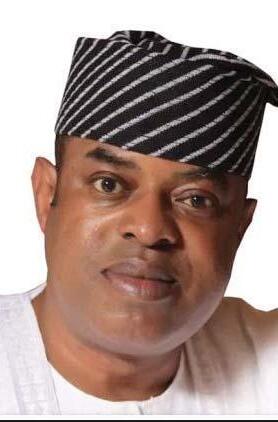
Matrimony is one of the great blessings available to only humanity. Much joy accompanies this blessing, and the family of Senator Gbenga Ashafa is ready to welcome this joy. As the preparations for the wedding of his son reach an all-time high, the good MD/ CEO of the Federal Housing Authority of Nigeria (FHA) has much to keep him occupied.
The Ashafas recently announced that their son, Tobi is prepared to tie the knot with his sweetheart, Yinka Belo. As his mother, Mrs. Folashade Ashafa, has very likely trained him to recognise jewels, Tobi’s choice has gladdened the hearts of his parents and they are calling on all their friends to come and witness the wedding.
Those familiar with the family of Senator Ashafa know that there is little lacking in their approach to life. The patriarch has done right by the Nigerian government with his work at FHA. So brilliant has he been that the mere
announcement of the wedding of his son has caused its own kind of ‘go-slow’ among the most influential circles in the country.
According to the announcement, Tobi and his beloved, Yinka, will officially become man and wife on Saturday, August 5, 2023. The event is scheduled to be held at Harbour Point Event Center in Victoria Island, Lagos.
Although Tobi is not as high-profile as his parents or brother, Basheer Tosin Ashafa, he is every bit an Ashafa. A graduate with a Law degree from George Washington University, USA, Tobi has a Master’s degree with a special concentration on counter-terrorism.
Modest, the wedding has once again exposed Tobi. It has shown him to be a true son of his father and mother as he has chosen for himself a good wife. After all, the love story of Senator Ashafa and Lady Folashade is known everywhere in Nigeria.
No More War between Akpabio and Yari
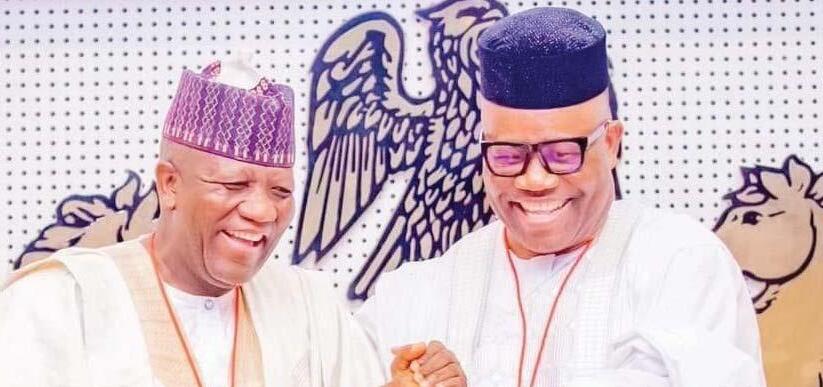
some reservations regarding Akpabio’s victory. But all such reservations have vanished. According to the most recent happenings, Yari has accepted Akpabio’s leadership wholeheartedly. Furthermore, he looks forward to contributing to Akpabio’s senatorial era.
Yari made his declaration during the book launch and 60th birthday celebration of Senate Majority Leader, Opeyemi Bamidele. According to him, Akpabio’s achievements so far have given every senator of the 10th Assembly enough reason to be proud.
Mrs Joshua
Effective leadership is not a quality that just anybody can possess. But Senate President Godswill Akpabio has proved that he is not anybody. Ever since taking up the leading role in the 10th National Assembly, Akpabio has renewed hope in the hearts of allies and rivals, including Senator Abdulaziz Yari.
To the individuals who have been paying close attention to matters of the 10th National Assembly, Akpabio has been doing well. Despite the early opposition he
Life is a moving train with chance encounters and moments. For Sule Lamido, former governor of Jigawa State, the train has moved into a sunny valley. With recent developments spearheaded by the Court of Appeal, Lamido has many more reasons to smile than he did before.
The Court of Appeal in Abuja has dropped the gavel on the matter of Lamido and the Economic and Financial Crimes Commission (EFCC). Finally putting the issue to rest, the EFCC no longer has the right to point accusing fingers at the former governor.
The Court of Appeal finalised and announced its judgement on Tuesday, July 25. According to Justice Adamu Waziri, the court that initially covered the case did not have the needed jurisdiction to do so. Thus, the case is resolved, thrown out of the window with the expectations of those that wanted to see Lamido and his son, Mustapha Sule Lamido, rotting in prison.
Based on the reactions of Lamido
faced from members of his political party and others, Akpabio appears to have adjusted to the demands of his office. More than that, his performance has convinced all and sundry that he has everybody’s best interests at heart.
The greatest astonishment around how many senators have accepted Akpabio’s leadership comes from Senator Yari. Anybody who followed the elections that led up to Akpabio becoming Senate President knows that Yari was his strongest rival for the seat. Also, immediately after, Yari appeared to hold
Yari described Akpabio as someone with a listening ear, someone with a firm grasp of what it means to be a genuine leader and has demonstrated this understanding with his actions. With the backing of President Bola Tinubu, Yari believes that Akpabio will help bring Nigeria to the next level.
Thus, it is clear that the trouble that once brewed in the 10th National Assembly due to Akpabio’s emergence as Senate President has been settled. With even Yari as a willing and loyal member of the Senate, Akpabio is likely to surpass his predecessors in how much power he would wield and the positive impacts he will make.
For Sule Lamido, It’s Time to Breathe
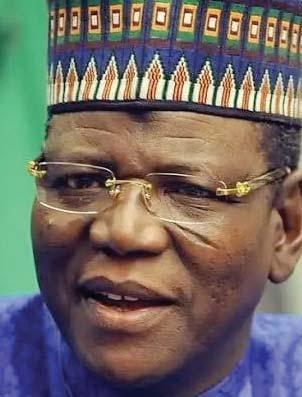
to the judgement, it is clear that the case has been a thorn in his side all these eight years that it was in court. With Lamido free, one can expect him to lay low for the next few years, especially since it is not his party, the Peoples Democratic Party (PDP), that is calling the shots in Jigawa or Nigeria.
In 2015, the EFCC sued Lamido, alleging that the former governor and his sons had laundered N712 million. After many ups and downs, Lamido and the others had a case opened before the court despite their efforts to get the case dismissed. So, they appealed the ruling of the Federal Higher Court, Maitama, Abuja.
So, it is a new day for Lamido and his sons. Although one does not know if the EFCC would give up, at least, Lamido can now prepare against such allegations that he embezzled state funds.
Tunde Ayeni’s Wife, Biola, Reveals How She
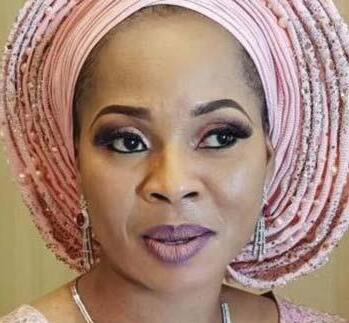
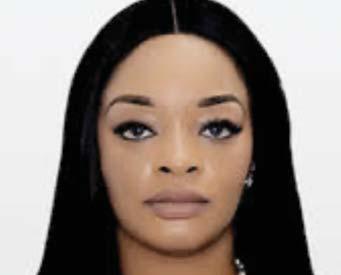
Handled Adaobi Alagwu’s Threat to Her Marriage
She is hardly seen and rarely heard. Yet, Abiola is the fundamental force behind some of the savoury successes of the billionaire businessman, lawyer, and former chairman of the defunct Skye Bank, Olatunde Ayeni. When Ayeni, the popular businessman, is junketing the world, closing deals, and breaking new grounds, Abiola, the irrepressible nexus holding their close-knit family together, is with the kids wherever their education takes them, and praying for her husband’s success and safety.
Being married to one of Nigeria’s wealthiest men comes with a lot of perks and attention; the envy of friends and associates who would give a limb to swap places with you for one day; the cynosure of eyes at all gatherings; luxury vacations in the world’s most scenic destinations; private jet travels; luxury shopping at the ritziest fashion capitals; servants at your beck and call and a whole lot more.
However, Abiola is no trophy wife; she met Tunde at the Law School but she stopped practising law to concentrate on taking care of the family. So, beyond the facade and fame of billionaire Tunde, she knows her husband more than anybody else. Hence, she stated without equivocation in a chat with THISDAY recently that regardless of what the media portrays him as; “A successful man is a target for people
Prophetess Evelyn Joshua Keeps Synagogue’s Legacy Alive
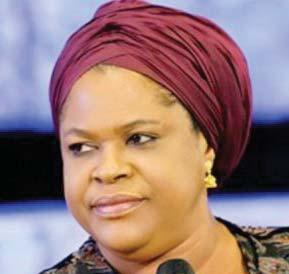
Legacies, what exactly are they? Some people would point to their children and others to their work. But whatever anybody wants to point to, it is evident that Prophetess Evelyn Joshua is furthering the legacy of her late husband, Temitope Balogun (TB) Joshua. With her at the helm of affairs, the ministry of TB Joshua remains strong.
The Synagogue, Church of All Nations (SCOAN) is still a burning and shining light in these dark times. According to reports, the ministry founded by TB Joshua has only grown strong since the departure of its founder. But the only reason for the still-growing strength of the ministry is the work of its current leader, Prophetess Evelyn.
Those who have followed the SCOAN story know that Prophetess Evelyn has been there since the beginning. It is said that her support is one of the reasons her late husband did not publicise any plans to choose successors after his death. Apparently, he trusted his wife enough to take care of the ministry on his behalf. And she has.
According to reports, Prophetess Evelyn has been hard at work since taking over the role of the leader of the ministry. Although there was a brief period of stagnation and some tussle for power, she eventually came out on top and has done nothing outside of advancing the goals of the ministry.
The most recent mark of her presence was the new branch of SCOAN that she opened in Ondo State. So remarkable was this achievement that it won the thumbs-up of the state governor, Rotimi Akeredolu. More than that, the new SCOAN branch is proof that Prophetess Evelyn has as much intention to spread the Synagogue message everywhere as her husband did in his lifetime.
that the child does not belong to my husband. She just wants to disgrace herself. She is just a gold digger. That girl is a child. When a child who knows where her mates are could not find any of them to date; she is gold-digging.”
to say all manner of things. That is when you need to know who you are married to. Some publications come out and people will start calling frantically but I tell them, I am fine. I don’t listen to hearsay because I have my husband beside me. When I need to clarify things, I take it up with him. We don’t hide anything from each other. He knows I will stand by him any day so whatever anybody says, I know my husband. He is a good-natured person, he has a good heart, he is loyal, and he will go to any length for anyone.”
She discountenanced the allegations and rumours of Tunde’s alleged dalliances with several women, saying that to be married to such a successful man, “You just have to trust God concerning him because there are so many distractions and challenges out there.”
She also rubbished the allegations of Adaobi Alagwu, an Abuja-based lady who claims that Tunde is the father of her child.
According to Abiola, “As regards the one Adaobi Alagwu, alleging that my husband is the father of her child, how old is the baby? She is just a gold digger. When you even look at the age gap, it becomes an insult. From where to where? I just dismissed the report because as far as I am concerned, it is not something that I want to believe or dwell on.”
Abiola said further that Adaobi is an impostor, because, “my husband is not a flirt. She knows what she did but I am 110% sure
She added, “She knows what she did and how she arranged whatever she said. But I am 100% sure that the baby is not my husband’s own. The allegation has in no way affected my marriage or my home. No impostor can break into my home. My husband is not missing. I received some anonymous texts at the inception of this rubbish and I told the person, “Listen to me, my home is not shaking. My home cannot be broken into because it is standing firmly on the rock of Christ. If you open your eyes, you will see a wall of fire around my home. No one can penetrate.”
The brain behind Divine Endowments Limited, one of the fastest-growing fashion houses in Nigeria, with the mission to deliver fitting at its very best in bespoke and ready-towear garments, Abiola has mastered the art of channelling the negativities that come with her husband’s prestige and prominence into carving a niche for herself in the fashion industry.
Established in 1998, Divine Endowments has since its inception, constantly narrowed the wide gap between foreign and locally-made garments through their pattern-making and styling techniques. Their design skills distinguish them in the local fashion industry, making them a foremost fashion brand in Africa. Their apparel is produced with a keen eye on fashion trends, always keeping the design trendy yet drawing from the experience of their rich heritage, and using African print fabrics to create modern designs and styles to suit people of different shapes and sizes.
Godwin Emefiele on Calvary Cross
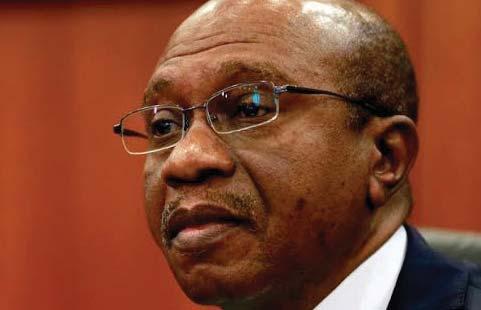
I watched in utter shock as the DSS and NCoS officials actually went into a brawl during the last arraignment of the suspended CBN Governor, Mr. Godwin Emefiele. When I partially recovered from that shock, I wrote something on WhatsApp which went viral and received a lot of positive feedback.
This was what I wrote: “I have watched the thorough humiliation of a sitting but suspended CBN Governor by authorities who are hell-bent on getting a pound of flesh.
I wonder why we cannot treat our people with dignity. Even if Emefiele embarked on a pogrom on the scale of the Cambodian massacre, he still deserves to be treated with much more decorum and respect as a human being.
Fighting and struggling to re-arrest him despite a court order seems to be the norm in this our own variant of democracy.
Until Emefiele is charged with a more gracious offence, all we have to work with is this gun possession thing, which in my barely literate estimation remains bailable.
It is too early in the administration of Mr. Tinubu to regale us with this kind of drama, especially if we look at his credentials as a fighter for democracy during the June 12 imbroglio.
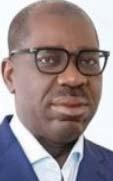
Today, gave me another reason to be ashamed of being a citizen of this great but severely hobbled nation.”
Nothing to add again, I have lost my appetite. Na wa.
I had failed to congratulate this erudite Nigerian on his recent emergence as the Chairman of the NGX Board. For those of you that do not know, the NGX is the holding company that runs the premier stock exchange in Nigeria. If you have been following me very religiously, you would have been inundated with my pains as to the continuous drifting of the place. You see, the stock exchange is a strong barometer of economic growth in any economy. It is also seen as a very strong engine of economic growth.
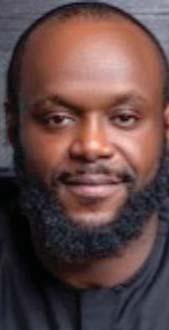
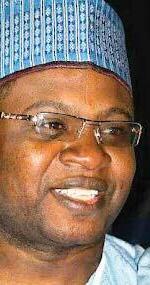
Anyway, our own has been hobbling. Hobbled by a very lax regulatory environment, it waddled around in the sea of incompetence, losing its prime positioning to its rival FMDQ(don’t hail those ones yet o). Recently, something happened. A new Board was inaugurated and
Kwairanga emerged as chairman to halt the drift. I was invited to the inaugural AGM where I watched him express a very clear vision of how things will move in the Exchange going forward.
Incidentally, I have not attended an AGM for a long while, decades even, but the comedic atmosphere that used to pervade them still does. The Ankara-wearing “kobo kobo” shareholders that would come for the corporate gifts and coca cola were still in attendance and in full force. The way they used to analyse financial statements and ask questions ehnnnn, you will fear. Anyway, a new Board was announced and instantly, they went to work. Committees were set up and a week later, history was made. An interim dividend was announced. Something that has never happened since the bourse was demutualised years ago. Magic o and the market erupted with so much gusto that we here in Shomolu heard and felt the cries of relief from harassed shareholders.
Here are my huge congratulations to Kwairanga who is emerging as a new boardroom titan and his new board which comprises my brothers, Nonso Okpala and Mohammed Garuba. Let’s sustain this renewed vigour, for the market and the country.
GODSWILL AKPABIO: SENATORS BEHAVING VERY BADLY
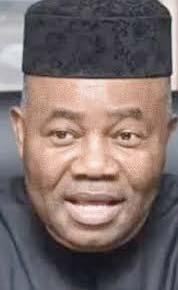
Barring any editing or the usual social media magic with clips, the clip of the Senate President responding to a parlous motion by a sitting Senator Musa in which he had prayed that we should “let the poor breathe” is in bad taste and highly inappropriate considering the circumstances this new administration has thrown many Nigerians into. This clip shows a great lack of concern, a derogatory look at the current terrible economic situation that has thrown millions into a fresh round of poverty. Truly, the poor can no longer breathe. We have been reduced in just two months to a country of trekkers with fuel prices hitting the roof and
the currency falling like a pack of cards daily, leading to job losses and an inflationary rate that we could only have imagined just one year ago.
The Senate, headed by my countryman, only responded with this gut-wrenching and disgraceful motion which led to raucous laughter in the chambers.
Like I said, I will give them the benefit of the doubt that there could be a strong possibility that the clip which we have seen, may have been edited to achieve this disgraceful behaviour and as such, I will not really push hard at Mr. Akpabio and his colleagues.
But if we are to look at their pedigree especially the news that they seek a N70 billion furniture allowance in this terrible economic situation, then we cannot put it past them that they could simply
be laughing at us for not having the guile to throw them out of that place with immediate effect and automatic alacrity like Chief Eleyinmi would say.
GODWIN OBASEKI: INSIDE THE FLOOD WE STAND
I have never seen a governor with the worst media team in this my life. It is either they are pursuing him on the street of New York, heckling him and calling him names or he is being shown in pictures like those “aje butter” we used to just bully for the fun of it in school those days. During the week, a devastating video clip of His Excellency purportedly stuck in a muddy flood somewhere in his state emerged. The clip complete with commentary by his kinsmen showed some big gubernatorial convoy stuck in very terrible flood waters with the people jeering and yabbing that, “shebi you refuse to repair the road, we go all collect.”
I did not see Governor Obaseki so I cannot say for sure that it was his convoy or that he was even in the car, but the imagery of it all was so powerful that it hit his already poor public standing like a tsunami. Poor roads, flood, wobbly cars, poverty-stricken people with pants rolled up wading through roads, and flood waters that are government incompetence all juxtaposed with the gleaming luxury four wheels that are also luxury that ensconces our leaders. This is Obaseki’s imagery. This is what we will remember him by. An incompetence that is laced with an annoyingly nauseating standoffish outlook. Make I just no talk too much.
SEYI TINUBU AS GUARANTOR-INCHIEF
The gross insensitivity of the government to the ongoing pains we are suffering as a result of their policy is nauseating. All we have heard, though informally, is that “it will take between one year to four years for the benefits of these policies to start showing.” If in two months, Naira has crashed by over 600%, inflation has crossed the 22% mark and fuel is approaching the N1,000 mark, then you can imagine where we would be in one-year, talk less of four.
It is no wonder that names like Venezuela and Zimbabwe are beginning to be silently whispered beside Nigeria in some very critical circles. Well, we need not bother. The First Son to the Commander-in-Chief has sent in his guarantees. He has assured us in a footage complete with his ceremonial uniform – black cap, black kaftan and black slippers - that all will be well. He had said in the footage that I have seen and monitored from Shomolu that, “I guaran tee you that President Asiwaju Bola Tinubu, will not fail.”
My people, please take this guarantee to the nearest filling station and show them and see if they will give you fuel or show your doctor so that he can treat your kwashiorkor and malnourished children and see.
Guarantee ko, guarantee ni.
ROTIMI AKEREDOLU: GET WELL IN PEACE
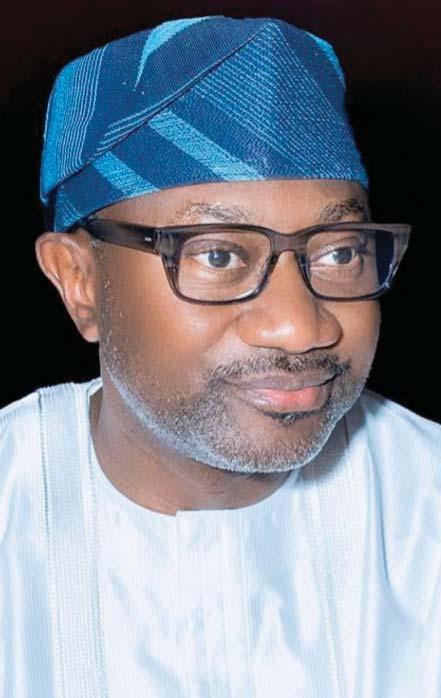
Did you guys see that clip? He was dressed in white and sat in what looked like a wheelchair. He raised his arm in an obvious struggle to show good health. The young man beside him was wishing him a happy birthday and another one showed his
FEMI OTEDOLA, IT’S ABOUT TIME
I have refrained from commenting on the current storm going on within FBN Holdings, the holding company of First Bank of Nigeria Limited, one of my favourite banks. I have uncharacteristically held back because of the sensitive nature of my relationship with very strategic people in the system. But the news of Mr. Otedola’s proposed appointment to the Board as a non-Executive Director hit with a sound thud in the guts. You see that bank has been under the grip of Nebuchadnezzar for some time now. There was a time when you gauge the health of the nation’s financial system with that of First Bank. Today, the place is like….. make I no talk. Kai, I no free to write my mind
for this matter oooooo. Which kind wahala be this? Let me just say that, I am very happy that Mr. Otedola has finally jumped into the fray because what we are seeing with this King Herod or should I say Pharaoh is not the one that we will be investing in and be jumping on cruise boats and licking Italian ice cream and waiting for magic to happen. Mr. Otedola, we will need a very hands-on approach on this one. The integrity and the financial sanctity of this great Nigerian institution must be maintained and the needed experience and weight at the board level is very much required if we are to have any hope of stabilising this weakened giant. Make I just keep quiet for now.
wife also in the same mood. What was constant in both clips was his very frail health. The man is not well, simple. And why we continue to do these things beats me. I am not a doctor and as such cannot diagnose a boil from a bad case of STD talk less of giving a diagnosis from this video, but what is very clear here is the fact that Baba is very very ill and needs to concentrate on his health and leave all this “yama yama” around him alone.
Reports have shown that he is really ill and he has done the right thing by transmitting po wer to his deputy until he comes back. Brilliant effort. They should now just leave him alone to focus on the mortal fight for his health instead of dragging him out in an all-white ensemble resembling Morgan Freeman in one of those his movies in a failed attempt at showing a speedy recovery and in a morbid and embarrassing attempt at sending a strong signal, that we are on the way back. Mbok, let Baba be. What he needs now is excellent medical care and our prayers. He should forget Ondo state for now, the state will be ok. It’s not a problem, the state will be ok. Baba just concentrate and fight for your health. My honest advice. Thank you.
ATIKU ABUBAKAR, HEAVEN CAN WAIT
My brother, heaven can wait o. Nothing will happen if this court case goes against Emilokan. All that talks about anarchy is the usual “owambe shakara” that is meant to scare and make the people afraid.
If you sef had run a more serious campaign, maybe we would not be in this situation where we are praying for heaven not to fall. Shebi we were telling you that time. You saw Wike and you chose that one that cannot even shout at his housemaid. Shebi you saw five governors leaving and you were there standing behind one party chairman who cannot even win a vote in his backyard. You saw Obi’s strength and you cannot do everything within your powers to harness it.
You just do like “JJC politician” that time and now we are here praying that heaven should not fall. This is the dilemma we find ourselves in this country with all these- ring- a- ringa- roses politicians who never do the right things at the right time. Anyway, we are here awaiting the ruling. Me don buy umbrella in case rain fall on the day of judgement. Na wa.
MAKINDE ADENIRAN: A MAN ON FIRE
Let me just use this opportunity to send a shout-out to Mr. Makinde Adeniran the great Theatre director and art aficionado. For the last three decades, he has pursued his art, mentoring people, and growing the structure leading to his wellrecognised positioning in the space. Makinde has been directly involved in so many projects that have not only created jobs but impacted very succinctly in the space in particular and the economy in general, hence my shout-out to him this morning.
As we continue to build an art and culture space that will partner with the government in credible developmental initiatives, people like Makinde should continue to be heralded and encouraged in their pursuit of macro fulfilment.
Well done bro, and God bless.
PBAT’s ECOWAS Threats and the Failed Coup in Niger Republic: Facing the Situational Reality
The coup d’état in the Republic of Niger, Nigeria’s immediate northern neighbour with which Nigeria does not have border conflict but warmest relationships when compared with other immediate neighbours, came on the heels of President Bola Ahmed Tinubu’s (PBAT’s) statement on unconstitutional changes of government in Africa. PBAT made the statement in his capacity as the newly elected Chairman of the Authority of Heads of State and Government of the Economic Community of West African States (ECOWAS) on Sunday, 9th July, 2023 in Guinea Bissau. He succeeded President Umaro Embalo of Guinea Bissau at the 63rd Ordinary Session of the Authority.
PBAT made a number of significant points in his statement, one of which is relevant to the discussion of the military coup in Niamey. PBAT called for regional security and vehemently opposed unconstitutional changes of government especially in the ECOWAS region. As he put it and reported by The Street Journal,‘democracy and good governance remains the abiding cornerstone of peace and sustainable development. We must stand firm on democracy. There is no governance, freedom, and rule of law without democracy. We will not accept coup after coup in West Africa again. Democracy is very difficult to manage but it is the best form of government.’
More importantly, PBAT noted further that ‘there is no one here among us who did not campaign to be a leader. We didn’t give our soldiers resources. We didn’t invest in them, in their boots, in their training to violate the freedom of the people. To turn their guns against civil authorities is a violation of the principles upon which they were hired which is to defend the sovereignty of their nations. We must not sit in ECOWAS as toothless bulldogs.’
Without any jot of doubt, democracy has been the preferred form of government in political governance. However, how is democracy conducted and managed in such a way that it has not served as a good method of preventing coup-making? Why is it that many countries adopt democracy as their first choice and yet it is not well defended? More inquisitively, how do we explain PBAT’s position that the ECOWAS cannot afford the luxury of sitting as toothless bulldogs? PBAT says ‘we will not accept coup after coup.’Who are the ‘we’ that will not accept coup after coup? Is it the ECOWAS of governments or ECOWAS of people? If we consider the situational reality of political governance in the Republic of Niger, it can be gleaned that PBAT’s non-preparedness to accept coup after coup is at best a meaningless threat.
Dynamics of Coups d’État in Niger Republic
Niger Republic is a terra cognita for coup-making and coup d’état. The country has played host to more than eight successful and attempted coups over which much has not been said deliberately. Successful coups d’état took place in Niger in 1974, 1996, 1999, 2010, 2021, and most recently, in 2023. In the same vein, it is on record that, in August 1975, Major Sani Souna Sido attempted a coup against Seyni Kountché and was executed. This development prompted President Kountché to appoint a majority of civilians to his cabinet.
On 15 March, 1976 and 5 October 1983 there were also failed coups. Governments of the day often quickly suppressed the coups. What is noteworthy here is that Niger Republic is not yet seriously a country of democratic culture simply because democracy has not been allowed to grow. One endemic agent of coup d’état in Niger is the poor management of poverty in the country. As noted in 2019 by the World Bank, more than 40% of the people of Niger lived in extreme poverty. Under normal circumstance, poverty in itself should not be a good reason for engagement in coup-making. The truth, however, is that extreme poverty has remained a major dynamic of coup-making, especially in terms of political and ethnic calculations. For instance, Olayinka Ajala of the Leeds Beckett
University has it in his “Botched Coup in Niger Points to Deep Fissures in the Country,” on April 2, 2021 that ‘successive military governments in Niger have taken various steps to stifle discussion about ethnicity in a bid to prevent it from dominating the polity. But this has not stopped tensions. Smaller ethnic groups, such as the Tuareg, have as far as threatening to secede from the State… Ethnicity nonetheless remains a polarising issue in Niger.’ In other words, the tensions created have always impeded the development of democratic culture.
In fact, the first presidential elections in the country only took place in 1993, that is, 33 years after independence of the country in 1960. Additionally, the first municipal elections did not take place until 2007. Why? It is useful at this juncture to compare and contrast the causes of the first coup in 1974 and the dynamics of the latest coup in 2023 in order to underscore the point that many, if not most, of the coups d’état in Africa, are warranted by ethno-politics, nepotism, greediness, and bad governance of political leaders. Consequently, when military coupists oust incumbent governments, either elected or not, the people often came out to support the coupists. This was the situational reality in Niger Republic.
First, in 1974, it was the Republican Guard that was responsible for the ousting of President Hamani Diori, who is on record to have called on France to come to the
In this regard, will the coupists accept the supranational authority of the ECOWAS? Will Russia not support the coupists? The coup in Niger is not simply an issue between the Nigerien military or people. It is indirectly a cold war between Russia and the West. The West is likely to give active and sustainable support to President Bazouma as the considered most reliable ally of the West in the country. Protecting access to Niger’s uranium is another desideratum. More importantly, the West cannot but seek to prevent the Russianisation of Niger. Regardless of the coup attempt by the Wagner group in Russia, the group is likely to seek expansion of Russian influence in Niger. In fact, the forgiveness of Africa’s debts which run into twenty billions of dollars three days ago at the Russo-African summit in St. Petersburg is a pointer. This cannot but begin to impact on Africa’s strategic calculations. Consequently, Niger, being the considered friendliest neighbour of Nigeria, PBAT must carefully make haste slowly. If war breaks out in Niger, neither the ECOWAS nor the African Union will be able to handle it. Terrorism cannot but be heightened, Nigeria may play host to IDPs for whom there is currently no agenda. AntiPBAT sentiments will increase. The ultimate challenge for PBAT is to address how to stop and prevent presidential guards from arresting, detaining and compelling elected presidents from signing letters of resignation. Palace coup is the issue. It should be dealt with.
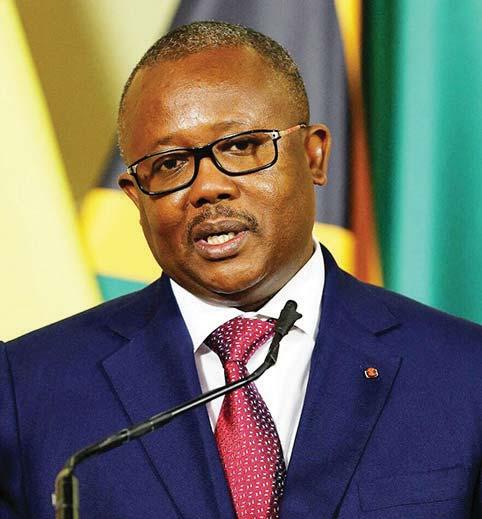
aid of Niger to avoid Nigeria’s mainmise of Niger Republic or Nigerian domination of Niger Republic. In other words, Hamani Diori was more favourably disposed towards France than to Nigeria, even though Nigeria and Niger are also on record to have put in place on 3rd March,1971 a bilateral Nigeria-Niger Joint Commission for Cooperation.
Secondly, the alleged and reported causes of the 1974 coup clearly showed very bad governance, especially in terms of governmental reaction to the Sahel drought of 1968-1972, as the critical dynamics. For instance, there was a general civil disorder as a result of public allegations that some government ministers were misappropriating stocks of food aid. President Hamani Diori was specifically accused of consolidating power ‘by limiting cabinet appointments to fellow Djerma, family members, and close friends. More disturbingly, Hamani Diori, in addition to being the President or Head of Government, also declared himself as Minister of Foreign and Defense Affairs.
Besides, the Nigérien Army kicked against being used for tax collection and other political activities. As told by Seyni Kountché, more than 3000 tons of grains were warehoused waiting for prices to rise. Kountché drew the attention of President Hamani Diori to it but he reportedly did nothing about it. This cannot but be another major rationale for the Seyni Kountché coup against Hamani Diori who was jailed until 1984 and remained under house arrest.
When Kountché took over power, he not only suspended the Constitution, dissolved the National Assembly, banned all political parties, released the political prisoners and put in place a Supreme Military Council on 17 April, 1974, but also came up with food policies that endeared him to the public. Kountché put in place a Consultative National Council for Development in replacement of the National Assembly. He established four grain distribution centres in Zinder, Maradi, Birni-N’Konni, and N’guigmi. He also made available important drought relief goods to the people. In fact, he not only pledged to honour Niger’s international agreements, but also distributed groundnuts to farmers for hunger relief and not for agriculture. As a result, a supposedly unconstitutional change of government was greeted with public endorsement. This was the situational reality of democracy in Niger in 1974.
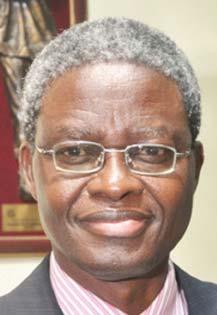
In the evening of July 26-27, 2023 Amadou Abdramane, an Airforce Colonel Major, announced on the State Television that President Mohammed Bazoum had been ousted and that a National Council for the Safeguard of the Homeland had been formed. Like in 1974, it was the Presidential Guards that originated the coup. Also like in 1974, state institutions and the country’s Constitution were suspended. Niger’s international borders have been closed. A curfew beginning from 10pm to 5.00 am local time was also imposed until further notice. And more interestingly, the coupists warned against any foreign intervention in the domestic affairs of the country.
Thus the Commander of the Presidential Guards had led a coup d’état against the incumbent president, Mohammed Bazoum. He was detained with his son, Salem, at the presidential palace by the National Council for the Safeguard of the Homeland. He was told to resign but he refused to. Like in 1974, President Bazoum enjoys a modicum of support from the military. Some loyalists from Niger’s Armed Forces surrounded the presidential palace in support of the incumbent President, Bazoum.
What is noteworthy here is that incumbent President Bazoum reportedly tweeted that lovers of democracy should ensure the protection of hard-won gains of democracy, while his Foreign Minister, Hassoumi Massoudou, advised the people of Niger to remain calm as the country’s ‘legal and legitimate power’ still remains with President Bazoum. Based on this, Foreign Minister Massoudou declared himself the Acting President of Niger Republic. But in reaction to this, the Army Chief of staff, General Abdou Sidikou Issa, declared support for the coup because of the need to ‘preserve the physical integrity’ of his family and avoid a deadly confrontation that could create a bloodbath and affect the security of the population.’
And perhaps more disturbingly, the junta accused France of violating the airspace closure after a military plane landed at an air base. Most disturbing has been the coup supporters flying Russian flags and voicing support for the Wagner Group and throwing rocks at the passing vehicles of politicians. It is against this background that African leaders are now compelled to engage in re-strategy.
PBAT and Situational Reality
The dynamics of coups d’état in Niger Republic since 1974 has been largely as a result of bad governance and power rivalry. Ethnic chauvinism and insensitivity to the impact of the 19681972 Drought in the Sahel and leadership style of President Hamani Diori were responsible for the 1974 coup. In 1996, the major causal factor for the coup was power rivalry. It should be recalled here that the first democratic presidential elections in Niger took place on 27 March, 1993 and Mr Mahamane Ousmane was elected President of Niger Republic. He won with 55.42% of the vote, thus defeating Mamadou Tandja, the leader of the National Movement for the Development of Society (MNSD), the main opposition party.
Read full article online - www.thisdaylive.com
ARTS & REVIEW ARTS & REVIEW
Artists Challenging Rigid Notions of Conformity
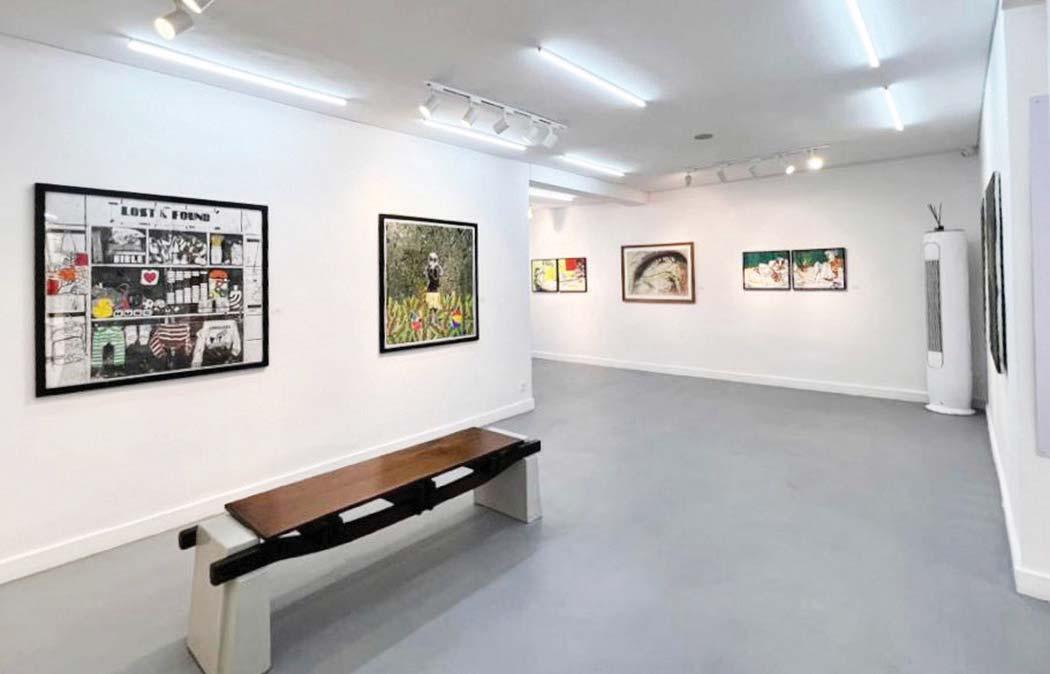
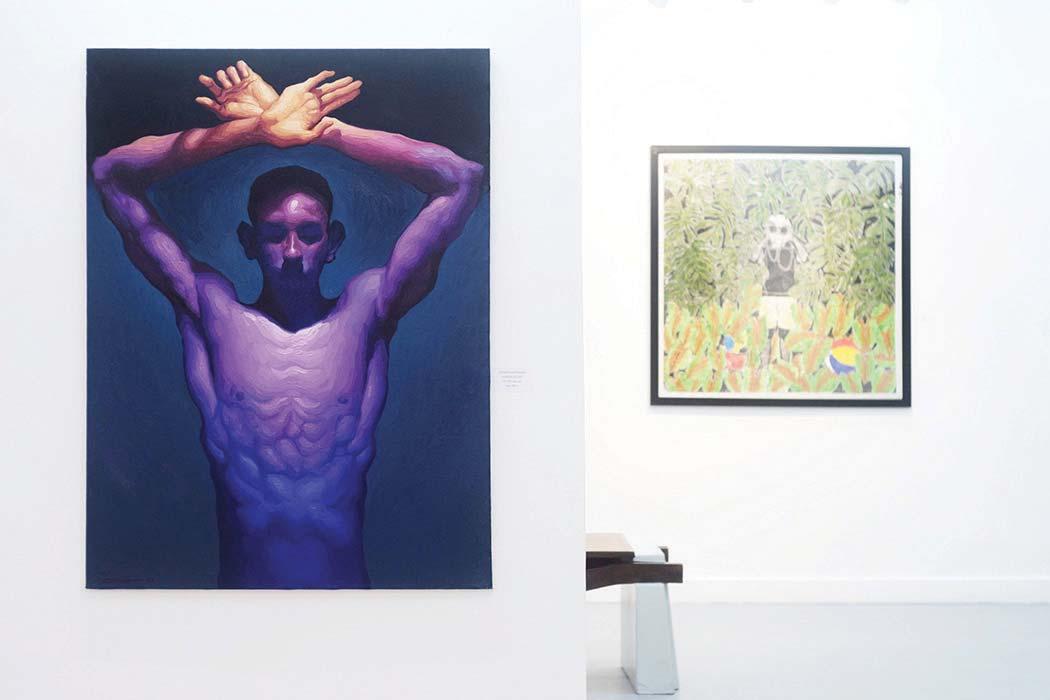
Perhaps one of the group exhibition Fluidity’s most noteworthy features is its curator’s conscious about issues bordering on human experience. This is why the inclusion of performances of original
it deepens the exhibition’s impact and adds a transcedental dimension to it. “These beautiful
seem to moult into deeper dimensions the more trajectories that hint at promising futures. ongoing exhibition atAMG Projects gallery along gaze to their idiosyncratic peculiarities. Starting hard not to attempt to draw parallels between of human anatomy and similar studies by the in the use of oil paint and watercolour appears masterful heights. Critics wax lyrical about which he uses to emphasise a dramatic sense from the noisy and chaotic external world and the Boundaries of Form and Embracing the and ideas of intimacy and fantasy through his hopscotch through emotional landscapes. He -
A close-up on some of the works at the exhibition
in this exhibition blur the boundaries between consciousness exists as a continuous awareness imagination mingle freely. Her appropriation of
supply chain and logistics management at
as portals to both her more personal recollections
-
reminds me of a language emanating from the-
because these paintings represent “a journey clarify: “Through personal and shared narrawhen our realities don’t align with societal
to express her personal experiences and intimate
okechukwu.uwaezuoke@thisdaylive.com
In a group exhibition in Lagos, five artists question ingrained assumptions and the generally accepted limits of certainty in their environment. Okechukwu Uwaezuoke reports
Nonsense Comes Calling Next Door
Nigeria’s immediate past president,MuhammadBukhara,has a tragic sense of humor. His unrelenting indifference to the condition of the humanity of his compatriots often came out in the things he decided to make important or ignore. One of them is his kinship attachment to Niger Republic. In the dying days of his presidency, he seized every opportunity to underline his difficulty in presiding over fellow Nigerians towards who he had an unmistakably condescending attitude. He either saw us as a bit more difficult to handle than the cattle in his Dura ranch.
At other times, he bragged that his retirement would be more peaceful in Niger Republic than in riotous Nigeria. His preference for Niger Republic was not just a passing fancy or the butt of casual jokes. It was grounded in real attachment backed by dollars. He spent billions of dollars of Nigerian money to fund development projects like rail lines, oil pipelines, refineries etc. in Niger Republic. He even gifted a fleet of luxury SUVs to the government over there, insisting that sometimes we need to love our neighbors more than ourselves if possible.
No one knows what will happen to Bukhara’s nostalgic longings for Niger now that his fellow soldiers have sacked his kinsman, president Bayou. In what has graduated into a full -scale military coup, the Nigerien military has arrested and put away the president, sacked the government, suspended the constitution and nullified all functions of the democratic state. The two-year old democratic government that enabled the government has therefore been replaced by a military dictatorship. The television footages that have featured the rebellious soldiers does not indicate a group that is likely to hurry off from power no matter what the rest of the world says. In fact, after announcing the new leader as a certain General Abdourahmane Tchiani, former Brigade of Presidential Guards commander who had obviously been eyeing his former boss’s lavish privileges. Bukhara is now left with pleading for the physical safety of his toppled kinsman. For now, no one can say what these rapacious soldiers will do if militarily challenged by the international community.
The military putsch in Niger is part of an apparent script that has been travelling all over the West African Sahel in recent times. Similar coups have occurred recently and in rapid succession in Mali, Guinea, Chad, Burkina Faso and, to some extent,Sudanwheretheclashingambitionsofrival generals and warlords has burst into an open civil war. Nearly all these regressions into autocratic rule are united by certain common factors.
The threat of jihadist terrorism and insurgency in the northernmost parts have created greater insecurity in all these countries. The national armies have been overwhelmed by jihadist insurgents and fighters. Climate change in the Sahel at large has created more desperate hunger, poverty and general economic distress in these agriculturally dependent countries. Economic pressure has translated into widespread unrest and urban protests. Protests have graduated into political unrest and dissatisfaction, making partisan democracy and its slovenly rituals untenable and unpopular. The existence of military establishments of ambitious and politicized officers has accelerated the recourse to coups.
The French who used to be the stabilizing influence and force all over French speaking West Africa have in recent times become unpopular and gone into a retreat mode given the political and economicburdenofcolonialerainfluencepeddling. The domestic social and economic situation in France have since made colonial era indulgences rather expensive and untenable. The security and economic vacuum has in many places been filled by the presence of Russian influence through the Wagner Group private military company which serves as the Kremlin’s external affairs enforcer and buccaneer business frontier force.
Taken together, these factors have combined to suddenly convert the West African region into the world’s next frontier of global confrontations and strategic instability. The development in Niger Republic has even more added significance. While the instability raged in the rest of French speaking West Africa, Niger served as the last outpost of residual Western influence and some stability in an area of trouble. The retreating French forces still have outposts with an estimated 1,500 troops
Tinubu
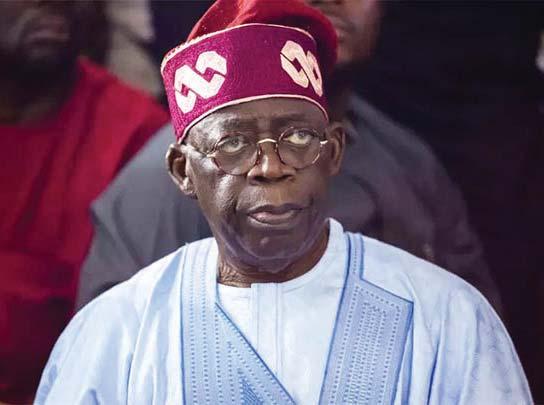
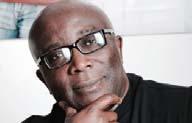
stationed in Niger Republic. The United States AFRICOM African outreach force has a little over 1000 troops stationed in Niger.
In addition, the US has a drone base in Niger as well as strategic air defense installations in that country to overlook the troubles in the rest of the Sahel and also Nigeria which, for political reasons, cannot host direct Western military presence. This reporter is aware that the US outposts in Niger serve as critical intel feeds to the Nigerian security forces in their anti terrorism drive. It also serves the Joint Task Force of Niger, Chad, Cameroun and NigeriawithtangentialextensiontoBeninRepublic. At the level of political values, the two -year old democratic government of Mr. Bayou represents, even if symbolically, the promise of democracy in an area directly confronted by Islamic jihadist terroristsandwidespreadfundamentalistrascality.
With the coup in Niger Republic, Nigeria is precariously exposed to the real forces of strategic instability in the region. Niger is our immediate northern neighbor with direct extensive land borders with Katsina and Zamfara states. Similarly, Chad, our neighbor to the troubled North East zone of Borno and Yobe states, is under a military dictatorship after the battlefield assassination of former president Idris Derby.
These two neighbours now under military dictatorship share borders withNigeria inanareaofclear and present insecurity. Zamfara state has literally been an ungoverned space with bandits traversing freely and operating in defiance of the elected former governor. They exert tributes, impose and collect levies from locals in return for permits to carry out farming activities. A cocktail of foreign rogue miners, official security personnel, local chieftains and bandit enforcers mostly with arms and personnel from across the porous borders make the state a hell hole of insecurity. Scouts of the Wagner Group have reportedly scoped the area for openings while earlier sending in feelers to the National Assembly in Abuja for an open invitation for mercenary intervention in Nigeria’s counter terrorism crusade. The same situation applies to Chad from where Boko Haram and ISWAP terrorists have tormented many local governments in Borno and Yobe States respectively while making frantic incursions into ungoverned spaces in the border areas linking Cameroun, Nigeria and Chad.
From a national security viewpoint, therefore, Nigeria’s northern frontiers are seriously compromised. The façade of democratic continuum
between Nigeria, Chad and Niger that used to dress up an umbrella of common interest and shared security has been fatally altered and punctured. Nigeria’s bulwark of regional security has shifted southwards to the expanded corridor stretching from Cameroun in the East to Benin Republic and Togo in the West. Together with these countries and the Atlantic seaboard covering the strategic Gulf of Guinea stretch, the stability of Nigeria and its survival as democracy and free market now depends. This security stretch can only survive through a strengthening of ties with key Western allies. For the avoidance of doubts, Chinese economic and strategic interest in Equatorial Guinea is real as evidenced in the recent commissioning of a major Chinese navel facility in that country. Similarly, Russian influence and interest through the Wagner Group of mercenaries all over West Africa is now self- evident. . There is therefore a real, credible and urgent national security threat to Nigeria in the developingpicture.The presence ofmilitarydictatorshipssharingcommonborders with us towards a troubled northern zone is a threat not just to our internal security but also to our democracy since influences travel easily across borders. The challenge for Nigeria in my view is both diplomatic and strategic in a national defense and security sense. Nigeria cannot expect its foreign relations and regional security posture to remain the same as before.
The global power context of West Africa is changing rapidly. The virtual departure of the French as a security stabilization partner and economic force in the region is a tectonic shift. The increasing shift of US security interest from the Middle East is important for the war against terrorism even in the Sahel. The more secure the US homeland becomes against terrorists attacks, its interests in global anti terrorist war will wane. How we handle the jihadist onslaught, the influence of Russia and the spread of military dictatorships around us should be the preoccupation of Nigeria’s foreign policy in the years ahead.
The coup in Niger Republic in particular indicates a tragic failure of intelligence and
foreign policy strategic thinking on Nigeria’s part. You cannot claim to be a great regional power if you are incapable of influencing developments in your immediate neighbourhood. Nigeria ought to be in a position to influence political and security developments in Niger, Chad and Benin. Given our sporadic border disquiet with Cameroun, we ought to be actively interested in political developments in that country as well. But tragically, Mr. Bukhara presided over Nigeria for eight years without a sentence being uttered by Abuja on Nigeria’s new foreign policy challenges let alone any indication of a strategy for engagement with neighbours on the most elementary international developments like climate change or cross border refugee movements.
Most importantly, at no time under either Jonathan or Bukhara was there any indication in our foreign policy body language that we were conscious of the implications of our democracy for political directions and developments in our immediate neighbourhood. We just drifted along, contentinthepatheticillusionthatforeignrelations and policy only means scrambling the presidential jet at short notice to attend every Boy Scout Movement conference everywhere in the world.
And yet, this is the same Nigeria that decisively intervened to alter, for good, the future histories of Liberia and Sierra Leone. When nations fail or decay, you can tell by what they helplessly allow to happen in their neighbourhood!
In the context of the coup in Niger Republic and whatitmeansforNigeria’sfutureexternalrelations, however,theTinubuadministrationcanstillmanage to cobble more serious engagement approach. The new president can use his present ceremonial garb as Chairman of ECOWAS to quickly engineer first a West Africa –wide multilateral coalition to compel the junta in Niger to set a deadline for a return to democracy. That could be the lead on to dismantling other despotisms in the region. But he and his colleagues will ultimately need to procure an African Union and United Nations mandatebackedbyreasonableforcetodiscourage further slide of the region into military authoritarianism. The upsurge of military dictatorships in West Africa needs to be communicated to the world as a dangerous international development which, if unchecked, could negatively affect the future history of the rest of Africa at a time when the world is faced with more urgent and serious economic and technological challenges.
IN THE ARENA
Judiciary: Is Democracy Under Threat?
Ahead of the judgment date by the Presidential Election Petitions Court, the sharp focus on the judiciary speaks to the weight of expectations for justice by both Nigerians and the international community, Louis Achi writes
The presidential candidate of the Peoples Democratic Party (PDP) in the February 25 presidential election, Atiku Abubakar, last week stirred the hornet’s nest when he raised the alarm over alleged plots to compromise the Nigeria’s judiciary processes ahead of the judgment of the Presidential Election Petition Court (PREPC) in Abuja.
Having filed their final addresses penultimate week at the court, the petitioners and the respondents have completed a critical phase in the tense judicial inquest on the February 25 presidential election.
To many, Atiku’s alarm was not unexpected. Penultimate week, a report had alleged that President Bola Tinubu had a telephone conversation with the Chief Justice of Nigeria (CJN), Justice Olukayode Ariwoola. But the Supreme Court vehemently denied the allegations.
Earlier in March, after Tinubu was declared winner of the presidential election and the opposition political parties were threatening to challenge the declaration in court, there was also an allegation that the CJN met with him in London on how to swing judgments in his favour.
An online platform had alleged that Justice Ariwoola disguised in a wheelchair in London in order to meet with Tinubu. But the Supreme Court’s spokesperson, Festus Akande, said there was no iota of truth in the report. He noted that the CJN accompanied by NJC’s Secretary, Ahmed Gambo, only travelled out of Nigeria briefly to London on March 18 for medical care, adding that before he travelled out, the CJN had notified the then President Muhammadu Buhari of the trip.
“On 23 March, the CJN returned from his medical trip to London and later reported in the office (in Abuja), where he worked till 8p.m. The CJN has been in Nigeria, and presided over meetings of the National Judicial Council (NJC) held on 16 and 17 March,” Akande reportedly said.
Penultimate week, there was another report that a member of the panel of the elections petitions court, Justice Boloukuoromo Moses Ugo, had resigned over alleged pressure on him to compromise the judgment of the court. But the Court of Appeal equally denied the allegations.
It was against this background that Atiku raised the alarm of the alleged plot by Tinubu and his party, the All Progressives Congress (APC) to influence the decision of the court and swing it in their favour. He recalled that in 2019, the APC-led federal government similarly removed the Chief Justice of Nigeria, Justice Walter Onnoghen, from office when it was obvious that he would not bend to their will.
“The plot of the APC is simple: Intimidate the judiciary, threaten judges with arrest so that they will bow to their will. This is a playbook from 2019 when they removed the CJN and then replaced him with Tanko Muhammad, who himself was later accused of corruption by his colleagues at the Supreme Court and he resigned shamefully.
“Now, they have initiated a new plot. This time around, they
want to intimidate the judges into delivering favourable judgments for them at the election tribunal,” Atiku said. The former vice president drew the attention of the international community and, indeed, Nigerians to this fresh plot to steal the mandate of over 200 million people.
But in a swift response, the Presidency declared that the APC and President Tinubu will not in any way undermine the judiciary in resolving the presidential election petitions before it.
The Special Adviser to the President on Special Duties, Communications and Strategy, Mr. Dele Alake, in a statement entitled: ‘Atiku Abubakar’s bid to blackmail the judiciary will fail’, said President Tinubu and the APC absolutely have no reason to undermine the judiciary in the hope of any favourable judgment.
He argued that if the former vice president believes in democracy and the sanctity of the judiciary, as he claimed, he would not engage in making spurious and wild allegations aimed at disparaging and discrediting an important arm of government that should serve as
POLITICAL NOTES
the bulwark for Nigeria’s democracy.
According to him, Tinubu’s lawyers and that of APC have presented very solid defence of the result of the election “and we are sure the judiciary will impartially deliver its ruling on the basis of points of law and evidence before it, not based on presumptuous speculations and unfounded accusations.
“Atiku Abubakar should be honourable enough as a statesman to allow the judiciary perform its sacred duty without harassment and this resort to self-help. “Attempting to discredit an important institution of state for selfish political ends is disingenuous, shameful and unbecoming of a former Vice President of Nigeria. This desperation must stop.
“It is obvious that having been thoroughly defeated by the APC and now President Tinubu, the former vice president has not fully recovered from the shock of defeat, hence the current attempt to mischievously rake up another round of inanities that offend basic logic and rational thinking.”
On its part, the APC described Atiku’s allegations as arrant nonsense, and an attempt by the former vice president to float an alibi to deflect the shame of a highly probable defeat at the election petitions court.
Its National Publicity Secretary of the APC, Felix Morka, in a statement, said that Atiku and his minions offered no evidence to support their wild, hollow, and mischievous allegations.
He added: “Quite frankly, there is nothing in Atiku Abubakar’s statement that is worth a reaction from the APC. It is just arrant nonsense, totally lacking in substance and cogency.
Morka described the allegations “as a childish attempt to float an alibi to deflect the shame of a highly probable defeat in court, having miserably failed to make out a credible case to justify his bogus claim that he won the last presidential election,” he added.
Morka stressed that President Bola Tinubu and the APC won the election convincingly, adding that the ruling party has faith and confidence in the courts to dispense electoral justice in accordance with the Constitution and all applicable laws.
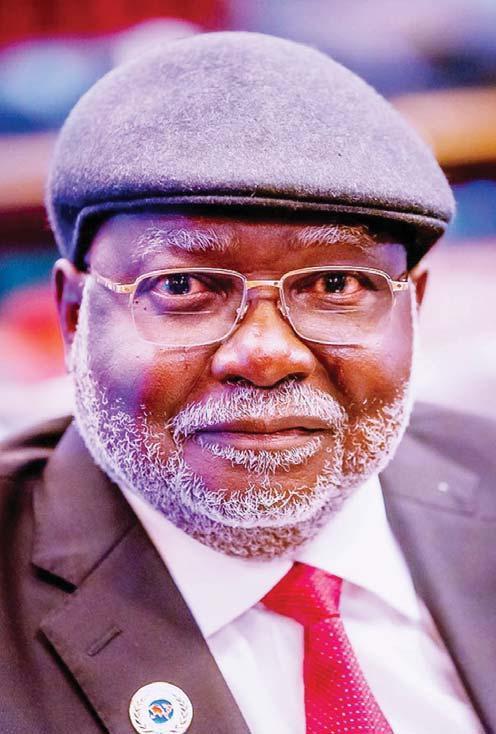
On its part, the Labour Party (LP) also challenged Tinubu on his subtle threat that there would be chaos and anarchy in Nigeria if the court removes him from office, describing it as a blackmail to intimidate the panel hearing the petitions against his victory.
In a statement signed by its National Publicity Secretary, Obiora Ifoh, the party said that Tinubu’s remarks were subtle threat on the judges to change the processes and requirements that the law has put in place.
“Let me assure the APC and their leaders that if there were no absurdity, chaos, and anarchy when they forced their way into power, Nigeria will still witness peace when they are eventually evicted from power.”
As Nigerians wait for the judiciary to firmly and dispassionately resolve the worrying legitimacy questions pushed by the opposition, which are hanging on the Tinubu’s neck like an albatross, Africa and the world are watching.
Oshiomhole Needs to Take It Easy
AformergovernorofEdoState,AdamsOshiomhole’s useofindecentlanguagetoexpresshisfeelingshasbecome worrisome. While many Nigerians have accused him of beingunnecessarilyloquaciousandgarrulous,otherssay he is a forthright person who says it the way it is without minding whose ox is gored.
However,onseveraloccasions,theformerlabourleader madeunguardedutterances,whichhisopponentsbelieve also contributed to the termination of his tenure as the NationalChairmanoftheAllProgressivesCongress(APC).
AsgovernorofEdoState,OshiomholehadtoldNigerians in July 2015 that American officials had revealed that a ministerwhoservedundertheformerPresidentGoodluck
Jonathan’s administration stole $6billion.
“We have moved away from a president that doesn’t seemtoknowhispowerstoonethatunderstandsthathe
isapresidentofthecountryinthecontinent,”Oshiomhole reportedly added.
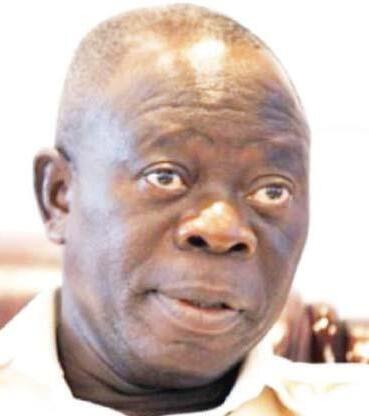
But his $6 billion claim turned out to be a hoax as no confirmation or corroboration was received from any quarter. Also, former President Jonathan whom he claimeddidnotknowhispowerswasthesamepresident heeulogisedinJuly2012whenINECdeclaredhimwinner of the Edo governorship poll.
Oshiomhole, who is now the lawmaker representing Edo North senatorial district, recently met his match in his colleagues, when he was forced to apologise for the allegations levelled against his colleagues.
Oshiomhole, an ally of President Bola Tinubu, had whilefeaturingonanationalTVprogramme,allegedthat membersofthe 9thNationalAssemblycartedawayitems in their various offices, including rugs.
“In spite of the presence of security men and women, television sets, carpets and chairs were looted by the immediate past senators and House of Representatives members “The former lawmakers left their offices inshambleswithholesonthewall,whichhadtobefixedby servinglawmakersfromtheirpockets,”hereportedlysaid.
However, at the plenary lastTuesday, Senator Adeola Solomon,whoisalsoanallyofPresidentTinubu,moveda motion demanding an apology from Oshiomhole.
SenatorAdamuAliero(PDP–KebbiCentral)supported Adeola, saying that Oshiomhole should apologise.
An attempt by the ChiefWhip of the Senate, Senator AliNdumetomakethelawmakersmoveintoanexecutive session to deliberate on the “sensitive” matter, failed as majorityoftheSenatorsoptedthatthematterbediscussed in plenary by voting “nay”.
BRIEFING NOTES
DSS as a Law unto Itself
The spokesman of the Department of State Services, Dr. Peter Afunanya, claimed that what lawyers described as an act of lawlessness displayed by the personnel of the agency at the premises of the Federal High Court in Ikoyi last Tuesday, does not in any way reflect the professional disposition of the agency. Ejiofor Alike, however, reports that contrary to the claim, the DSS has gained notoriety for violating the rule of law and disrespect for not only the judiciary and the legislature, but also the individual rights of Nigerians
In what lawyers and many other Nigerians have described as another act of lawlessness, the operatives of the Department of State Services (DSS) on Tuesday beat up a squadron commander of the Nigerian Correctional Service (NCoS) at the premises of the Federal High Court in Ikoyi, Lagos.
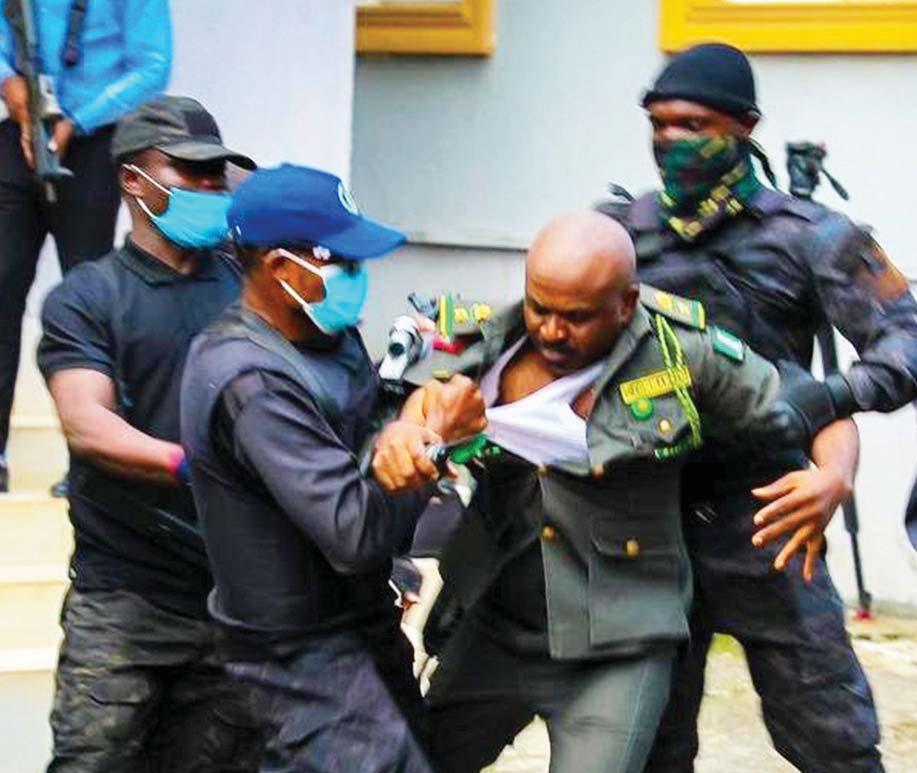
The DSS officers beat up the NCoS officer when he tried to resist their attempt to take the suspended Governor of the Central Bank of Nigeria (CBN), Mr. Godwin Emefiele from him.
The operatives brazenly manhandled the senior correctional officer in whose custody Justice Nichola Oweibo had ruled that the former CBN governor should be, pending the perfection of his N20 million bail for alleged illegal possession of firearms.
In his reaction, the DSS spokesman, Dr. Peter Afunanya in a press statement described the incident as unfortunate.
He, however, claimed that the behaviour of the operatives does not in any way reflect the professional disposition of the DSS, insisting that the agency did not and would never encourage such an incident.
The DSS spokesman also promised an investigation, which many Nigerians believe is the usual ploy by the leadership of the security agencies to calm tension over the misdemeanor of their personnel so that the matter can be swept under the carpet.
Afunanya, however, admitted that the personnel from both agencies exhibited “undue overzealousness.”
But contrary to his claim that DSS has respect for the judiciary, last Tuesday’s show of shame by the operatives of the agency was not the first time that they showed their disrespect for the judiciary and human rights.
Many lawyers view the latest incident as a reflection of the unprofessional disposition of the DSS in recent years.
In his first meeting with Service Chiefs and heads of security and intelligence agencies, President Bola Tinubu had warned that working at cross purposes would no longer be condoned, but such warning appears not to be for the DSS.
The agency had earlier on May 30, 2023 stormed the Ikoyi, Lagos office of the Economic and Financial Crimes Commission (EFCC) and prevented officials of the commission from gaining access in what many described as a show of its superior fire power, the same way the agency attempted to demonstrate its superiority over the NCoS last Tuesday.
Overzealous operatives of the DSS had
always resorted to self-help, intimidation, lawlessness and impunity in handling other Nigerians.
The agency had in November 2015 stormed the Asokoro, Abuja residence of a former National Security Adviser (NSA), Col Sambo Dasuki (rtd) where they laid a siege for 25 days until he was rearrested.
Before the invasion of Dasuki’s residence, Justice Adeniyi Ademola of the Federal High Court had on November 3, 2015 granted his request for his travel document to be released in order for him to travel abroad to take care of his deteriorating health.
After detaining the former NSA for several years, DSS has not successfully convinced the court to put him in jail for any offence.
Also, in August 2018, masked operatives of the DSS had once barricaded the gates to the National Assembly complex and shut out lawmakers.
This act of disrespect for the legislature as an arm of government forced the then Acting President, Professor Yemi Osinbajo, to sack the then Director General of the DSS,
Lawal Daura.
Also, in another show of disrespect for the judiciary, DSS operatives had stormed Justice Ijeoma Ojukwu’s Federal High Court in Abuja to rearrest the presidential candidate of the African Action Congress (AAC), Omoyele Sowore in December 2019, less than 24 hours after the judge had released him from illegal custody.
Operatives of the agency had also invaded the homes of judges in 2016 and 2017, all in an alleged bid to cow the judiciary.
DSS operatives’ latest act of impunity has attracted condemnations by lawyers.
In his reaction, human rights lawyer and Senior Advocate of Nigeria (SAN), Mr. Femi Falana called on President Tinubu to sanction the DSS officials involved in the show of shame.
Falana accused the DSS officials of brazenly disobeying the orders of the Ikoyi Federal High Court.
NOTES FOR FILE
Falana noted that “for daring to comply with the orders of the Federal High Court, officials of the correctional centre were attacked by gun-toting officers of the DSS.”
Also reacting, the President of the Nigerian Bar Association (NBA), Mr. Yakubu Maikyau (SAN) had blamed the overzealousness or excesses of personnel of both agencies for the incident which he described as “despicable.”
But many lawyers have accused Maikyau of not specifically condemning the DSS for the desecration of the court premises and disobedience of a subsisting court order.
A former Chairman of the National Human Rights Commission (NHRC), Prof. Chidi Odinkalu, described Maikyau’s reaction as “shameful.”
Odinkalu wondered why Maikyau chose to describe what happened in the court as a case of two fighting.
Also reacting, another senior lawyer, Mr. Mutalubi Adebayo Ojo (SAN) hinted that Maikyau’s reaction was evasive and did not pointedly condemn the infraction by DSS.
“The greatest misconduct is the crass and flagrant disobedience of the order of the Federal High Court by DSS. The presiding judge gave a clear order that the defendant should be remanded in prison custody pending the perfection of his bail. That order is very positive and very direct enough, yet the NBA President was silent on its breach in his statement but rather chose to concentrate on the behaviours of the unruly officers within the court premises. This is not good enough if one must put it mildly,” City Lawyer quoted Ojo as saying.
Another SAN, Mr. Shaibu Enejoh Aruwa also faulted the NBA statement, insisting that it “failed to reflect” what actually transpired between the DSS and the NCoS personnel.
“What happened was clearly an attack brazenly carried out by men of the DSS on an officer of the NCoS; the NBA statement should have reflected what it is and not an altercation or a clash,” Aruwa said.
Also reacting to the disparaging remarks by the DSS that a human rights activist, Mr. Maxwell Opara is an “IPOB and Charge and Bail Lawyer,” Aruwa also condemned NBA’s silence on the DSS attack on its member.
Following its serial violations of human rights and disrespect for hallowed institutions, many lawyers believe that the DSS has become law unto itself and has also dragged Nigeria back to when Decree 2 was used by the defunct National Security Organisation (NSO) to dump Nigerians in detention under flimsy excuses.
Obaseki Playing Politics with Edo Roads
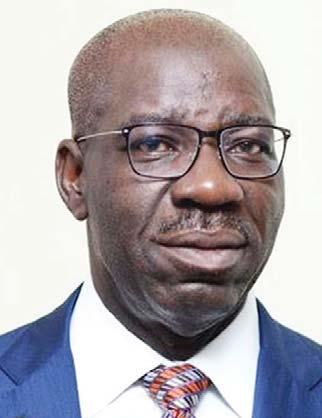
After being embarrassed at the failed portion of the Benin-Sapele Federal Road last week, Governor GodwinObasekiofEdoStatecameupwithhisusual blame game, accusing the federal government for being responsible for the deplorable state of the roads in the state.
As a transportation hub, Edo State connects several parts of the country. In the last four years, the major roads leading to the state and outside are in deplorable conditions.
These roads include the Benin-Sapele Road, Benin-Agbor Road, Benin-Auchi Road, Benin-Lagos, among several others.
Edo State used to have some of the best road networks in Nigeria. Today, almost all the federal and state roads in Edo State are in deplorable state.
governor has not fixed strategic state roads, let alone volunteering to construct federal road and requestingforarefundfromthefederalgovernment.
Not even the all-important Benin-Auchi Road that leads to 12 out of the 17 local government areas of the state has caught his attention. As it is today, these 12 local government areas are cut-off from the Benin-City, the state capital.
On many occasions, communities had protested the poor condition of the road with no meaningful response from the state government. The poor condition of the road is daily fuelling insecurity, yet the state government has not made any efforts to get the federal government to fix the road.
Thegovernorneedstotellthepeopleofthestate which road he has constructed or rehabilitated since he came to power in 2016. Most of the roads constructed in Owan East and Owan West Local Obaseki
But all the people of the state get from Obaseki is blame game and one excuse or the other. The
GovernmentAreasbytheSamuelOgbemudia-led military administration have since started failing underthewatchofObasekiwithoutanyattention.
In fact, to access the two local governments today, one has to go through Oloku Junction to connect the Benin-Owo-Akure Road.
The governor has been blaming the All Progressives Congress (APC)-led federal government for playing politics and abandoning federal roads in the state. But he was a member of the APC in his first term and still failed to attract the attention of the federal government to those roads.
If the federal government has abandoned the federal roads in the state, Obaseki should show evidence of the important state roads he has constructed. It is not to embark on endless reforms, he needs to tell the people what he has achieved.
Ministerial List: Wike in a Dilemma
Nigerians, as well as the Peoples Democratic Party, are closely monitoring the former Governor of Rivers State, Nyesom Wike, to see if he will accept his nomination as a minister by President Bola Tinubu. This stems from his previous negative comments about the All Progressives Congress, Chuks Okocha reports
The immediate past Governor of Rivers State, Nyesom Wike, is said to be in a dilemma since his nomination as a minister. He is further said to be under pressure as old videos of him vowing not to be a minister or of moving to the All Progressives Congress (APC) floods the social media.
Also, the Peoples Democratic Party (PDP) is expected to decide on him tomorrow. A member of the party’s National Working Committee (NWC) while disclosing this to THISDAY said the party was waiting to see whether the former governor would present himself for screening.
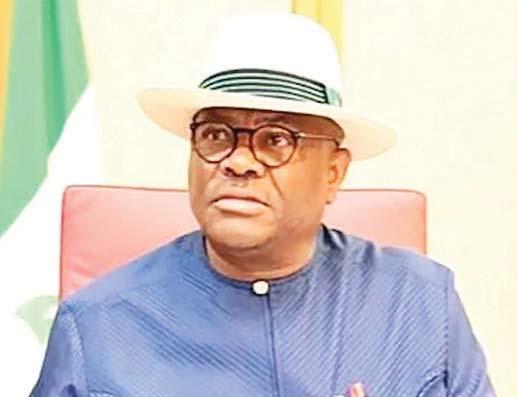
It has been gathered that his nomination may portray him as a hypocritical person, who should not be taken seriously.
Wike had on many occasions vowed that he would not defect to the APC and that he did not want to be a minister. But he has been named in President Bola Tinubu’s 28-man ministerial list submitted to the Senate last Thursday.
The nomination came amidst speculations about Wike’s stance on accepting a ministerial appointment and his recent affiliations with President Tinubu.
The former governor’s nomination has raised eyebrows within PDP and has triggered a storm of controversies, albeit silent pressure on him to abide by his principles as an old video of Wike vowing not to be a minister, surfaced on the social media platforms.
At the Port Harcourt International Airport Omagwa, during the launch of the VIP Lounge, he made it clear that only one individual can serve as a minister from a state, and he will not be that person. He views Rivers State as an asset and does not want to be a burden on it.
The inclusion of Wike’s name in the ministerial list submitted by President Tinubu to the National Assembly on Thursday has confused and raised questions about his intention. Although a video of the former governor discussing the nomination is circulating, he has not made an official statement yet.
Even more, another video where Wike denounced the APC as a party plagued with stage four cancer also trended. Analysts are also considering the implication of the former Rivers State governor working for a party he claimed to have stage four cancer as opposed to the PDP which he claimed at that time had malaria.
President Tinubu’s decision to nominate the former governor, despite his previous statements, added a layer of intrigue to the situation, as it challenged the assumptions made about Wike’s loyalty.
As the political drama unfolds, PDP members and political observers are closely watching to see how Wike would respond to the nomination. If he accepts the ministerial position, it could potentially strain his relationship with PDP, leading to internal conflicts and dissent. It will also allow PDP to offload the former Rivers State governor, whom many described within the PDP as over-ambitious and pretender.
On the other hand, even though Wike seriously lobbied for the position, many feel if he declines the appoint-
ment, it will raise questions about his allegiance to President Tinubu and whether his previous support was merely a strategic political move.
For now, Nigerians and the political landscape eagerly await his reaction to the pressure on him and how he responds, which will likely shed light on the true motivation behind his acceptance or rejection of the nomination to be a minister in a party he once slammed as having stage four cancer.
A member of the PDP NWC had last Thursday told newsmen at the party secretariat that, “We hope he accepts it and this will allow the party to start looking inwards towards reorganisation once the presidential petition of the party in the tribunal is disposed for good.”
“He cannot be a minister in the government of the APC and still be a member of the PDP. Yes, he secured a restraining order from the court that restrained the party from suspending him, but now he cannot eat his cake and still have it back,” he added.
Also, political observers said the acceptance of Wike as a member of President Tinubu’s cabinet will lay the foundation for other members of the Integrity Group to join APC.
Apart from the former governor, who ensured that the PDP won the Rivers State governorship election and Governor Seyi Makinde of Oyo State, others lost their senatorial bids. For instance, Samuel Orton of Benue State, Okezie Ikpeazu of Abia State and Ifeanyi Ugwuanyi of Enugu State lost their senatorial bids.
A PDP source said the party was
aware of the plots by members of the Integrity Group, explaining that they are bidding their time because they are aware that the presidential election could be annulled. Therefore, they want to see how things will go before the Integrity Group finally joins Wike in APC.
“We know that the presidential election could be annulled but it depends whether the cancellation will give President Tinubu another chance or he would be disqualified based on constitutional issues that would make him ineligible to contest again,” the source said.
Responding to the inclusion of former governors on Tinubu’s ministerial list, the Civil Society Legislative Advocacy Centre (CISLAC) said it was frustrating. It declared that Nigerians were tired of some of the former governors submitted by the president to the Senate for screening and confirmation, stressing that such names are frustrating Nigerians.
CISLAC said this was not the time for President Tinubu to compromise his cabinet by pleasing “political merchants”.
The Executive Director of CISLAC, Mr. Auwal Musa Rafsanjani, expressed grave concern over some of the former governors who he noted have serious integrity issues, stressing that what
the President merely did was to carry out political massaging by bringing in people he intends to compensate politically.
He queried why the much-awaited list only carried some of the former governors that had not done what was expected of them, thereby frustrating the hopes of Nigerians.
Rafsanjani further said: “I think Tinubu has been caught up in the bid to satisfy some political interests. I don’t think Nigerians are looking for a settlement of politicians. I think what Nigerians need at this point are people who can deliver, not people who will do political massaging.
“Nigerians are tired of seeing names that have no capacity, and it is clear that many of the names on the list don’t have any demonstrative capacity process in their past assignments.
“We expected Tinubu to come up with more names that are very progressive, competent, qualified and have not got any corruption baggage. Some of the names are not fantastic. They are not really what Nigerians are looking for,” he said.
Commenting on the policy direction of the Tinubu-led administration so far, CISLAC noted that what the federal government has rolled out was nothing, but somersaulting policies, stressing that the government has failed to work to establish policies that will address poverty, inequality, insecurity and job creation.
He, therefore, urged the administration to do something more drastic, progressive and revolutionary to meet the aspirations of all Nigerians.
Kyari: Creating Prosperity for Nigerians at New NNPCL
The historic payment of interim dividend by the Nigerian National Petroleum Company Limited (NNPCL) into the Federation Account less than three months into the stoppage of payment for fuel subsidy by the federal government has proven that Mallam Mele Kyari, the Group Chief Executive Officer (GCEO) of NNPCL is indeed working for the good of Nigerians and the sustainability of the Nigerian oil and gas sector.
On July 7, 2019 when Kyari assumed the position of Group Managing Director of the now-defunct Nigerian National Petroleum Corporation (NNPC), the corporation was in a near comatose state. It was laced with many challenges ranging from grievous oil pipeline vandalism, corruption, incessant oil thefts, low production levels and lack of transparency.
For instance, a 2010 joint report by Transparency International and Revenue Watch Institute found that NNPC had the poorest transparency record out of 44 national and international energy companies examined. These scenarios fundamentally put Kyari on the spot.
Kyari’s appointment which, however, came as a game-changer was with a clear mission - to revitalize the struggling corporation and send an unequivocal message that the corporation’s lukewarm governance narratives of the past are gone for good.
There was a lot of mess to clear, but Kyari was ready and he came in with his sleeves rolled up and expectedly, he didn’t disappoint.
With a vision boldly anchored on the principle of Transparency, Accountability, Performance and Excellence (TAPE), Kyari, under the defunct NNPC, demonstrated a fundamental grasp of what fossil energy means and the imperative of effective governance of the giant national oil company.
In June 2020, for the first time in 43 years, the Kyari-led NNPC released the 2018 Audited Financial Statements, and subsequently 2019, to the public for scrutiny, earning plaudits for the corporation from members of the public.
Significantly, in August 2021, the NNPC declared a N287 billion Profit After Tax (PAT) for 2020, for the first time in 44 years. Kyari’s magic wand played out as the corporation reduced its losses from N803 billion in 2018 to N1.7 billion in 2019, and the eventual declaration of a net profit in 2020. By fiscal 2021, the corporation’s profit grew to a profit level of N674 billion. Until this period, NNPC has been a lossmaking entity, renowned for anomalies, undue political interference, and shades of burden.
Despite the numerous challenges, Kyari grew its production to an enviable level. As at February 2023, the NNPC crossed 1.6 million barrels per day of crude oil and condensate combined.
The achievements of Kyari under the now rested NNPC were numerous.
Amongst his other major landmark achievements was that he successfully flagged-off construction of the AjaokutaKaduna-Kano (AKK) gas pipeline project. The project, which is near completion and described as a game-changer, is an integral part of the Trans-Nigeria Gas Pipeline (TNGP) with a capacity to transport about 2.2 billion cubic feet of gas per day. Mallam Kyari also led the NNPCL to achieve a $300 million reduction in the cost of the AKK Gas Pipeline contract via contract renegotiation from the initial $2.8 billion.
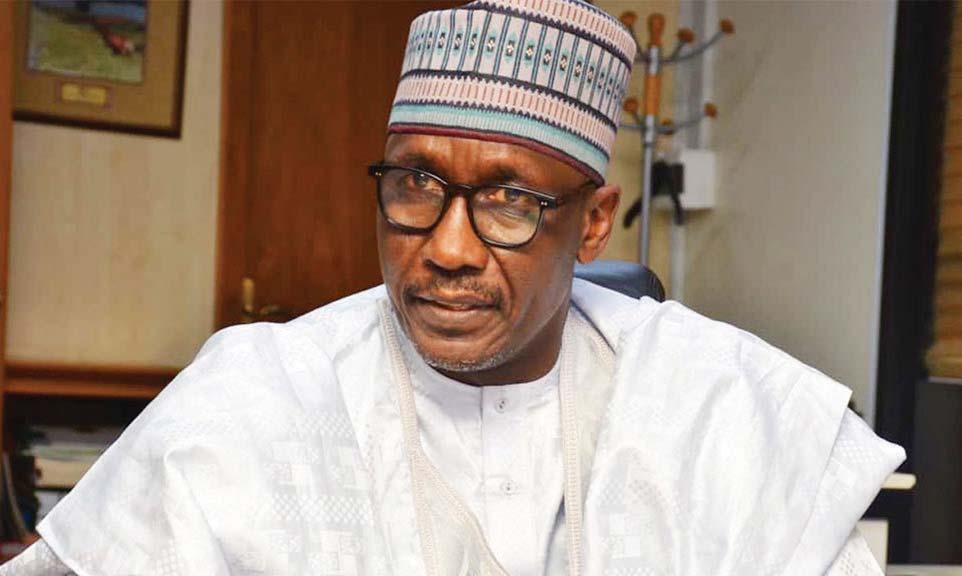
Another of the most impressive accomplishments of Kyari’s stewardship at NNPC was the flag-off of the Kolmani Integrated Development Project in
Bauchi State in November 2022, marking the commencement of effort to commercially exploit oil in the Northern part of Nigeria. It was deemed as one of the most massive projects. The Kolmani Oil Field, estimated to have a reserve of about one billion barrels of crude oil, OPL 809 and 810, lies in the Gongola Basin of the Upper Benue Trough, straddling Bauchi and Gombe States. The project will have the capacity to transport two billion standard cubic feet of natural gas daily to power plants in Abuja, Kaduna, Kano, and various gas-based industries, boosting the nation’s socioeconomic growth.
Mallam Kyari also touched the downstream operation of the NNPC with the introduction of Operation White, which has helped in streamlining petroleum products importation, supply, and distribution across the country.
As the then sole importer of petroleum products in the country, NNPC succeeded in keeping the nation well supplied.
The New NNPCL Arguably, the signing of the Petroleum Industry Act (PIA) in August 2021 by former President Muhammadu Buhari was however a major breakthrough for Kyari as it opened the door for more significant changes in the national oil giant.
It is noteworthy that Kyari worked tirelessly to ensure the passage of the PIA, an initiative which is aimed at overhauling the country’s energy laws and creating a deregulated environment, freeing the oil sector from government control and unbundling the oil company.
The passage of the PIA gave birth to the new, refreshed, and rejuvenated NNPCL.
The birth of the NNPCL in 2021 wound up the Nigerian National Petroleum Corporation (NNPC), after 46 years of operation.
The PIA empowered NNPCL to operate like every private company in Nigeria with exemption from the Fiscal Responsibility Act, Public Procurement Act and TSA in order to ensure there are no excuses for failure.
Following this milestone, Kyari, who is now the GCEO of NNPCL, initiated new investment benchmarks to further rejuvenate the once ineffective company.
At the launch of the new NNPCL, Mallam Kyari explained the ABC of the new oil company stressing that every Nigerian is a shareholder of the company.
According to him, “I’m happy to say this moment that this country is changing. And by the way, I can tell you we are the competition. We are NNPCL. We don’t create rules anymore. We are the competition.
“We will pay taxes; we will pay royalties like anyone; we will also pay dividends to our shareholders which many of you are. So, we are in business and business means competition. We are a private sector –forget about the fact that we are owned by the government 100 per cent.
“By the way, you are also aware, we are going Initial Public Offer (IPO) very soon, we’ll sell a part of our equity. It’s in the law, and once that happens, we will not be any different for any of you and it will be a very different business environment.”
In June this year, NNPCL, in a major landmark, signed four memoranda of understanding (MoUs) with five African countries as part of the Nigeria-Morocco gas pipeline (NMGP) project.
The deal was sealed with Morocco, Cote d’Ivoire, Liberia, Benin, and Guinea. The NMGP is a 5,600km gas pipeline project, traversing 13 African countries. The project would create an opportunity to monetize Nigeria’s abundant hydrocarbon resources by expanding access to energy to support economic growth, industrialization, and job creation across the country and beyond. The project will contribute to accelerating access to energy for all, improving the living conditions of the Nigeria populace, integrating the economies of the sub-region, and mitigating desertification.
In a major step towards bolstering Nigeria’s energy security and promoting the utilization of its abundant gas resources, the NNPCL and UTM Offshore
Limited recently signed a Heads of Terms (HoT) agreement for the construction of the nation’s first indigenous Floating LNG project.
The oil company had explained that apart from significantly cutting down on gas flaring and supporting the country’s commitment to reducing carbon emissions, the project would also create over 7,000 job opportunities, contributing to the nation’s economic growth and development.
In his resolve to put an end to the business of oil thieves, Kyari introduced the “Crude Theft Monitoring Application” (CTMA) to check the theft of Nigeria’s oil. The CTMA, which has been helpful in preventing oil theft, has application options for reporting incidents, with prompt follow-up and responses. Additionally, the portal included a feature for validating crude sales documents.
Most recently, Kyari has continued to unclog the pores of the company by combating illegal refineries. His efforts at combating crude oil theft and illegal refineries were positive, leading to a significant spike in daily oil production, reaching 1.6 million barrels per day.
In the last weeks, in addition to several other breakthroughs, the NNPCL announced it busted 240 illegal refineries and pipeline vandalism in the Niger Delta region. A few weeks ago, a private security contractor engaged by the national oil company also intercepted a vessel conveying 800,000 litres of stolen crude oil at an offshore location. The vessel was heading to Cameroon. It was later destroyed.
This is, however, a testament to Kyari’s resolution to completely eradicate the business of oil thieves in the country.
All of these recent achievements and breakthroughs have stemmed from the leadership of the resilient man who is leaving no stone unturned in transforming Nigeria’s oil and gas sector via transparency, accountability driven policies.
Overall, the implementation of the PIA and NNPCL’s consolidation deals have set Nigeria’s oil and gas industry on a transformative path, unlocking opportunities for growth and prosperity in the sector.
Aderotimi writes from Lagos
became very visible from then. Seeking to arrest a sitting CBN governor was also unprecedented. A Yoruba proverb, simply translated, says when you do what nobody has done before, you will see what nobody has seen before. It has been one bizarre drama or another since this cat-and-mouse game started.
I know that under the Administration of Criminal Justice Act (ACJA), suspects can be detained for only 48 hours before they are charged to court. However, they can be further detained for 14 days based on a detention warrant obtained from a court of law. This can be extended by another 14 days after which the suspect must be charged to court or released. The intention of the lawmakers is to make sure no citizen is detained endlessly. You either establish your case against the suspects or let them go. The law does not envisage the arrest and detention of a citizen for 30 days over one allegation, and a continuous re-arrest and re-detention every 30 days over every other allegation.
The Terrorism (Prevention and Prohibition) Act allows a suspect to be detained for 60 days with a court order. The suspect can be held for longer if investigation is still ongoing, but with a court order. We do not know under what law the DSS is holding Emefiele. We have not been told. But whatever it is, the tide is turning against the secret police and Emefiele is now enjoying sympathy from many quarters. Before the 2023 general election when Emefiele
MINISTERIAL MESS
President Bola Ahmed Tinubu finally sent the ministerial list to the senate on Thursday — one day to the constitutional deadline. It was incomplete and was tagged “first batch”, albeit the constitution does not say “send the first batch before 60 days”. We seem to have overlooked that. In any case, I am still trying to understand why it took Tinubu forever to name a cabinet. This is someone who said being Nigeria’s president was his life ambition and had been declared winner since March 1. If there was no constitutional timeframe, he probably would have beaten President Muhammadu Buhari’s “GWR” cabine-thon set in 2015. Buhari sent his own list four months after inauguration. Startling.
fronted the traumatic naira recolouring policy, he was easily one of the most disliked men in Africa. Nigerians were directing acidic insults and curses in his direction as they went through hell trying to access their cash in the banks. Although Emefiele said the policy was routine as currencies are redesigned at regular intervals, he also made statements about stopping vote-buying which many read to mean he was targeting a particular candidate. In fact, Candidate Bola Ahmed Tinubu pointedly said the policy was directed at inflicting hardship on Nigerians to stop him from winning the presidential poll. But we all know that the way the presidential system works in an underdeveloped democracy, it is impossible for the CBN governor to change the colour of the currency without full presidential authorisation. Whether or not it was his idea, Emefiele could not have done it without President Muhammadu Buhari’s say-so.
Emefiele was so vocal that he became the poster boy of the devastating policy. Many branded it the policy of the ruling All Progressives Congress (APC). It became a major campaign tool against Tinubu, the party’s candidate. The APC subsequently lost a significant number of votes especially in the north, believed to be the hardest hit region because of the heavy reliance on cash transactions. Tinubu still won. We didn’t need any prophecy to know that Emefiele would pay dearly. There was wild jubilation in the land when Emefiele was suspended by Tinubu on June 9 and arrested
by the DSS the following day at his house in Ikoyi. It was as if Nigeria had won the FIFA World Cup.
But the way the DSS went about it — leaking the video of Emefiele’s arrival at the airport in a Hilux van before he was loaded on a jet to Abuja, with an operative showing off handcuffs that many believed would be used to chain him on board — got some sympathy for the CBN governor. Many felt this was an unnecessary humiliation and a raw display of power. And by keeping him for so long amidst running and confusing legal battles, the DSS has inadvertently diverted more sympathy to him. The longer the drama lasts, the more sympathy Emefiele gets — except the DSS is able to come up with loads of earth-shattering allegations that will be clear to all that Emefiele cannot defend.
In sum, none of the combatants in the Ikoyi WrestleMania should be given a medal. For one, the correctional service needs to undergo a customised overhaul. The rot stinks to high heavens. Also, the DSS should stop acting like they do not owe Nigerians any explanations. If there is a new offence they are investigating, we need to know. We don’t have to be told the fine details. Many were disappointed that Emefiele was charged with illegal possession of firearms rather than some horrendous crimes. I guess this is just a “holding” charge to keep him in detention while investigation continues. Something tells me they are still searching for
And Four Other Things…
Obviously, it was not just our neighbouring countries that were having a ball with our petrol subsidy regime. According to a Reuters report, many refineries in Europe were also feeding on our ineptitude and the billiondollar bazaar. But the removal of the subsidy — which has badly hit millions of Nigerians, especially the poorest, as a result of increased transportation and feeding costs — has left many European refineries vulnerable as demand has dropped by a quarter. The oil traders would also lose: we were giving them crude in exchange for petrol, which is just one of the thousands of products from a barrel. We can now export our oil properly and earn some revenue in forex. Sense.
MATTERS ARISING FROM TINUBU’S PARTIAL MINISTERIAL LIST
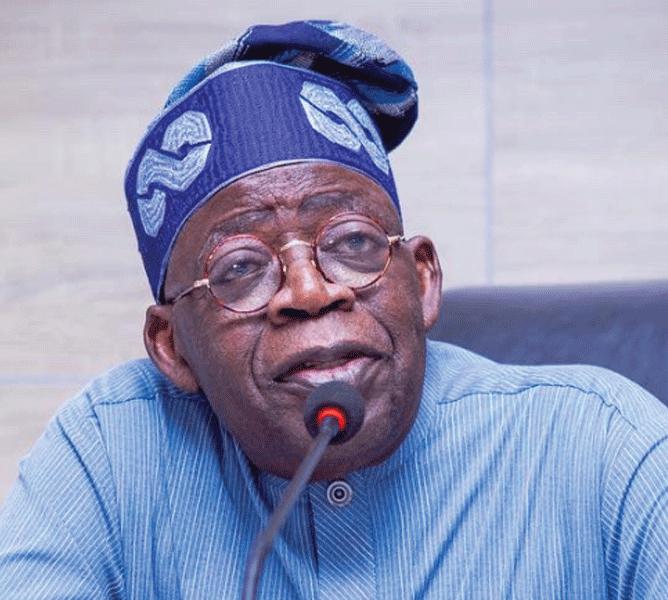
And in terms of credibility, it is not clear how much due diligence the presidency and the DSS carried out on some of the names that ended up on the list. There have been question marks on the qualifications and the performance of some of the nominees in the past. This is in the public domain and a simple Google search will oblige a lot. It is possible that the president and his team had looked into those allegations and found them to be flimsy or irrelevant. But it will be grievous if, with all the resources available to it, the presidency is unaware of and embarrassed by the allegations and claims around some of these nominees.
Let’s graciously concede that the president, in consultation with party officials and the states, has the prerogative to choose whoever he wants as ministers. Afterall, executive powers fully rest with the president: the ministers and other heads of the executive branch of government only exercise powers delegated by the president. So, if the president thinks his ministerial picks are good enough for him, so be it. But he could have saved himself and the country some ample time by submitting these same names immediately after the inauguration of the National Assembly or after the Senate returned from the three-week recess of the Eid holidays. Apart from Professor Pate who needed to give enough notice to the board of GAVI to turn down a plum CEO offer, there is no other person on Tinubu’s list to justify the delay and the drama.
An amendment of sections 147 and 192 of the 1999 Constitution of the Federal Republic of Nigeria compels the president and the state governors to, within 60 days of their taking oaths of office, submit the lists of their nominees for ministers and commissioners to their respectively parliaments. Yes, the amendment was signed into law about two months to the swearing-in of Tinubu and 28 governors on May 29th. But this is enough notice. The constitutional amendment was not secretly done. After passage by the National Assembly, the amendment was approved by at least 2/3 of the state parliaments before it was sent for the signature of former President
Muhammadu Buhari. Besides, Tinubu was declared winner of the presidential election on 1st of March 2023. That was three months before inauguration.
Tinubu therefore has no excuse to wait out almost all the 60 days allowed before submitting a partial list of largely middling nominees, especially given the enormity of the tasks at hand and his pledge to hit the ground running. Submitting his list of nominees about five months after being declared the winner of the presidential election and about two months
THE JACKBOOTS
On Wednesday, soldiers from Republic of Niger’s presidential guard said they had deposed President Mohamed Bazoum in an apparent coup. This is yet another affront on democracy by ambitious soldiers. West Africa is increasingly becoming a hotbed of military rule, with similar coups in Burkina Faso, Mali, Chad and Guinea in recent years. Some of us who grew up under military regimes in Nigeria can relate with the impact on the people. The soldiers usually come with beautiful promises. The gullible warmly embrace them. It does not take more than a year or two for many citizens to realise that the worst form of democracy is better than the best military dictatorship. Fired!
the smoking gun (not literally) to nail him. This is where the whole affair gets clumsy. In a modern society, a security agency should have enough on you before arresting and detaining you. And there is a limit to the length of detention before you are charged to court. Even then, you are still entitled to bail if it is a bailable charge. But in Nigeria, it seems you are first arrested and the search then begins for the evidence to keep you in detention and charge you to court. It is not just the DSS that does this. It has become the established order for Nigerian state agencies. Detain first, search for evidence later. We can do better than this. Because it is Emefiele that is at the receiving end in this instance, many people cannot be bothered.
Nevertheless, if the DSS doesn’t have any concrete case against Emefiele, they should just let him go. Otherwise, the only way the Emefiele drama will be read is that this is all about vendetta, and such a reading is not good for the Tinubu administration, for the DSS, for the judiciary and for the country. The DSS remains one of the most professional and efficient government agencies. They must not drop the ball. It is not about Emefiele. It is about law and order. It is about how a democratic society should run. The Ikoyi drama is too bizarre to be laughed off. It is too embarrassing to be wished away. It is too damaging to our justice system. It is too dramatic. No, Nigerians deserve better that this.
AND FINALLY…
Did you see the video of Mrs Stella Okotete, former executive director of Nigeria ExportImport Bank (NEXIM), when news broke that she had made the ministerial list? If you didn’t, what a miss! She lifted up holy hands, broke into tongues, psalms and hymns and spiritual songs, singing and making melody in her mouth to the Good Lord who does wonders without number. The Delta state nominee acted like someone who had been praying all her life to have the opportunity to serve her country and put her quota into national development. She was so emotional. The only charitable conclusion is that she loves Nigeria so patriotically and would serve the country with heart and might. LOL.
the front, especially on constitutional matters.
It is important to note that Tinubu failed to meet the constitutional requirement. The 60-day deadline is for the full list, and that deadline expired by midnight on 28th July 2023. Yes, the amendment did not say the president should submit all the names at once. But the deadline means that the president must submit all the names of his nominees to the Senate by the end of Day 60.
According to Section 147 (3) of the constitution, the president must appoint a minister from each of the 36 states of the Federation. While three states have two nominees each (Bauchi, Cross River and Katsina), only 25 of the 36 states have ministerial nominees so far on Tinubu’s list, leaving out 11 states. Not submitting a full list of ministerial nominees within the time allowed is a clear breach of the constitution. Under no circumstances should anyone, including the president, be allowed to take liberty with the constitution, the supreme law of the land. It is a wrong thing to do, a wrong way to start, a wrong precedent to allow. In the least, a National Assembly alive to its responsibility will strongly censure Tinubu for this serious breach.
Tinubu conveniently stayed with the unhelpful tradition of submitting names of ministerial nominees without attaching portfolios. The explanation provided by his Chief of Staff is just an excuse, and a lame one at that. Sometimes, it is better to say nothing. Senate confirmation hearings are not meant for presidents to decide where to place the ministerial nominees. They are designed for the senators to grill the nominees.
after being sworn in as president is not exactly my definition of hitting the ground running. We need a president who gets the urgency of the moment and embodies it in all ramifications.
Not surprisingly, most of the state governors waited till the last day to submit their lists of nominees too. This is not to give them an easy pass, but it can be argued that some of them didn’t submit their lists on time so as not to make the president look bad. Probably, they didn’t want to outdo the ‘boss.’ This reinforces the need for the president to always lead from
Without portfolios attached to the names of nominees, senators will be left with asking general questions or with just groping in the dark while the nominees will happily be auditioning for their preferred portfolios. It is a hollow and sub-optimal approach. Let’s hope the senators will redeem what has, a priori, been reduced to a perfunctory exercise, and not further trivialise things with their predilection for vacuous questions or the comedy of errors of ‘take a bow and go’. That approach will not do justice to the nominees and the country.
CISLAC to Tinubu
“I think Tinubu has been caught up in the bid to satisfy some political interests. I don’t think Nigerians are looking for a settlement of politicians. I think what Nigerians need at this point are people who can deliver, not people who will do political massaging ” – Civil Society Legislative Advocacy Centre describing the ministerial list of President Tinubu as frustrating.
SIMON KOLAWOLE
simon.kolawole@thisdaylive.com,

All the Drama Around Emefiele
When you think you have seen it all in our dearly beloved country, you realise you ain’t seen nothing yet. Every day, we keep coming up with the silliest of things. The spectacle at the federal high court, Ikoyi, Lagos, on Wednesday, July 25, wherein officials of two government agencies openly re-enacted a scene from WrestleMania, is one of the many things that make you thoroughly embarrassed being called a Nigerian. Is this the best we can do in a country of highly educated, enlightened and well-travelled people? Is this the limit of our capability? Or are we simply determined to turn Nigeria into a complete jungle where anything goes? No low is too low for us. When we go low, we go really low.
Mr Godwin Emefiele, the suspended governor of the Central Bank of Nigeria (CBN), had finally been charged to court by the Department of State Services (DSS) after what looked like an eternity since his arrest. The judge granted him bail in the sum of N20 million and ruled that he be remanded specifically in Ikoyi prison — or what we have fancifully renamed “Correctional Centre” without substance — while perfecting his bail conditions. But as we have now become fully accustomed to, the DSS waited outside the courtroom to re-arrest Emefiele on another allegation that is not yet public. That makes it look like they were trying to hold on to him
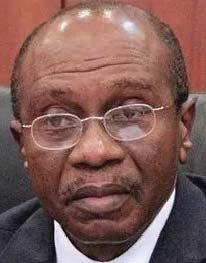
by any means necessary.
But wait for this. Prison warders started tussling with DSS operatives over Emefiele’s custody. Is there no formalised process of handing over a suspect from one agency to the other, with the help of paperwork? As
WAZIRI ADIO POSTSCRIPT
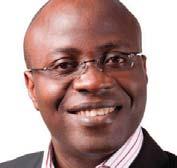


some lawyers have pointed out, if the DSS refused to obey the court order, it was not in the place of the warders to seek to enforce it. It is Emefiele’s lawyers that would have to apply to the court for contempt proceedings against the secret police. The way the prison officials were hustling to take Emefiele away suggested that they had hit a jackpot. It was like a hunter catching a big game. The prison officials felt someone was trying to deny them their monumental catch.
A senior official of Ikoyi prison suddenly showed up at the court to help extract Emefiele from the DSS. The whole world ended up seeing his underwear as his uniform was ripped in the WrestleMania. Actually, the underwear of the Nigeria Correctional Service (NCoS) was also on display. In a viral article, a former Kuje prison detainee, who gave his name as Emeka Ugwuonye, said prison officials make a lot of money when a “big man” is detained at their facility. “They go out of their way to curry favour from such big men,” he wrote, listing some of the mutual benefits on offer when someone of Emefiele’s status is with them. These are things you can’t make up about Nigeria.
We have been hearing unpleasant tales of corruption in Nigerian prisons. Mr Femi Falana, a senior lawyer, alleged some time last year that some convicts never serve in jail. “When a judge pronounces a jail term,” he said, “before getting to Kirikiri, warders have an arrangement whereby some prepared young persons will
replace the convict. That is the person that will enter the prison. He’s paid. Also, there’s a syndicate run by the defence counsel, prosecutors, warders and court clerks at court premises. Once the judge turns his back, the convict will pay these officials and walk back home.” The prison authorities have always denied these allegations. I wish I believed them.
The DSS, I now have to say, has not covered itself in glory in recent times with the way it has been handling certain matters, particularly issues bordering on the rule of law. While the service continues to insist that it has not broken any law and that it has continued to act within its legal mandate, that is not exactly the picture we are getting from the outside. There has been a slew of court orders which we believe the DSS has refused to obey, and re-arresting Emefiele in the court premises without informing us of the basis is not going to win them friends or earn them points. Nigerians deserve to know and understand why DSS does what it does. We don’t need the sensitive details.
There has been a running battle between the DSS and Emefiele since at least 2022 when the service sought a court order to interrogate him over allegations of terrorism and economic crimes. The court did not grant the order. Protesters believed to be working for Emefiele took to the streets to lampoon the DSS — something I think was unprecedented — and the battleline
Continued on page 55
Matters Arising from Tinubu’s Partial Ministerial List
President Bola Tinubu’s muchanticipated list of ministerial nominees finally arrived the National Assembly on Thursday while the Senate was in session. The last legislative day of the week, Thursday was a day shy of the hard limit imposed by the constitution. The list of nominees, despite all the drama and the suspense around it, landed ‘not with a bang but a whimper.’ Save for the presence of a few clearly exceptional nominees, the incomplete list left many Nigerians with a hollow feeling: ‘is this it—is this the list that took the president almost all of the allowed time to compile and send, is this what we have been anxiously waiting for?’ The list, to put it mildly, is underwhelming.
It is not all downers though. On the positive side, a quarter of the nominees so far is female. It is still far below the minimums prescribed by the 2022 National Gender Policy and the National Development Plan 2021 to 2025. But it is some progress over recent cabinets, if the pattern is maintained or surpassed with the remaining nominees and if all the female nominees scale through Senate’s confirmation. Still on the bright side—there is a 36-year-old
on the list and at least two others in their early to mid-forties. For a country of mostly young people, having a sprinkling of ‘youths’ on the list still falls short but it is some improvement on the last two cabinets. We can also drag this into the plus column: the list has a good mix of established politicians and a few accomplished technocrats, including some people who straddle the classifications.
However, these few positives do not redeem the overwhelming feeling that this, in the main, looks like a settlement/compensation list. With this list, Tinubu comes off as placing more priority on rewarding those who, within and outside his party, worked for his victory and the long-term aides who need to be compensated for staying the course with him. To be sure, presidents usually have political/electoral IOUs to settle and our constitution forces the president to choose at least a nominee from each state of the Federation. But even with these constraints, Tinubu could have found better credentialled and more accomplished ministerial nominees in each of the states and among his loyalists and supporters, and he could have acted with greater urgency.
Before we go on to address the substantive issues around the list, it is important to state


that by our constitution anyone with a high school certificate can be a minister and there is nothing wrong with giving a chance to fresh faces or allowing people the opportunity to prove what they can offer. But this is not a regular season for Nigeria. Our country is at a critical pass at the moment, and we need the most capable and tested hands in the land to pull our country away from the brink. Right now, we don’t need a set of ministers to go and learn on the job or try out their luck. On the contrary, we need a cabinet bulging with high achievers. We need a cabinet packed with people who have had compellingly illustrious experiences in the private and public sectors and international arena, whose antecedents match the gravity of the serious tasks at hand, and whose names unquestionably inspire confidence and hope from citizens and critical stakeholders. This is not my impression of Tinubu’s list, and I don’t think I am alone. This is not the kind of list that induces an involuntary wow from fans and traducers alike. Most of the names on the list are at best average in terms of comparable experience, practical accomplishments and extensive networks that can be leveraged for the turnaround of the fortunes of a country in dire need of a major makeover. In his most
consequential political appointments so far as president, Tinubu seems to have, with his own hands, taken a shine off one of the most enduring myths around him: his ability to assemble a highly competent and credible team. It is possible that it has been a myth all along or that he will restore the myth with the complete list or that some of his nominees will end on putting up pleasantly surprising shifts as ministers. We wait.
For now, only a handful of names on the list really, really stand out and, sadly, they are in the minority: Professor Muhammed Pate, Ambassador Yusuf Tuggar, Mr. Olawale Edun, Mr. Lateef Fagbemi, SAN, Senator David Umahi, and Mallam Nasir El-Rufai. Most of the other nominees at best should be heads of federal agencies or chairpersons of boards or ambassadors or should be gaining more experience at the state level or in another arm of government. This is not necessarily about age or gender: there are much younger and female Nigerians who have better accomplishments and more solid work experience and greater credibility than some of the names presented by the president to the Senate.
Continued on page 55

